Christian Today
To enjoy our website, you'll need to enable JavaScript in your web browser. Please click here to learn how.
You are using an outdated browser. Please upgrade your browser to improve your experience.

Exodus: Gods and Kings review - biblically irreverent but powerful cinema
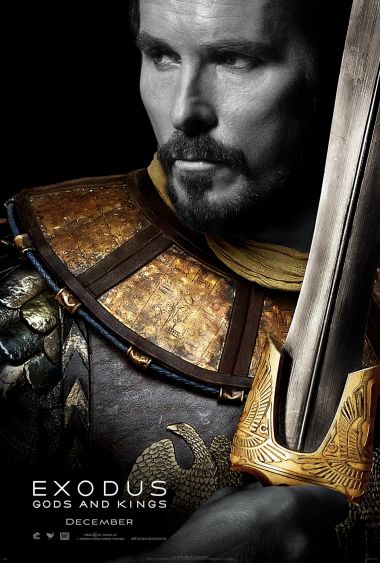
Should you go and see Exodus? If you are looking for classic Ridley Scott movie along the lines of 'Gladiator' or 'Alien' then sadly, no. 'Exodus: Gods and Kings' is nowhere near as innovative. And if you're hoping for a biblically faithful retelling of the book of Exodus – then again, no. Scott plays fast and loose with the scriptures, making some huge deviations for artistic effect. But, if you want a talking point movie that will make you gasp, think and wonder then this film is a real treat.
There are so many brilliant conversations that can be had off the back of this film. Here are a few.
1. Why do these big stories endure?
Ridley Scott is not afraid of a big story. Whether it's the supreme feminist movie of the 90s 'Thelma and Louise', the genre-defining sci-fi classic 'Alien' or the heroic icon 'Gladiator', Scott has a full house of genuinely epic must-see movies under his belt. Scott is rich and successful enough that he doesn't need this film, and yet somehow this biblical story has got under his skin and he has given years of his life to bring it to the screen.
The book of Exodus is part of the five-part origin narrative, not just of the Jewish nation, but of humanity itself, and these stories will not go away despite secularist cynicism and mockery. Indeed, Scott's movie comes hot on the heels of Darren Aronofsky's 'Noah', and rumours are circulating about Scott planning a biopic of King David.
2. Is God a delusion?
Scott makes some controversial choices. He gives Moses a handy head injury to initiate a conversion experience. When Moses speaks with God, it's clear that everyone else just sees Moses speaking to himself. A naturalistic counter-narrative is offered to the miraculous plagues, and even the parting of the Red Sea coincides with a meteor strike and a resulting tsunami. Is Scott trying to demythologise the story, looking for an escape route to placate atheist critics, or avoid the truth of the miraculous interventions of God and their implications? Are we supposed to conclude that God is simply a delusion?
But, even in Scott's suggestion that the miracles in Exodus are coincidental events, there is no arguing with their supernatural timing. Just when Moses is telling Pharaoh to let God's people go, the Nile turns to blood and the plagues begin. And when Israel needs an escape route out of Egypt, a way through the sea opens up.
For me, the words that appear on the screen at the start of the film are instructive: "After 400 years in slavery in Egypt the Hebrews had not forgotten their homeland... or their God. And God had not forgotten them." A faith that endured that long under those conditions is testament to the reality of God, as is the incredible account of the liberation of a minority ethnic group from the Egyptian superpower. So is the fact that thousands of years later these stories are still being retold. God has not forgotten us and we have not forgotten him. We are still a God-haunted culture.
3. What does God look like?
It is notoriously difficult to portray God on film. A disembodied voice doesn't really seem to cut it at this moment in cinematic history. We've already seen Morgan Freeman play God and subvert the caucasian stereotype, and now perhaps it's time to subvert Freeman's mild-mannered septuagenarian God. British actor Isaac Andrews was just 11 years old when he was called upon to play literally the biggest role in the universe.
But it seems that Andrews has been asked to portray God as moody, malevolent and mischievous. Christian Bale, who plays Moses, has been quoted describing God in the Exodus story as "Mercurial", and Scott has definitely made his God character fickle and erratic. This is seen clearly in Scott's handling of one of the the most difficult passages in the Bible: God's decision to make the last of the ten plagues the killing of the first born son in every Egyptian household. There is an angry shouting match between Moses and God. Moses argues that this is barbaric revenge and says he will have no part in it. The events of the Passover are thus portrayed as a bad decision made by a stroppy child.
This is religious art – a riff on the biblical story, not a faithful re-enactment. But in this depiction of God I think Scott has unhelpfully infantilised God, defamed his character and belittled his glory. This is perhaps a sign of the times, that a visionary director such as Scott either sees God has insignificant or wishes to depict him as such. But despite my reservations, Scott has also desentimentalised a relationship with God. Too often movies have portrayed spirituality as some kind of ecstatic state of perpetual serenity. Scott has read enough of the book of Exodus and the Psalms to know that a relationship with God can be loud and argumentative. And he seems to understand that God doesn't have to fit our expectations or traditions
4. Whose side are you on?
For a movie maker who loves the idea of a romantic hero – a lone figure who uses all his rhetoric, intellect and skill in combat to overcome an impossible enemy – it's not surprising that Moses is recast as a military genius leading a terrorist uprising against the Egyptians. There's a classic montage where Moses trains people to fight with swords, bows, arrows and, strangely, explosives. The film later turns into a face-off between Rameses and Moses, almost culminating in hand to hand combat in the middle of a tsunami.
This relationship reminded me of the Dreamworks animation 'The Prince of Egypt' (which gets a name check mid-movie by the way). As I watched this 'Exodus' in the middle of the pre-Christmas rush, the question in my mind by the Exodus story was 'Are you on God's side?' Our version of Christmas favours the rich – those who can afford all the trimmings, the latest tech, and expensive outfits. But the Exodus story is clear that God was not on the side of the excesses of the Egyptian aristocracy, he was on the side of the poor and downtrodden.
Super Special Effects
- Was Moses a freedom fighter or terrorist? Christian Bale on Exodus
- 11-year-old British schoolboy is voice of God in Ridley Scott's Exodus movie
- Christian Bale's initial reaction when Ridley Scott asked him to play Moses:'Oh no'
- Christian Bale says Moses is 'schizophrenic and barbaric'
- Krish Kandiah: Why Left Behind is best left alone
- Christian Bale says he had 'no idea about Moses at all' and his Bible knowledge was 'below Sunday school'
- Exodus: Gods and Kings - new trailer focuses on the 10 plagues
This film is a visual feast. There are some absolutely breathtaking shots and the set pieces are done with relish. The Ten Plagues are aesthetically lavish, the panoramic views of ancient Egypt are spell-binding, and of course the closing (rather than the parting) of the Red Sea leaves you, along with the Egyptian army, gasping for breath.
But sometimes a feast can be too indulgent. Scott seemed to have more CGI budget than he needed, so we get crazy crocodiles in the Nile that turn the river red, a shark in the Red Sea, not to mention redundant tornadoes and landslides wiping out Egyptian charioteers. As if the story wasn't big enough already, Scott chucks in some extra embellishments.
Thanks to the charity Damaris I was given a ticket to the 'Exodus' world premier in London's Leicester Square. As I made my way along the red carpet I heard voices shouting "Christian, Christian, Christian" I looked around wanting to say "Yes that's me and I am not ashamed" but it turns out that they were calling for Christian 'batman' Bale who was ahead of me on the carpet.
As I left the cinema having being moved, provoked, angered and delighted in equal measure, I was encouraged that a huge global audience will get to wrestle with a fresh retelling of this powerful story. My prayer is that many would see the movie and be driven back to the Bible to read the full story of Moses. As they read, I pray they would come to know the full story of the God who hears the suffering of his people, brings us life and liberty, and offers us all an intimate relationship with himself in all of his ferocious grace.
Dr Krish Kandiah is the president of London School of Theology , the largest interdenominational, evangelical theological college in Europe. He is also the founder of Home for Good , a start-up charity helping to find adoptive and foster homes for children in the care system.
Damaris Trust has produced resources to help engage with the film.

Abortion and Kamala Harris' statement on faith

Pope Francis' claim 'all religions are a path to God' rebuked by clergy

North Korea flagrantly disregarding international human and religious rights standards - report

Church in Wales earmarks £10m for mission and growth

Christian groups warn against 'dangers' of assisted suicide after 'citizens jury' backs changes

Why Labour will not back down on its conversion therapy ban

Christians unite to launch National Week of Prayer for the UK

Thousands attend March for Life in London

Jesus: The original superhero story

Telling God's story for the modern world

A call for a new era of Christian cinema

Politician quits over social media post of baby Jesus with bullet holes
Group of brands.
Exodus: Gods and Kings

Reviewed by: David Criswell, Ph.D. CONTRIBUTOR
| Moviemaking Quality: | |
| Primary Audience: | |
| Genre: | |
| Length: | |
| Year of Release: | |
| USA Release: |
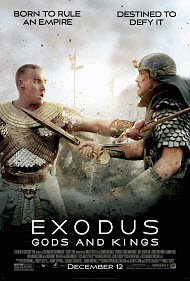
How should the Church respond to “Exodus: Gods and Kings”?
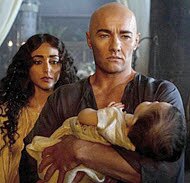
Red Sea passage
Miracles , including list of biblical miracles
Is it logical to believe that the biblical miracles really happened? Answer
“Miracles are not possible,” some claim. Is this true? Answer
Is the God of Israel in this movie, vengeful and mean? How is the real God of the Bible different? —slow to anger , goodness , justice , holiness , righteousness , love , gracious , merciful , etc.
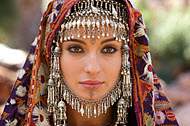
Zipporah , wife of Moses
Moses and the exodus —How God gave his people freedom in a land of slavery and death (in our God’s Story section )
Exodus from Egypt
Moses—The man who wanted to see God
Miriam , sister of Moses
Aaron , brother of Moses
Why did God harden Pharaoh’s heart? Answer
Sinai desert
the land of Midian
The Ten Commandments
Coloring page
- The Ten Commandments (1956)
- Moses (1995)
- The Prince of Egypt (1998)
- In the Beginning (2000)
- The Ten Commandments (2007)
- The Bible: The Epic Miniseries (2013)
| Featuring | … … … … … … … Indira Varma … … Emun Elliott … Golshifteh Farahani … Hiam Abbass … Kevork Malikyan … Dar Salim … Isaac Andrews … Ghassan Massoud … Kelly Schembri … Andrew Tarbet … Barrie Martin … Christopher Sciueref … João Costa Menezes … Anton Alexander … Serhat Metin … Adrian Palmer … Emmanuel Akintunde … Sayed Kassem … Joseph Garcia Quinn … Mens-Sana Tamakloe … Alejandro Naranjo … Hayden Hayder … David Georgiou … Anna Savva … Emeka Sesay … Ibrahim Fagge … Umit Ulgen … Gerard Monaco … Aaron Neil … Joshua Johnson … Phil Perez … Anthony Rotsa … Tyrone Love … Amin Ali … Georgie-May Tearle … Ziad Abaza … Ayoub El Hilali … Sipei Benson … Kane Headley-Cummings … Chloe Edmonds … Jorge Suquet … Jane Thorne … Simran Singh Buttar … Sunny Nersian … Pepe Roma … Haaris Mirza … Mark Ian Reeves … Juan Poveda … Reche Angel … Kenny Knight … Ian Tripp … Osckan Ariz … |
| Director | — “ ” (2005), “ ” (2007), “ ” (2008), “ ” (2012) |
| Producer | |
| Distributor |
T he story of the Exodus is one of the greatest stories ever told. Even without knowledge of the rich traditions and historical events surrounding the Exodus, the events of that time shaped the future of the world, and not just the Jews or the west, but every corner of the planet. I am therefore somewhat dumbfounded how Hollywood has repeatedly managed to mess up the story and alter it to their own liking. This is not to say that there have been no good movies about the Exodus, but not a single one to date does the historical or Biblical events justice. Now it is Ridley Scott’s turn to try to do justice to the story, but Ridley Scott is an agnostic. Would he do justice to Exodus?
Owing to the nature of Biblical epics, I feel it is necessary to divide my review into three sections. The first will deal with the movie itself. From a strictly cinematic viewpoint, how does the film stand up. Is it entertaining? Does Christian Bale make a believable Moses ? Will the film stand the test of time. The second section of this review will deal with its Biblical accuracy, or lack thereof. What does the film change? Is it accurate? Does it show due respect to Moses and the historical events of the Exodus? Finally, I will address objectionable content.
Cinematic review
Ridley Scott is a talented director, of that few can doubt. His second film was the surprising hit film “ Alien .” He followed it up with “ Blade Runner ,” which earned due credit on video, even if it was neglected at the box office. He is best known to younger viewers as the director of the absurdly unhistorical and exploitive movie “ Gladiator .” It is natural to expect that “Exodus” would have the same polished look and feel, but to an extent that is the problem. At times, Moses sounds like Maximus from “Gladiator,” shouting and screaming with a sword in hand. There is even a scene where Pharaoh Seti regrets that Rhamses would succeed him instead of Moses (just like in “Gladiator”). We feel, at times, as if we are watching a retread of “Gladiator” or “ Kingdom of Heaven .” Moses even leads the Jews in military revolt before God intervenes and issues the Ten Plagues upon Egypt .
It is fair to start with the movie’s strengths. It tries, with moderate success, to emphasize the brotherhood of Pharaoh and Moses . The Moses character of feels that the Egyptians are his family, and not the Jews. His character is meant to change slowly over the course of the film. In the beginning, Moses is a skeptic who refuses to even acknowledge his kinship with the Jews. Eventually, through the course of events, he becomes the leader of the Jews, but as well intentioned as the script may have been, Moses’s transformation is never quite believable, nor convincing. Aside from this, the film falls flat, emphasizing special effects rather than characterization.
In fairness to Scott, the film is more respectful than the movie “ Noah ,” but then it would be hard to be that blasphemous and bad, and this is hardly the standard which we should accept. The biggest problem with “Exodus” is its alterations to the Biblical story. I will address most of these below, but it is notable that the film appears to make many of the miracles appear as natural phenomenon triggered by God . Even the parting of the Red Sea is portrayed, not as a parting, but as a dried up sea bed. It is a hurricane of sorts that brings water in from afar.
List of miracles in the Bible
Now it is clear that these are still intended as miracles, but throughout the film even the priest of Egypt tried to dismiss the miracles as natural phenomenon. In fact, the priests acknowledge that the plagues are miracles, but try desperately to claim that the gods of Egypt are stronger. The Pharaoh is not an agnostic but a worshiper of false gods whom he believes will eventually overpower the Israelite’s “one true God.” This is only hinted at in the film when Pharaoh arrogantly declares “I am a god! I am a god!”
Another problem is that while seeming to downplay the miraculous nature of the plagues , it is no irony that the movie is filled with completely unrealistic scenes which actually made me chuckle. Three scenes come to mind. First was my shock at finding that the Chinese apparently did not invent gun powder, for Moses leads a revolt against Pharaoh and triggers massive explosions: yes, explosions. Even in historical epics from antiquity, Hollywood still has to blow things up! Second, in a scene seemingly lifted from “ Gladiator ,” Moses stabs a chariot with his spear, causing it to fly into the air (Isaac Newton would shudder).
Finally, when the Red Sea drowns all of Egypt’s army , Moses and Pharaoh are staring each other down in the middle of the Sea when the water hits. Apparently both are strong swimmers, for they both survive (no one else does), ending up on opposite sides of the sea.
Finally, it must be noted that “Exodus: Gods and Kings” is exceedingly depressing in tone . Nowhere do we see singing Jews celebrating their freedom as in the song of Miriam . If “ The Prince of Egypt ” was the happy Exodus movie (and best) then “Exodus: Gods and Kings” is clearly the darkest and most depressing. This too seems to be a trademark of a Ridley Scott film, but it is also a sad commentary on agnosticism, for I cannot think of an agnostic filmmaker who really makes happy films. This irony should not go unnoticed. Ultimately, it is only God who can give us true happiness.
Inaccuracy, wrong Pharaoh, wrong Moses, etc.
There are a plethora of alterations and mistakes in the film; some of which have been alluded to already. Some are alterations made for cinematic reasons. Some are errors in exegesis and bad archeology . Others are deliberate theological alterations which reflect the director’s agnosticism. I will reserve the more troubling ones for last.
The first and most glaring error is apparent in the trailers, and, unfortunately, is one found in every movie about the Exodus ever made. It is of concern because Bible critics take advantage of the mistake to claim that the Bible is a historical myth. I refer to the fact that Rhamses was not the Pharaoh of the Exodus. 1 Kings 6:1 (among others) places the Exodus almost 150 years before Rhamses. This is important because the archaeological evidence supports an Exodus in the 15th century before Christ , but offers no support for an Exodus under Rhamses.
Pharaoh’s of the Bible
Atheists and others emphasize the lack of evidence for Rhamses, and take advantage of the fact that most people have been trained to think of Rhamses as the Pharaoh of the Exodus . Moreover, the actual events surrounding the Exodus would make for a fascinating subplot were it not for the fact that these films must rewrite part of the Bible to make the story fit with Rhamses. Consider, for example, the fact that the Pharaoh who sought Moses’ life died before the Exodus . The Pharaoh of the Exodus was not his step-brother, but his step-nephew.
A long list of errors and alterations could ensue, including the fact that the film portrays only nine years between Moses’ exile and his return. Moses is shown killing the guard in self defense ( Exodus 2:11-12 ). Moses is around 40 years old when he leads the Exodus ( Exodus 7:7 ). Moses is thought to be a true Egyptian by all in the Egyptian court, and a host of others.
Some have also objected to the portrayal of Egyptians and Jews by white Europeans, but this is only partially true. First, Egyptian art depicts Egyptians as red, Nubians as brown, and Semites (like Jews) as yellow. Second, Sir Ben Kingsley is actually half Indian. Likewise, many of the lesser characters are Indian, near easterners, and Jews. Still, it is fair to criticize the reality of Rhamses being portrayed by a Welsh actor. Nevertheless, far more important alterations follow.
One serious alteration is that of Moses himself. He is portrayed as an agnostic before his encounter with God on Sinai . Although Moses argued with God in the Bible, the movie clearly portrays Moses’s wrestling with God on a more cynical level. At one point in the film, Moses shouts at God “if you meant to humble me, it will not work!” This in contrast to the declaration that “ Moses was very humble, more than any man who was on the face of the Earth” ( Numbers 12:2 ). He also tends to shout rather than stutter as Jewish tradition recounts (cf. Exodus 4:10 ). Most intriguing is that he only meets Pharaoh twice face to face before the death of the first-born children. In the first encounter, Moses pulls a sword on Rhamses and threatens him. He does not say “Let my people go,” but speaks of his own authority as a rebel leader. He spends much of the movie hiding from Pharaoh, and he even tries to lead a military revolt before God intervenes.
Arguably, the strangest alteration to the Bible, made clearly to appeal to fans of Scott’s action films, is the depiction of Moses leading a war of attrition against Egypt. The Jews are taught to fight and attack several military and supply sites. This revolt is clearly out of place in the film and completely un-Biblical. From the beginning, God told Moses what to do and say, but this leads to another change: God. In the film, God is portrayed as a little boy . He first appears standing in front of the burning bush and appears at recurring points in the film. Moses is seen arguing with a child.
See: Moses—The man who wanted to see God
Finally, I have already alluded to the fact that the miracles are made to look more like natural phenomenon unleashed by God, but the irony is that such “natural” events are far more unrealistic than a supernatural event. Consider the plague of blood . In the movie, a series of crocodiles attack and eat so many people and animals that the water of the Nile becomes filled with the blood of their victims! Would it not have been better (and more realistic) to simply portray it as it is recounted in the Bible?
Objectionable content
Obviously, most objectionable are the alterations to the Bible itself, but as those have been addressed, the question is what should parents be leary of their children seeing? Well, the good news is that there is no foul language, since the Egyptians do not speak modern English slang (although Moses does issue at least one modern idiomatic remark). Likewise, there is no sex in the film, although there are a number of scantily clad Egyptian women. The real problem, in terms of content, is obviously violence.
It is not surprising that the story of the Exodus is violent, but the violence is graphic at times. Moses is engaged in several fights and battles which involve blood and even some gore, but the most graphic scenes involve the director’s envisioning of the plague of blood as described above. Crocodiles are seen eating people in graphic scenes.
In days past “Exodus: Gods and Kings” might have garnered an R-rating, but it is not much worse than any number of PG-13 films on the market today. Its real offensive content lies in its alterations to the Bible .
The revival of Biblical epics began with “ The Passion of the Christ ,” but that revival has more often than not felt like one led by Jim Baker rather than Billy Graham. The most recent debacle was “ Noah ” written and directed by an atheist which portrayed Noah as a sociopath plotting to kill his own children. “Exodus: Gods and Kings” is not a blasphemous film, but neither is it particularly God honoring either. The Moses of the movie is reflective of its agnostic director. He is a skeptic who looks too much like Maximus and too little like the great Prophet of the Bible. Likewise, Rhamses appears more like a petulant child than one of the greatest Pharaohs who restored Egypt to greatness a hundred and fifty years after Egypt’s humiliation under Moses (oh, wait… I was thinking of the real historical story of the Exodus! Sorry.).
Overall, “Exodus: Gods and Kings” falls short of most of the plethora of previous renditions. If you want to see a movie about Moses , I would recommend “ The Prince of Egypt ” or even the inaccurate but respectful “ The Ten Commandments ” by Cecil B. DeMille. I would also recommend the 1995 TV miniseries “ Moses ” with Sir Ben Kingsley . None of those films get the historical facts straight (they all subscribe to the un-Biblical myth that Rhamses was the Pharaoh of the Exodus), but they are more respectful, make fewer alterations, and are more entertaining.
Violence: Heavy to extreme / Profanity: None / Sex/Nudity: Mild
See list of Relevant Issues—questions-and-answers .
- Non-viewer comments
PLEASE share your observations and insights to be posted here.
Common Sense Media
Movie & TV reviews for parents
- For Parents
- For Educators
- Our Work and Impact
Or browse by category:
- Movie Reviews
- Best Movie Lists
- Best Movies on Netflix, Disney+, and More
Common Sense Selections for Movies

50 Modern Movies All Kids Should Watch Before They're 12

- Best TV Lists
- Best TV Shows on Netflix, Disney+, and More
- Common Sense Selections for TV
- Video Reviews of TV Shows

Best Kids' Shows on Disney+

Best Kids' TV Shows on Netflix
- Book Reviews
- Best Book Lists
- Common Sense Selections for Books

8 Tips for Getting Kids Hooked on Books

50 Books All Kids Should Read Before They're 12
- Game Reviews
- Best Game Lists
Common Sense Selections for Games
- Video Reviews of Games

Nintendo Switch Games for Family Fun

- Podcast Reviews
- Best Podcast Lists
Common Sense Selections for Podcasts

Parents' Guide to Podcasts

- App Reviews
- Best App Lists

Social Networking for Teens

Gun-Free Action Game Apps

Reviews for AI Apps and Tools
- YouTube Channel Reviews
- YouTube Kids Channels by Topic

Parents' Ultimate Guide to YouTube Kids

YouTube Kids Channels for Gamers
- Preschoolers (2-4)
- Little Kids (5-7)
- Big Kids (8-9)
- Pre-Teens (10-12)
- Teens (13+)
- Screen Time
- Social Media
- Online Safety
- Identity and Community

Parents' Ultimate Guide to Generative AI
- Family Tech Planners
- Digital Skills
- All Articles
- Latino Culture
- Black Voices
- Asian Stories
- Native Narratives
- LGBTQ+ Pride
- Best of Diverse Representation List

Multicultural Books

YouTube Channels with Diverse Representations

Podcasts with Diverse Characters and Stories
Exodus: gods and kings.

- Common Sense Says
- Parents Say 14 Reviews
- Kids Say 25 Reviews
Common Sense Media Review

Moody Biblical battle epic about Moses is gory and dull.
Parents Need to Know
Parents need to know that Exodus: Gods and Kings is an epic retelling of the Biblical story of Moses freeing the Jewish slaves from the evil Egyptian pharaohs. There's lots of gruesome violence, particularly in the depiction of the seven plagues, with shocking amounts of blood, death, destruction, chaos,…
Why Age 14+?
Heavy fantasy-style action violence. Gruesome "seven plagues," with st
A married couple kisses; sex is indicated.
The pharaoh appears to drink wine with his meals.
Any Positive Content?
Moses is usually a clear hero, but in this version he seems uneasy with God'
Moses overcomes enormous challenges, solves problems, and learns empathy. But so
Violence & Scariness
Heavy fantasy-style action violence. Gruesome "seven plagues," with strong terror, blood, death, destruction, and chaos. Fighting. Lots of blood and death. Dead children. Dead bodies. Bird entrails. Dead horses. Slave whipping. Several people hanged. Falling from cliff. Tidal wave and drowning.
Did you know you can flag iffy content? Adjust limits for Violence & Scariness in your kid's entertainment guide.
Sex, Romance & Nudity
Did you know you can flag iffy content? Adjust limits for Sex, Romance & Nudity in your kid's entertainment guide.
Drinking, Drugs & Smoking
Did you know you can flag iffy content? Adjust limits for Drinking, Drugs & Smoking in your kid's entertainment guide.
Positive Role Models
Moses is usually a clear hero, but in this version he seems uneasy with God's help, and the use of the seven plagues seems rather gruesome. (You almost feel sorry for the bad guys.) He can also be violent and sullen and quarrelsome. Still, he's heroic enough to rescue hundreds of thousands of slaves and bring them a new life and new freedom.
Positive Messages
Moses overcomes enormous challenges, solves problems, and learns empathy. But some of the messages get muddled/conflicted in the movie's action sequences and because of parts of the story that were cut out.
Parents need to know that Exodus: Gods and Kings is an epic retelling of the Biblical story of Moses freeing the Jewish slaves from the evil Egyptian pharaohs. There's lots of gruesome violence, particularly in the depiction of the seven plagues, with shocking amounts of blood, death, destruction, chaos, and terror. Dead children and animals are seen. There's also lots of fighting, hangings, slaves being whipped, and a terrifying tidal wave. On the other hand, sex and drinking/drugs are minimal, and language and consumerism aren't an issue. The film has drawn some criticism for "whitewashing" history by casting Caucasian actors in the roles of Middle Eastern characters. Teens who are on the fence about seeing a Biblical epic may be swayed by the movie's action factor, and Moses' story is still there -- and still worth telling and discussing, even though he's not portrayed as a saintly hero. But kids and tweens are strongly warned away; stick with either The Ten Commandments or The Prince of Egypt instead. To stay in the loop on more movies like this, you can sign up for weekly Family Movie Night emails .
Where to Watch
Videos and photos.

Parent and Kid Reviews
- Parents say (14)
- Kids say (25)
Based on 14 parent reviews
Just typical violence
This is the best movie in that decade, what's the story.
As kids, Moses and Rhamses grew up together in the palace of Rhamses' father ( John Turturro ). As adults, Rhamses ( Joel Edgerton ) rules Egypt, with Moses ( Christian Bale ) as his trusted counsel. While inspecting a division of Jewish slaves, a wise man ( Ben Kingsley ) informs Moses that he, too, is Jewish. When Rhamses finds out, Moses is banished. He meets and marries Sefora (Maria Valverde) and starts life anew ... until God contacts him (in the form of a boy) and tells him that he must free the 600,000 people enslaved under the pharaoh. God assists by sending seven deadly plagues, but then Moses must lead the people across the Red Sea and into the promised land.
Is It Any Good?
EXODUS: GODS AND KINGS has a somber, dreary quality, punctuated by a thrumming, droning music score. Director Ridley Scott has made some great films, but he seems drawn to huge battle epics, like Kingdom of Heaven and Robin Hood , which he doesn't seem particularly suited to. The mood of this film doesn't invite anything in the way of an emotional or spiritual connection.
Nor does it allow many of the actors much of anything to do. Bale is both serious and battle-ready, and several other recognizable actors appear as window dressing. Only Edgerton as Rhamses brings a little heart to his under-confident villain. Some choices, such as God appearing as a creepy kid, are simply strange. Only the plagues sequence offers a kind of distraction, but even that quickly turns disturbingly dark. Earlier Moses films ( The Ten Commandments , The Prince of Egypt , etc.) were at least campy or funny, but this one isn't even entertaining.
Talk to Your Kids About ...
Families can talk about Exodus: Gods and Kings ' violence , especially during the "seven plagues" sequence. Does the movie go too far, or is this violence necessary to convey the movie's story and themes?
Is Moses a hero in this story? What does he achieve? What does he learn? Is he a role model ?
What's the appeal of Biblical epics like this one? What is the Moses story about, ultimately?
Why do you think the filmmakers choose to show God as a child? Is God fair? Wise? Cruel? What is his motivation in freeing the slaves?
Movie Details
- In theaters : December 12, 2014
- On DVD or streaming : March 17, 2015
- Cast : Christian Bale , Joel Edgerton , Ben Kingsley
- Director : Ridley Scott
- Inclusion Information : Indian/South Asian actors
- Studio : Twentieth Century Fox Film Corporation
- Genre : Action/Adventure
- Topics : History
- Run time : 150 minutes
- MPAA rating : PG-13
- MPAA explanation : violence including battle sequences and intense images
- Last updated : May 18, 2024
Did we miss something on diversity?
Research shows a connection between kids' healthy self-esteem and positive portrayals in media. That's why we've added a new "Diverse Representations" section to our reviews that will be rolling out on an ongoing basis. You can help us help kids by suggesting a diversity update.
Suggest an Update
What to watch next.

The Ten Commandments

The Prince of Egypt

Drama Movies That Tug at the Heartstrings
Best epic movies, related topics.
Want suggestions based on your streaming services? Get personalized recommendations
Common Sense Media's unbiased ratings are created by expert reviewers and aren't influenced by the product's creators or by any of our funders, affiliates, or partners.
Advertisement
Supported by
Movie Review
Moses Is Back, Bearing Tablets and Strange Accents
- Share full article
Movie Review: ‘Exodus: Gods and Kings’
The times critic a. o. scott reviews “exodus: gods and kings.”.

By A.O. Scott
- Dec. 11, 2014
Longer than the average Hollywood feature film and shorter than the average Passover Seder, “Exodus: Gods and Kings” tells the well-known story of how Moses led the enslaved Israelites out of bondage in Egypt. The timing of the movie’s release — a few days before Hanukkah — may be a bit puzzling, but it does provide a nice bookend for 2014. We had a blockbuster Sunday school lesson in March in the form of Darren Aronofsky’s “Noah,” and now we have Ridley Scott’s attempt to bring another famous chunk of the Hebrew Bible to life, in 3-D no less.
“Noah,” with its stone giants and Emma Watson, may have been too strange for some viewers. “Exodus,” by contrast, crowded with well-known actors, is nowhere near strange enough. More than anything else, it recalls the wide-screen, Technicolor biblical pageants of the 1950s and early ’60s, bland and solemn spectacles that invited moviegoers to marvel at their favorite stars in sandals and robes.
The casting of “Exodus,” with mostly American, British and Australian actors in Middle Eastern and African roles, has raised some eyebrows, and while these choices represent a failure of imagination and sensitivity, they are also consistent with that old, stale tradition. So is the curious decision to encourage the performers to speak in strange, geographically and historically preposterous accents.

The Egyptian oppressors, with their heavy eyeliner and clingy linen robes, festoon their highfalutin pseudo-Oxbridge speech patterns with lisps and sighs. (The script is credited to a squad of competent dramaturges, none of them, alas, named Oscar Wilde.) John Turturro as the relatively nice pharaoh is out-camped only by Ben Mendelsohn as a corrupt, mincing viceroy. Even the manly and muscular Joel Edgerton as the bad pharaoh, Ramses, tries to play along, caressing snakes, fluttering his lashes and gorging on crab legs. Such women as there are in the movie — if you doze off you might miss Sigourney Weaver, Hiam Abbass and Tara Fitzgerald — mostly stand around holding trays and pitchers while the men thunder and hiss.
Strangest of all is Christian Bale as Moses, raised in the Egyptian royal court as a brother to Ramses and blind to his true heritage. Eventually, of course, Moses discovers his Jewish roots, which means that he stops shaving, starts herding goats and, unless my ears deceive me, takes to peppering his speech with stagy old-man Yiddish inflections, as though preparing to lead his people from the fleshpots of Egypt into a borscht belt Canaan. You think this desert is dry? You should try my wife’s brisket.
We are having trouble retrieving the article content.
Please enable JavaScript in your browser settings.
Thank you for your patience while we verify access. If you are in Reader mode please exit and log into your Times account, or subscribe for all of The Times.
Thank you for your patience while we verify access.
Already a subscriber? Log in .
Want all of The Times? Subscribe .
- Cast & crew
- User reviews
Exodus: Gods and Kings

The defiant leader Moses rises up against Egyptian Pharaoh Ramses II, setting six hundred thousand slaves on a monumental journey of escape from Egypt and its terrifying cycle of deadly plag... Read all The defiant leader Moses rises up against Egyptian Pharaoh Ramses II, setting six hundred thousand slaves on a monumental journey of escape from Egypt and its terrifying cycle of deadly plagues. The defiant leader Moses rises up against Egyptian Pharaoh Ramses II, setting six hundred thousand slaves on a monumental journey of escape from Egypt and its terrifying cycle of deadly plagues.
- Ridley Scott
- Adam Cooper
- Bill Collage
- Jeffrey Caine
- Christian Bale
- Joel Edgerton
- Ben Kingsley
- 818 User reviews
- 339 Critic reviews
- 52 Metascore
- 6 nominations

Top cast 81

- Viceroy Hegep

- High Priestess

- Ramses' Grand Vizier

- Commander Khyan

- Ramses' Scribe
- All cast & crew
- Production, box office & more at IMDbPro
More like this

Did you know
- Trivia To prepare for his role as Moses, Christian Bale read the first five books of the Bible, the Quran, as well as Louis Ginzberg's classic, "Legends of the Jews," and Jonathan Kirsch's "Moses, A Life."
- Goofs In several scenes, Ramses is depicted in bed with many luxurious pillows. Ancient Egyptians did not use pillows, instead they used elaborately carved wooden headrests to sleep on.
[from trailer]
Rhamses : You say that you didn't... cause all this. You say this is not your fault. So let's just see who's more effective at killing: You or me.
- Crazy credits For my brother, Tony Scott
- Connections Featured in The Comfort Zone: Christian Bale's "Exodus" Movie (2014)
User reviews 818
- May 18, 2015
- December 12, 2014 (United States)
- United Kingdom
- United States
- Official Facebook
- Official site
- Fuerteventura, Canary Islands, Spain (Exodus)
- Chernin Entertainment
- Scott Free Productions
- See more company credits at IMDbPro
- $140,000,000 (estimated)
- $65,014,513
- $24,115,934
- Dec 14, 2014
- $268,175,631
Technical specs
- Runtime 2 hours 30 minutes
- Dolby Atmos
- Dolby Surround 7.1
- Dolby Digital
Related news
Contribute to this page.
- IMDb Answers: Help fill gaps in our data
- Learn more about contributing
More to explore
Recently viewed.
The Definitive Voice of Entertainment News
Subscribe for full access to The Hollywood Reporter
site categories
‘exodus: gods and kings’: film review.
Ridley Scott's rendering of the Book of Exodus serves up most of the spectacular highlights of the biblical tale
By Stephen Farber
Stephen Farber
- Share on Facebook
- Share to Flipboard
- Send an Email
- Show additional share options
- Share on LinkedIn
- Share on Pinterest
- Share on Reddit
- Share on Tumblr
- Share on Whats App
- Print the Article
- Post a Comment
2014 marks the resurgence of the Old Testament at the movies . After Darren Aronofsky turned to Genesis to unleash Noah , Ridley Scott moves forward to the Book of Exodus to revisit the story of Moses. Exodus: Gods and Kings is this century’s answer to Cecil B. DeMille ’s The Ten Commandments , but it already looks to be more controversial than that pious 1956 opus. Spectacularly filmed and intermittently well acted, though not quite as much campy fun as the DeMille version, the picture looks likely to attract a substantial audience even if some religious leaders voice protests.
Scott did a great job reviving the Roman sword-and-sandals epic when he made the Oscar-winning Gladiator . This Egyptian saga is not quite in the same league, but it confirms the director’s flair for widescreen imagery. Exodus has the added kick of 3D technology, and it has enough eye-popping set pieces to please adventure fans.
Related Stories
Ridley scott planning a 'gladiator 3': "there's already an idea", peter weir was forced to intervene with mel gibson, sigourney weaver's "bad" kissing.
See more Ridley Scott: His Life and Work
Unlike the DeMille rendering, this one does not begin at the beginning but plunges us into the middle of the action, with Moses ( Christian Bale ) as an adult in the royal court. We eventually learn the backstory of how the Jewish child managed to find a home among the kings, but we’re introduced to him as a warrior and best friend of Ramses ( Joel Edgerton ). The first part of the movie cribs rather shamelessly from Gladiator , which began by sketching the rivalry between the emperor’s son and his favorite warrior. Here the aging Pharaoh, played by John Turturro , prefers his adopted son Moses to his own son Ramses. This tortured family drama was performed much more persuasively in Gladiator by Russell Crowe , Joaquin Phoenix and Richard Harris . Despite an excess of mascara, Turturro is sympathetic, but he doesn’t fit all that comfortably into ancient Egypt.
An early battle scene against the Hittites, modeled very closely on the climactic battle scene between Arabs and Turks in Lawrence of Arabia , suggests that Moses is the superior warrior, which prepares for his eventual banishment once Ramses succeeds his father on the throne. But the friendship between the two soldiers is not well established in the opening scenes, so the film stumbles out of the gate. Four writers — Adam Cooper , Bill Collage , Jeffrey Caine and Oscar winner Steven Zaillian — are credited with the screenplay, and they haven’t been able to craft an elegant narrative from the biblical text. The dialogue is often cringe-worthy, as when a surly Moses tells God, “Nice of you to come.”
Read more ‘Exodus’: How Ridley Scott Chose His 11-Year-Old Voice of God
When Moses learns his true identity, he is reluctant to play the role of savior, and he finds a comfortable home in a remote village, where he marries and has a son. But his destiny calls when he comes upon the famous burning bush and is approached by God to lead his people out of slavery. Here is the film’s most controversial choice, for God appears to Moses as a fierce child . Although this may offend some devout viewers, it’s actually far more interesting than the booming offscreen voice that DeMille used in his version of the story. This divine child seems angry and vengeful rather than a benign Buddha figure, but one could argue that this is in keeping with the Old Testament God of wrath.
The film hits its peak in the sequence recounting the 10 plagues. The savage crocodiles were not in the Old Testament, but as they attack humans as well as fish, they turn the Nile blood red, which is at least an ingenious explanation of how the river might have turned to blood. Frogs, boils and locusts are truer to the text and are rendered in luscious visual detail.
Watch more Ridley Scott Explains Why He Made ‘Exodus: Gods and Kings’ in New Featurette
The climactic chase to the Red Sea is equally spectacular. Although The Ten Commandments won the Oscar for its visual effects, the parting of the Red Sea in DeMille’s film was laughably tacky. Scott comes up with a somewhat more credible portrayal of how the Israelites managed to cross the sea before a monumental storm drowned the Egyptians. This sequence is visually thrilling. The movie should have ended there, but Scott and the writers seem to have felt obliged to include a few of the later parts of the story, including the delivery of the Ten Commandments and a scene of an aged Moses finally arriving near the land of Canaan. But while these events are integral to the biblical story, they come off here as the worst kind of anticlimax.
Cinematographer Dariusz Wolski and production designer Arthur Max make impressive contributions, though some of the aerial shots of the Egyptian capital look a little too much like CGI-enhanced sets. Alberto Iglesias ’ score is overly bombastic.
See more Jesus in Film and TV: 13 Devilishly Handsome Actors Who’ve Played the Son of God
Don’t expect any acting nominations for the picture. Bale garbles a few too many of his lines, but he has an imposing physical presence. Edgerton is competent, but we miss the hammy exuberance of DeMille’s Ramses, Yul Brynner . Ben Mendelsohn , however, has fun with the role of the sniveling, treacherous viceroy who exposes Moses’ true heritage. Ben Kingsley adds gravitas as the elderly Jewish leader, but most of the other actors are stranded with far too little to do. Sigourney Weaver is completely wasted as Ramses’ conniving mother, and Breaking Bad ’s Aaron Paul barely registers in the underwritten role of Joshua. Maria Valverde is strikingly beautiful as Moses’ wife, Zipporah, but her role is just as skimpy as most of the others.
No movie with such a limp ending can be fully satisfying, and the beginning also falters. But the long middle section is a rousing good show.
See more Hollywood’s 19 Most Dramatic Big-Screen Transformations
Cast: Christian Bale, Joel Edgerton, Ben Kingsley, Sigourney Weaver, John Turturro, Ben Mendelsohn, Maria Valverde, Golshifteh Farahani, Indira Varma, Hiam Abbass Director: Ridley Scott Screenwriters: Adam Cooper, Bill Collage, Jeffrey Caine, Steven Zaillian Producers: Ridley Scott, Peter Chernin, Jenno Topping, Michael Schaeffer, Mark Huffam Director of photography: Dariusz Wolski Production designer: Arthur Max Costume designer: Janty Yates Editor: Billy Rich Music: Alberto Iglesias
Rated PG-13, 150 minutes
THR Newsletters
Sign up for THR news straight to your inbox every day
More from The Hollywood Reporter
‘emmanuelle’ review: audrey diwan’s update of a ’70s softcore hit is more pretty than purposeful, box office: ‘transformers one’ getting squeezed by ‘beetlejuice beetlejuice’ in an unexpected close battle, kathryn crosby, ‘7th voyage of sinbad’ actress and wife of bing crosby, dies at 90, questlove set to direct earth, wind & fire documentary, sean baker talks ‘anora’ success in san sebastian: “i’m not looking for it to get me a marvel film”, dylan o’brien recalls “really bad” audition for ‘frozen 2’.
Log in or sign up for Rotten Tomatoes
Trouble logging in?
By continuing, you agree to the Privacy Policy and the Terms and Policies , and to receive email from the Fandango Media Brands .
By creating an account, you agree to the Privacy Policy and the Terms and Policies , and to receive email from Rotten Tomatoes and to receive email from the Fandango Media Brands .
By creating an account, you agree to the Privacy Policy and the Terms and Policies , and to receive email from Rotten Tomatoes.
Email not verified
Let's keep in touch.

Sign up for the Rotten Tomatoes newsletter to get weekly updates on:
- Upcoming Movies and TV shows
- Rotten Tomatoes Podcast
- Media News + More
By clicking "Sign Me Up," you are agreeing to receive occasional emails and communications from Fandango Media (Fandango, Vudu, and Rotten Tomatoes) and consenting to Fandango's Privacy Policy and Terms and Policies . Please allow 10 business days for your account to reflect your preferences.
OK, got it!
- About Rotten Tomatoes®
- Login/signup
Movies in theaters
- Opening This Week
- Top Box Office
- Coming Soon to Theaters
- Certified Fresh Movies
Movies at Home
- Fandango at Home
- Prime Video
- Most Popular Streaming Movies
- What to Watch New
Certified fresh picks
- 88% Transformers One Link to Transformers One
- 75% Rob Peace Link to Rob Peace
- 98% His Three Daughters Link to His Three Daughters
New TV Tonight
- 94% The Penguin: Season 1
- 80% Agatha All Along: Season 1
- 82% A Very Royal Scandal: Season 1
- 85% High Potential: Season 1
- 75% American Sports Story: Aaron Hernandez: Season 1
- 100% Tulsa King: Season 2
- 63% Monsters: The Lyle and Erik Menendez Story: Season 2
- 60% Twilight of the Gods: Season 1
- 56% Frasier: Season 2
- 33% Emmys: Season 76
Most Popular TV on RT
- 65% The Perfect Couple: Season 1
- 84% The Lord of the Rings: The Rings of Power: Season 2
- 74% Kaos: Season 1
- 67% The Old Man: Season 2
- Best TV Shows
- Most Popular TV
Certified fresh pick
- 80% Agatha All Along: Season 1 Link to Agatha All Along: Season 1
- All-Time Lists
- Binge Guide
- Comics on TV
- Five Favorite Films
- Video Interviews
- Weekend Box Office
- Weekly Ketchup
- What to Watch
DC Comics TV Ranked by Tomatometer
Marvel TV Ranked by Tomatometer
What to Watch: In Theaters and On Streaming
Awards Tour
Renewed and Cancelled TV Shows 2024
TV Premiere Dates 2024
- Trending on RT
- Hispanic Heritage Month
- Transformers One First Reviews
- TV Premiere Dates
- Best Movies on Max
Exodus: Gods and Kings Reviews

Ridley Scott has directed an entertaining and competent version of a story we all know and has imbued it with the “realism” with which we sweeten today's fantastic stories of yesteryear. [Full review in Spanish]
Full Review | Original Score: 6/10 | Jan 2, 2024
The most essential element lacking from the production, beyond even its historically inaccurate cast, remains the film's inability to find a new or novel relevance for an audience who has heard this story countless times before.
Full Review | Original Score: 2/4 | Jul 16, 2022
How so many talented people came together here and just so completely whiffed on one of the most incredible stories ever written is beyond me.
Full Review | Original Score: C | Aug 10, 2021
Scott's film eschews all the Hollywood glam of DeMille's biblical epic. It's humanistic and so gritty you'll feel like taking a bath afterwards, but not in the Nile, which is turned a lurid blood red as one of the ten plagues.
Full Review | Original Score: 2.5/5 | Feb 2, 2021
Attempts to tell a famous tale with a rarely experimented, distinct realism, even though the most popular interpretations are mythical.
Full Review | Original Score: 6/10 | Dec 4, 2020
It was very much pleasurable seeing all those buildings and ancient Egyptian construction work in such detail.
Full Review | Original Score: 6.5/10 | Nov 20, 2020
Even if we don't consider the racial problems in casting, the emotional motivations are flimsy at best. No amount of pretty visuals can mask clunky dialogue and thinly veiled characters.
Full Review | Original Score: C | Jul 16, 2020
A film awash in dubious logic and problematic decisions.
Full Review | Original Score: D+ | Jul 7, 2020
Sadly, by the time we get to much of the action, it doesn't have any weight. Why build such a real world if you're not going to populate it with interesting people?
Full Review | Apr 15, 2020
[T]he visual spectacle is reason enough to see Exodus: Gods and Kings. [Dariusz] Wolski's imagery is also fueled by the production design of Arthur Max which is beyond impressive.
Full Review | Original Score: 3.5/5 | Dec 14, 2019
Too solemn in its mighty grandeur, Scott's treatment seems already mummified.
Full Review | Original Score: 2.5/5 | Sep 12, 2019
John Turturro, Aaron Paul, Sigourney Weaver and Ben Kingsley add support in this sometimes campy and shallow, sometimes solemn, but mostly absorbing interpretation of the story of Moses.
Full Review | Aug 5, 2019
That the film's only exuberant display of cinematic prowess is reserved for an extended 30-minute sequence of God raining His wrath down on the ruling class won't be lost on viewers in the year 2014, which has seen so much racial injustice...
Full Review | Original Score: 4/10 | Jul 16, 2019
Ridley Scott may be 77, but he's making films with the energy and ambition of a man half his age.
Full Review | Original Score: 4/5 | May 31, 2019
Irónicamente, la ola de muerte levantada por las diez plagas le da algo de vida a la película, pero es algo meramente visual como ver el agua transformarse en sangre o a una manada de cocodrilos comerse entre sí.
Full Review | Original Score: 4/ 10 | Jan 19, 2019
It primarily seems to exist to host its excellent action sequences. Mainly, it's what most of us would expect, for better and worse.
Full Review | Original Score: B | Dec 20, 2018
Even though all of the contrived melodrama and less than ardent acting, Scott's direction makes EXODUS: GODS AND KINGS a valuable piece of filmmaking
Full Review | Original Score: B- | Dec 8, 2018
Controversy and constant déjà-vus aside, the latest telling sure is gorgeous but can leave you feeling empty. Might be acceptable, if all you need is pretty sights.
Full Review | Oct 10, 2018
In terms of sheer scale, Ridley has succeeded in his endeavours.
Full Review | Original Score: 3/5 | Aug 22, 2018
You'll feel like you're sitting through a boring sermon, delivered by somebody who had too much to drink the night before and just wants to go back to bed.
Full Review | May 23, 2018
Exodus: Gods and Kings
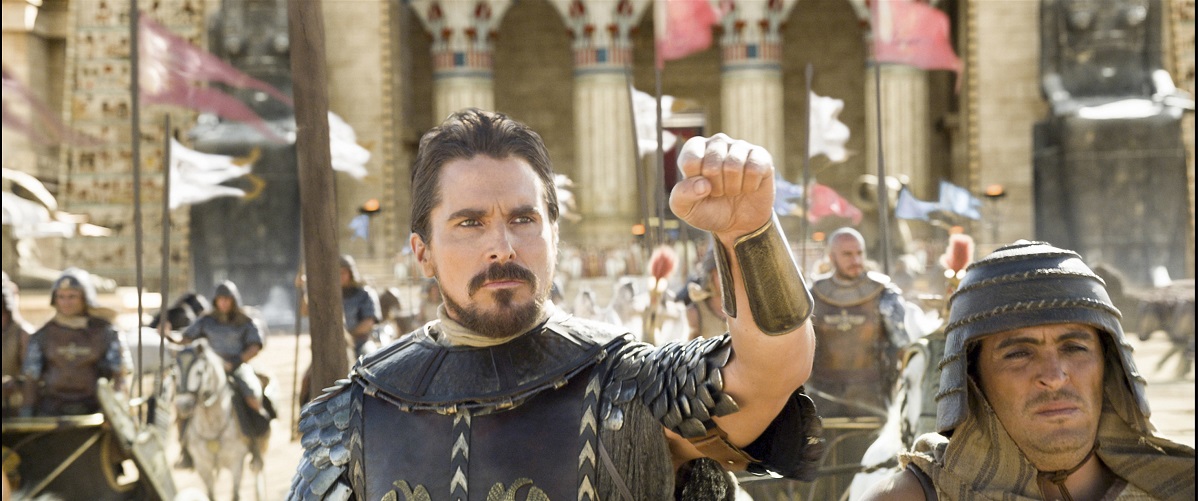
A numbing and soulless spectacle of 3-D, computer-generated imagery run amok, Ridley Scott ’s “Exodus: Gods and Kings” presents an enduring tale by pummeling us over the head with it.
The story of Moses rising up against the Pharaoh Ramses and leading hundreds of thousands of Hebrew slaves out of Egypt to freedom is one with which we’re all extremely familiar. It’s the entire point of Passover. Scott is not reinventing the wheel here. Rather, he’s invented the biggest, shiniest, noisiest wheel imaginable, then he runs over us with it rather than inviting us along for the ride.
Certainly, there’s an allure to seeing this sort of old-fashioned, biblical epic on the big screen–and indeed, within this proliferation of pixels, there is undeniable craft and heft to the massive set pieces and behemoth battles. From the costumes to the weaponry to the interiors, it’s obvious that Scott’s team took great care in considering and creating every detail. But the film as a whole (with a script credited to Adam Cooper & Bill Collage and Jeffrey Caine and Steven Zaillian ) feels overstuffed and over-glossed. Self-serious to a fault, it packs in more and more in terms of story and extravagant visuals while offering too little in terms of actual character development and engaging drama.
When he’s been at his absolute best in his lengthy career, directing films like “ Blade Runner ” and “ Alien ” and even “Thelma & Louise,” Scott has established himself as a visionary and a master of creating imagery that would go on to be iconic. “Exodus” feels oddly impersonal. It’s hard to tell what Scott’s point is here, beyond making his Academy Award-winning “ Gladiator ” look like an independent film by comparison. Earlier this year, “Gladiator” star Russell Crowe played the title character in Darren Aronofsky ’s “ Noah .” That was a biblical epic which also was massive in scope but at the same time beautiful and strange; it stayed true to its source material but found an intriguing and challenging tone. It actually evoked emotion.
In “Exodus,” the plagues are fun, briefly, and that’s about it. At least, the prospect of the plagues presents the promise of fun: “Eww, gross, a massive pile of frogs,” or: “Aww, yeah, here come the locusts.” But like so much else in the film, these potentially thrilling sequences of havoc and terror evolve into enormous swarms digitally divorced from their effect on humanity. (The boils, though–they remain. And they’re nasty.)
It certainly doesn’t help that Christian Bale plays Moses in mostly stiff and detached fashion. (But hey, at least he’s more intelligible here than he is as a grumbling and tormented Batman). Here, he’s a quietly capable leader –a general among men, and in the eyes of the Pharaoh Seti ( John Turturro ), who raised Moses as his adopted son, clearly more capable to take over the kingdom than his own biological son, the preening and egotistical Ramses ( Joel Edgerton ). Despite the thick eyeliner, the shiny, bald pate and the radiant golden wardrobe, Edgerton is never quite flamboyant enough. He could have gone over the top with the role and helped breathe some life into this picture. He seems sadly uncomfortable.
Once it’s revealed that Moses is actually, you know, Jewish, he’s cast into exile, where he forges a pleasant, new life for himself as a sheepherder with a wife and a son. Meanwhile, over the past nine years, Ramses has assumed power and essentially turned Memphis into Las Vegas: overbuilt, overpopulated and so generally overwhelmed that slaves are being burned to death just to thin the place out. (It seems entirely possible that Scott does not get the irony of constructing something that is simply too big.)
It’s at this time that Moses starts seeing visions and receiving instructions as to his true purpose: to return to his homeland and free his people. God appears to him as an impish British schoolboy, which is a rather clever idea. In retrospect, Old Testament God does seem rather capricious and destructive in ways that remind me of my overtired 5-year-old son playing with his Legos after a long day at school. But that casting represents a rare moment of innovation in a film that may as well come with a checklist at the door. Even the parting of the Red Sea–which should be a spectacular event generating legitimate excitement–suggests the draining of a massive bathtub.
Ben Kingsley appears in a woefully small role as Nun, the elderly scholar who shares the news with Moses about his true heritage, yet he can’t help but infuse his few moments with great dignity. As Joshua, who helps Moses lead the slaves out of Egypt, Aaron Paul is mostly relegated to sticking by Moses’ side, a huge waste of both his presence and his ordinarily inspired instincts. Sigourney Weaver gets even less to do as Ramses’ haughty mother, Tuya, while Hiam Abbass , as Moses’ mother, Bithia, has only a handful of lines of dialogue.
So why is this blockbuster different from all other blockbusters? It’s not. There’s just more of it. And less.

Christy Lemire
Christy Lemire is a longtime film critic who has written for RogerEbert.com since 2013. Before that, she was the film critic for The Associated Press for nearly 15 years and co-hosted the public television series “Ebert Presents At the Movies” opposite Ignatiy Vishnevetsky, with Roger Ebert serving as managing editor. Read her answers to our Movie Love Questionnaire here .
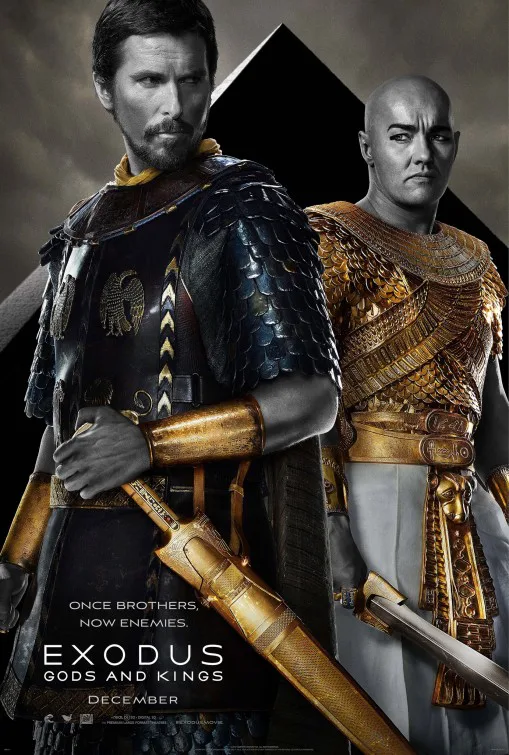
- John Turturro as Seti
- Indira Varma as Miriam
- Joel Edgerton as Rhamses
- María Valverde as Séfora
- Sigourney Weaver as Tuya
- Aaron Paul as Joshua
- Ben Mendelsohn as Hegep
- Golshifteh Farahani as Nefertari
- Christian Bale as Moses
- Ben Kingsley as Nun
- Adam Cooper
- Bill Collage
- Steven Zaillian
Director of Photography
- Dariusz Wolski
- Ridley Scott
Leave a comment
Now playing.
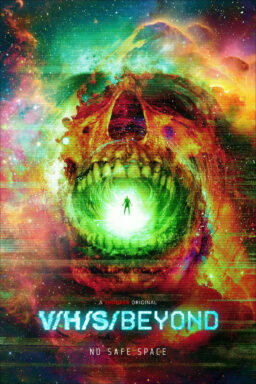
V/H/S/Beyond
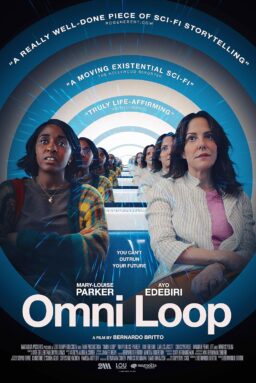
Apartment 7A
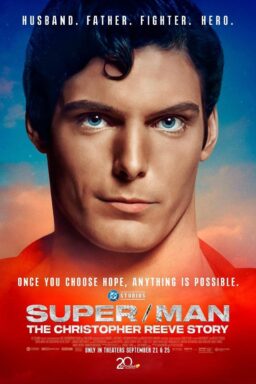
Super/Man: The Christopher Reeve Story

Eureka (2024)
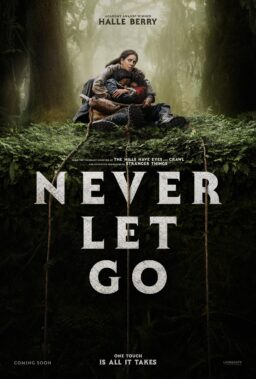

Never Let Go
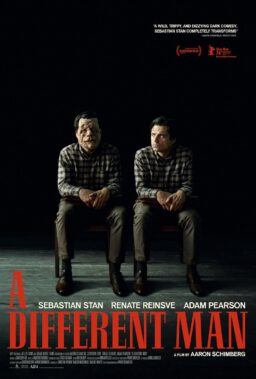
A Different Man

In the Summers
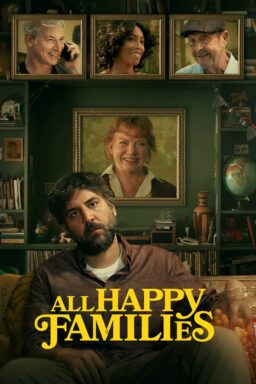
All Happy Families

All Shall Be Well
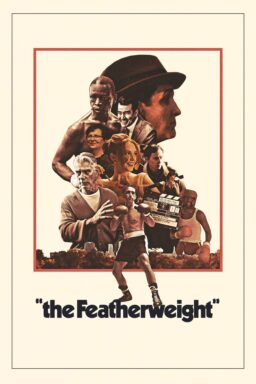
The Featherweight
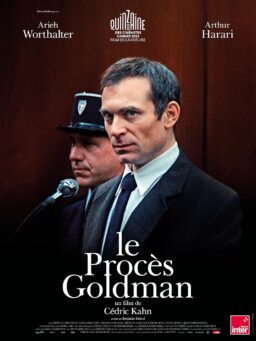
The Goldman Case
Latest articles.
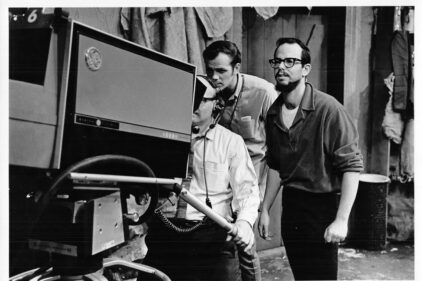
Saying Goodbye to Michael Loewenstein, Set Designer for Siskel & Ebert at the Movies

Zack Snyder’s Animated Netflix Epic “Twilight of the Gods” Aims for Valhalla, Lands at Mediocre
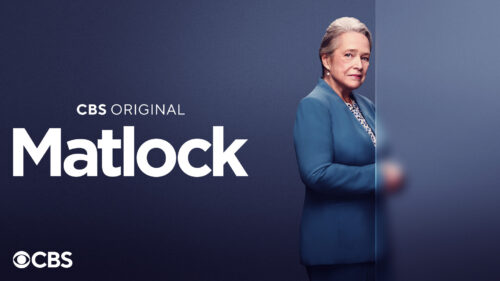
“Matlock” Remakes a Classic with Humor and Moral Force
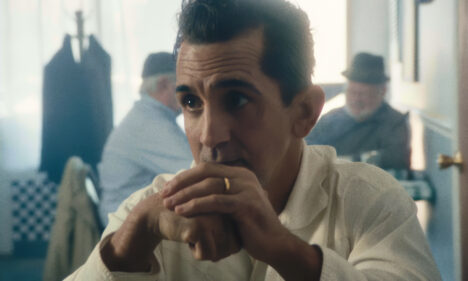
In the Ring: James Madio and Steve Loff on “The Featherweight”
The best movie reviews, in your inbox.
- Asia - Pacific
- Middle East - Africa
- Apologetics
- Benedict XVI
- Catholic Links
- Church Fathers
- Life & Family
- Liturgical Calendar
- Pope Francis
- CNA Newsletter
- Editors Service About Us Advertise Privacy

Cinemazlowski Movie Review: "Exodus: Gods and Kings"
By Carl Kozlowski
Dec 12, 2014
This has been quite a year for God at the movies. There were several smash hits Christians embraced in the spring, such as “God’s Not Dead” (cost $2 million, made $60 million), “Heaven is For Real” (cost $12 million, made $90 million), and “Son of God” (another $60 million winner off a $22 million budget) all were embraced by Christians and shocked Hollywood by scoring well at the box office. Then there was “Noah,” a huge-budgeted epic from Paramount that made just barely more than $100 million here in the US but did better around the world. But because it took some liberties with the story of Noah (including having a bunch of bizarre rock people come to life and help him build the Ark), many Christians attacked it and it’s generally believed it could have made double its gross if it hadn’t scared off so many believers. Now comes “Exodus: Gods and Kings,” and it’s another big-budget epic from a major studio – this time Fox – and it’s been stirring up controversy on a couple fronts. First, star Christian Bale said he believes Noah was schizophrenic. Second, director Ridley Scott admitted he’s strongly agnostic. And third, God in this movie isn’t depicted as a booming voice, but as an 11 year old boy who’s petulant in what he wants. Sounds like a recipe for disaster, but I’m happy to report that that’s far from the case. In the actual film, Bale’s Moses starts with fears about whether he’s really being inspired by God to lead his Jewish people out of Egyptian slavery and into the Promised Land of Israel, but he is undeniably dependent on sincere prayer conversations with God to figure out each major decision on their 40-year journey to freedom. Secondly, the God-as-a-kid concept actually works on its own terms. .Everyone loves the idea of God booming His voice across the skies, but yet we are told so often to withdraw into silence to hear the voice of God most directly, and Jesus famously spoke about how the ideal state of mind is to be like a child. Since none of us has directly heard God speak, who is to say that He couldn’t come to us in the form of a boy? One other point I should mention is that director Ridley Scott handles the parting of the Red Sea differently than we’ve come to expect. There’s no giant, fast parting of the waters, but rather, the miraculous crossing of the Sea has a different yet still impressive visual approach that still pays off with spectacular end results that should leave no viewer’s jaw undropped. Having addressed the controversies of this movie,I should state the obvious: the plot. Rather than following Moses from the moment he’s placed in a basket and floated down the river to Egypt, we meet him as a grown man in 1300 BC who is unaware of his status as the earthly leader of God’s Chosen people, the Hebrews. The Hebrews have been Egypt’s slaves for 400 years, but right off the bat, the movie opens with a scrolling text that says that they never forgot their God and that “God has not forgotten them.” We quickly are thrust into the court of the Pharaoh Seti (John Turturro), and see Moses and the Pharaoh’s son Ramses (Joel Edgerton) A priestess predicts that “a leader will be saved and a savior will one day lead,” but no one realizes she’s talking about Moses and Ramses. Moses only comes to realize his true background as a Hebrew and his destiny to lead them after he visits a slave-labor city and meets a scholar (Ben Kingsley) who tells him he’s a Hebrew and God has big plans for him. This causes a major stir back home, and Moses is exiled to the desert, where he meets his wife and starts encountering God in the form of an 11 year old boy (Isaac Andrew). As he finally accepts his destiny to confront the pharaoh and demand the Hebrews’ freedom, he warns the Egyptian ruler that God will unleash a stream of plagues upon the empire. And from there, Ridley Scott leaves behind the questionable elements of his take on Moses (other than using crocodiles to help explain how the waters turn to blood) and piles on one thrilling moment after another. The ten plagues come in one furious, wildly impressive montage that expertly improves on the effects of Hollywood’s prior great Moses epic “The Ten Commandments,” and even that amazing sequence leads to the utterly jaw-dropping adventures of the Egyptians on chariots chasing the Hebrews on foot across vast expanses of deserts, mountain ranges and ultimately the sea. It is in these sequences, and the seemingly unending dangers that the Hebrews are put through, that “Exodus:God and Kings” truly shines. Moses turns to God time and again (equally often without the manifestation of the child) and prays his way through to the right decisions, and so ultimately the movie is not just spectacular entertainment but spiritually stirring as well. We are at an interesting crossroads in which Hollywood is trying to listen to the call for Bible-based, faith-centered entertainment for the first time in decades. We also are at a point where world-class directs like Scott are eager to take on the challenge of mounting the epic tales of the world’s greatest book, the Bible. It is important to vote with our dollars as believers, and support the good and even great efforts. “Exodus: Gods and Kings” may have a couple of strange aspects to it, such as the child form of God, but it still is world-class film making that could really bring all ages and types of people around the world into the theater for an exciting message of meaning. And for that reason, I feel that “Exodus: Gods and Kings” is the most inspirational movie of the year.
Subscribe to our daily newsletter
Our mission is the truth. join us.
Your monthly donation will help our team continue reporting the truth, with fairness, integrity, and fidelity to Jesus Christ and his Church.
Den of Geek
Exodus: Gods and Kings Review
Exodus: Gods and Kings works best when it's about Christian Bale's unique Moses and his desire to discipline God.

- Share on Facebook (opens in a new tab)
- Share on Twitter (opens in a new tab)
- Share on Linkedin (opens in a new tab)
- Share on email (opens in a new tab)
Ridley Scott is deliberately walking over holy ground with Exodus: Gods and Kings , and I’m not just talking about the old Hebrew tale. Oft repeated, the story of Moses and his spiritual battle with Pharaoh is nonetheless most associated in the collective imagination with Charlton Heston, shrouded in a ridiculously big bushy beard, parting the Red Sea with almost as much fanaticism as his director Cecil B. DeMille exuded in mounting The Ten Commandments . Twice.
Yet, Scott’s own Exodus: Gods and Kings comes from a very different place and with a refreshingly inventive take on Moses. As embodied by a boisterously fierce Christian Bale, the man who went up the mountain came back down ready to kick some ass, be it that of Egyptians, doubting Hebrews, or even Exodus’ peculiar representation of God Himself. Most of all, however, Scott zeroes this story in on the brotherhood of Moses and Rhamses, and what it means to lose it. This knowing agony informs the movie well enough to overcome its own considerable plagues (of which there are many).
At the risk of sounding redundant in the 21 st century, Exodus: Gods and Kings is the well-worn story of Moses and his journey from Prince of Egypt to Liberator of the Israelites. Skipping much of the stilted pageantry associated with his legend, the film opens on Moses (Bale) as already a man full grown. He’s the cousin and brother of heir apparent Rhamses (Joel Edgerton), but the preferred child of Rhamses’ father, the Pharaoh Seti (John Turturro). Thus, there is immediately friction between the lads long before Moses is revealed to actually be a Hebrew slave who was spared a monstrous fate when his mother and sister placed him in a basket on the river.
A threat to Rhamses’ legitimacy due to a pro-Moses military, and a downright loathsome irritation to Egyptian Queen Tuya (Sigourney Weaver), the young prince’s days in court would have likely been numbered, but the revelations from Nun (Ben Kingsley) certainly expedited matters. Exiled in the desert where he finds the love of a good woman (Maria Valverde), Moses also finds God. Literally. And the deity has quite the mission for this lifelong secularist now uncomfortably garbed in shepherd’s clothing.
Ad – content continues below
Much has been made in the press as of late about the mostly white cast of Exodus: Gods and Kings , and it is not entirely wrong to question if North Africa ever looked this WASPy. However, it’s also a story in which rivers turn to blood, and God commits mass infanticide during a 400-year period of Hebrew enslavement that has not a shred of historical evidence in all of Egypt. In other words, just go with it as a Bible story.
That is certainly Scott’s approach, as he utilizes all of his ancient world building extravagance from Gladiator and Kingdom of Heaven to make his most action-packed and strangely light-hearted “Old Times” picture to date. Not feeling nearly as bound by creating a historical reality as those aforementioned films, Exodus: Gods and Kings has a definite allegorical intangibility to it wherein Scott is emboldened to unpack the relationship between Moses and Rhamses, and eventually Moses and God.
While the rest of the characters are thinly sketched at best, Moses and Rhamses’ struggle is always heartfelt, allowing Bale and Edgerton to provide some weight to the CGI opulence of man-eating crocodiles and hordes of locusts. The film is dedicated to Tony Scott, and somewhere in the picture, there is a more personal narrative that Scott likely wanted to explore about these two men that treat the Wrath of God as merely inconvenient weather when it comes time for a showdown.
However, the real strength of the movie comes from a very modern perspective on Moses. As the paterfamilias of religious saviors, it is odd to see Moses spend over an hour of the movie as essentially an atheist, doubting the Egyptian gods well before he continues doubting the Hebrew one—until he runs into a burning bush. Fitting the actor and director’s own sensibilities, this Moses is exhaustedly human, as well as very cynical of all spirituality until he becomes a growling, fiery, and even maniacal messenger for it.
Christian Bale, using his real accent, plays Moses like a tenured professor that was forced against his will to become the half-crazed pit preacher, screaming the end is nigh on the side of the Quad. It’s not scripture, but far more than all the CGI plagues, it’s riveting. And more importantly, it offers the film’s most interesting and soon-to-be controversial aspect: God is a 10-year-old child.
Moses meets God throughout the film in the face of a preadolescent boy whose tempestuous temper is scolded by the rapidly aging Bale. Their dynamic is thus a far more anti-authority Moses trying to argue with a child about why the murder of thousands of babes is cruel. This will undoubtedly enrage some of the faithful, but it certainly would explain a lot about the Old Testament’s God versus the New Testament counterpart. Perhaps puberty kicked in?
Less successful is Scott’s further attempt to “ground” Moses with an over reliance on his alluded militarism. Scott amusingly uses superior battlefield prowess as a reason for the Egyptian military’s initial reluctance to apprehend their former general (think Maximus and Commodus), but the result is far too many scenes of God’s Chosen People choosing to take bow and arrow to Egyptians in guerrilla tactics. Ironically, it’s more thrilling than anything in Scott’s Robin Hood misfire, but instead of enlivening Exodus’ pace with some undoubtedly studio mandated machismo, it slows the running time to a crawl until God puts on a show.
Get the best of Den of Geek delivered right to your inbox!
One imagines that in another world, Scott and Bale would have loved to do the whole Moses movie like this—where the hero’s link to divinity is ambiguous at best and he wins the day by military cunning and fortuitous climate conditions. But doing that picture at this budget (and in this country) would be a miracle unto itself.
Overall, the pace is still relatively nimble in the expanse of Biblical Epics. While you feel every minute of Exodus’ regal 150 minutes, it is downright breezy when compared to the third act slog of Darren Aronofsky’s Noah , not to mention The Ten Commandments’ nigh four-hour sermon. Comparably, Exodus is succinct, perhaps too much so when one realizes that all the characters not named Moses or Rhamses amount to glorified cameos (Aaron Paul’s Joshua is more or less an extra), thanklessly reciting their pious and leaden dialogue.
Exodus: Gods and Kings is a dutiful retelling of Moses that’s up to modern special effects standards, and it finds a genuine humanity in Moses’ brotherly love, as well as his struggles of doubt with Boy God. As a result, 21 st century Moses avoids many of the pratfalls of DeMille’s laborious pageant. There are no entire hours listlessly devoted to Anne Baxter’s crocodile tears or the construction of a golden calf; Moses is played by a legitimate actor who finds a pulse to the marble statue (as opposed to being one); and, most of all, it doesn’t feel like you spent half a day getting slapped in the face by DeMille and his notorious casts of thousands with those precious stone tablets.
Still, for all of the amusing upgrades to this multiplex exodus, it never quite achieves the level of wide-eyed zealotry and obvious love for the material as seen in Chuck Heston decreeing, “Let my people go.” Even if Exodus: Gods and Kings is the better movie, it can never truly be the better movie. Coming down from the mountain with skepticism, Exodus ultimately leaves viewers as exactly that. But it does so in such grand style.
***This review was originally published on December 4, 2014.
Like us on Facebook and follow us on Twitter for all news updates related to the world of geek. And Google+ , if that’s your thing!
2.5 out of 5

David Crow | @DCrowsNest
David Crow is the movies editor at Den of Geek. He has long been proud of his geek credentials. Raised on cinema classics that ranged from…
‘Exodus: Gods and Kings’ Director Ridley Scott on Creating His Vision of Moses
By Scott Foundas
Scott Foundas
- Film Review: ‘Black Mass’ 9 years ago
- Film Review: ‘The Runner’ 9 years ago
- Film Review: ‘Straight Outta Compton’ 9 years ago

The ideal place to meet Ridley Scott would be on a raging battlefield, in the furthest reaches of outer space, or in the midst of any of the other vast canvases on which he creates his movies.
Instead, we’re sitting in a basement salon at London’s trendy Ham Yard Hotel, where the 76-year-old director has parked himself, however briefly, to discuss his new biblical epic “ Exodus: Gods and Kings ,” and to ruminate on his long career.
“You’re probably going to be sitting down, so you’re not going to get a proper sense of him,” actor Christian Bale, who stars in Scott’s new film as Moses, warned this reporter a few days earlier. “You’ve got to see Rid on the move to understand him. He’s totally kinetic. I’m absolutely sure he springs out of bed at 10 times the speed I do.”
Related Stories

The Postwar Streaming Market: A Special Report

Twitch, Amazon Ads Launch Fortnite Game 'The Glitch' as New Marketing Opportunity for Brands Including Domino’s, Peloton
Australian actor Joel Edgerton, who plays Moses’ adoptive brother-turned-nemesis Ramses, likens Scott to a shark — not in the predatory sense, but rather because of his need for perpetual motion. “He’s been using his brain in that way for so long, that to him, that equates to normal life,” Edgerton says. “I think he would be uncomfortable if he wasn’t always making stuff.”
Popular on Variety
So there is something incongruous about the image of Scott, dressed in a plain black T-shirt and khaki trousers, calmly sipping coffee at the London hotel on a recent Sunday morning, the day even God (another prominent character in “Exodus”) found fit for a little R&R. But Scott, true to form, has just flown in from Budapest, where Saturday marked his first day of shooting on “The Martian,” a sci-fi drama featuring Matt Damon, Jessica Chastain, Kristen Wiig and Jeff Daniels. By the end of a full day of “Exodus”-related press for his movie, which bows Dec. 2, he’ll be ready to resume production Monday morning.
Where Scott is concerned, life is lived as if Newton’s First Law was one of the Ten Commandments: “If I stop, what am I going to do? Walk a spaniel?” huffs the charmingly brusque director, who says he’s congenitally disinclined to take vacations, and personally reads every script and gives notes on each producer’s cut of all projects produced under his Scott Free Prods. banner. In his peak years as a television commercials director, Scott made as many as 150 spots annually, a pace of work that made dawdling or second-guessing next to impossible. “It was almost like being in sport,” he recalls. “I thought, ‘How many tournaments can I play?’”
By that measure, “Exodus” may qualify as his Olympic Games: a gargantuan 3D event movie made at a cost of $140 million (closer to $200 million before European tax credits) on a shooting schedule (74 days) more befitting a modestly scaled biopic or costume drama. But in working industriously, Scott hasn’t made any compromises. His “Exodus” is at once a work of massive, David Lean-like scale — with dazzling crowd and battle scenes that rival or eclipse Scott’s own 2000 Oscar-winner “Gladiator” — and also a serious-minded moral drama that renders Moses’ journey in more complex emotional and psychological terms (and arguably more in line with the actual biblical version of Moses) than any prior screen version of the tale. That’s especially true with regard to Hollywood’s most famous Moses movie, Cecil B. DeMille’s “The Ten Commandments” (1956), in which Charlton Heston played the character as a square-jawed, self-confident action hero to Yul Brynner’s sneering, vindictive Ramses. (An Easter perennial, DeMille’s film still manages to win its timeslot during its annual broadcast on ABC).
For “Exodus” producer Peter Chernin, whose relationship with Scott dates back to his tenure as head of 20th Century Fox (the studio that financed and is releasing the film worldwide), there was only one filmmaker for the job. “I would argue there’s no one in the world who could handle this scale and scope, plus bring out the kind of performances that the roles call for, at the level Ridley can,” he says.
Bale felt invigorated by the director’s speed of production and preference for shooting with multiple cameras, thereby reducing the number of times an actor had to repeat a given scene. “Rid marries an absolute artistry with a total meat-and-potatoes practicality,” Bale says. He also gives high marks to Scott’s crew of many longtime collaborators, including cinematographer Dariusz Wolski, production designer Arthur Max and costume designer Janty Yates. “There’s no doubt about who’s in charge and who has the final say, but there’s a nice sense of collaboration, even on a film as large as this. Usually, collaboration is inversely proportional to the size of the film, in my experience.”
Opening at the start of a very crowded holiday movie season, “Exodus” represents a significant gamble for all parties, who are clearly hoping for a four-quadrant smash closer to “Gladiator” (which grossed $458 million worldwide) than to Scott’s last historio-religious epic, “Kingdom of Heaven,” which earned only $212 million on a reported $130 million budget. The box office gold standard for Bible movies, of course, remains Mel Gibson’s 2004 drama “The Passion of the Christ,” which grossed $612 million globally, and forced Hollywood to take note of a vocal and underserved Christian audience.

But where Gibson’s film was a story of Christian martyrdom made by a true believer for a like-minded public, “Exodus” attempts something riskier and more ambitious: to render, in the most plausible historical terms possible, the life of a man who occupies a vaunted place in each of the world’s three major religions: Christianity, Judaism and Islam.
Although Scott’s filmography attests to an ongoing fascination with ancient, God-fearing civilizations and even the origin of the species (the subtext of 2012’s “Prometheus”), the director has called himself an atheist more than once. And while he now prefers the term agnostic, he came to “Exodus” as anything but a convert. Rather, he was compelled by the notion of Moses as a reluctant hero — a nonbeliever like himself who only gradually comes to accept the circumstances of his birth and prophesied destiny, and even then finds himself actively questioning God’s plans and his own role in them. It was also a story rife with contemporary echoes, from the revolutions of the Arab Spring to the latest wars for control of the Holy Land.
For Scott, the process of making the film was akin to walking a mile (or, rather, several hundred) in Moses’ sandals. “I always try to place myself in the position of the central character, and try to come at it from my own logic,” he says. With “Exodus,” that meant fundamentally accepting the existence of Moses and the key events of his life, culminating in the liberated Israelites’ long march from Egypt toward the promised land of Canaan. Says Scott: “Once I accept that, how do I proceed, with the greatest respect to the story? It’s so easy to (give the finger) to religions, and we’ve kind of got to stop that. If you believe, you believe; if you’re faithful, you’re faithful. I don’t care what your religion is. The same if you’re agnostic. That should be accepted too.”
Scott enlisted scribes Jeffrey Caine (“The Constant Gardener”) and Steven Zaillian (“Schindler’s List”) to further develop an original script by the team of Adam Cooper and Bill Collage. That included the addition, at Scott’s suggestion, of Malak (the Hebrew word for angel or messenger), a young boy (played by 11-year-old British actor Isaac Andrews) in whose form God appears to Moses — a bold and potentially controversial decision that allowed the director to avoid depicting the Almighty as “voices from the rocks with thunderous clouds and lightning.” For the most celebrated episode of Exodus lore — Moses and the Israelites crossing the Red Sea — Scott imagined a kind of uber-tsunami, inspired by actual evidence of a massive underwater earthquake off the coast of Italy circa 3000 BC.

Like most high-profile religious pictures since Martin Scorsese’s 1988 “The Last Temptation of Christ,” “Exodus” became the subject of intense media scrutiny before Scott had ever exposed a frame of (digital) film on stages at London’s Pinewood Studios and on location in Spain. Much of the outcry online stemmed from his decision to cast white American, European and Australian actors in most of the key roles, no matter that the same could be said of “The Passion of the Christ,” “Noah,” “The Ten Commandments” and virtually any other big-budget Bible movies. “I can’t mount a film of this budget, where I have to rely on tax rebates in Spain, and say that my lead actor is Mohammad so-and-so from such-and-such,” Scott says. “I’m just not going to get it financed. So the question doesn’t even come up.”
The director stopped reading his critics long ago, around the time Pauline Kael eviscerated his 1982 “Blade Runner” in the New Yorker. But Kael wasn’t alone in her invective. In its initial release, with its now infamous studio-imposed voiceover narration and “happy” ending, “Blade Runner” earned lukewarm reviews and failed to recoup its then-exorbitant $30 million production cost. By the time Scott’s rehabilitated director’s cut surfaced a decade later, the movie had come to be enshrined as a modern sci-fi classic on par with his own “Alien” (1979).
“I don’t think there’s a filmmaker of my generation or subsequently who wasn’t vastly influenced by Ridley,” says James Cameron, who followed in Scott’s footsteps when he directed the sequel “Aliens” in 1986. “To see ‘Alien’ on opening night in 70mm was to feel you were on that spaceship, and no one had ever done that in science fiction before.” Years later, when Cameron was preparing the first, low-budget “Terminator” movie, he told his team that if you put “Blade Runner” and “The Road Warrior” in a blender, the result would be the movie he hoped to make.
Scott was something of a late bloomer, already 40 when his 1977 debut feature “The Duellists” was released, 44 at the time of “Blade Runner” — one possible explanation for why he’s spent the next three decades seemingly making up for lost time. “I think it’s encouraging to a lot of others who haven’t made films yet,” he chuckles. Of his 22 feature films to date, 12 have been made just since 2000.
Scott was born in 1937 in the northeastern English town of South Shields, the second of three sons to Elizabeth and Francis Percy Scott, his father a colonel in the British army’s Royal Engineers, his mother a “five-foot-tall dynamo” who took the lead in raising the boys when their father was away on military business. Scott credits his mother with inspiring his lifelong attraction to strong women, both onscreen and off, from Ellen Ripley and G.I. Jane to his two ex-wives, Felicity Heywood (mother of his director sons, Jake and Luke) and Sandy Watson (mother of his director daughter, Jordan), and his current partner, the Costa Rican actress-producer Giannina Facio. To that roster, Scott adds Kai-Lu Hsiung and Jules Daly, the women who head the London and American offices of Ridley Scott Associates, the prolific commercial production company he formed in 1968.
Young Ridley was a poor student who ranked last in his class for most of his primary and secondary schooling, despite trying to apply himself. But he could draw — a skill noticed by a sympathetic art teacher, who suggested that the teenage Scott transfer to the West Hartlepool College of Art. “I went to art school, and the sun rose,” Scott recalls.
From there, he gained entrance to the prestigious Royal College of Art in London, where his classmates included David Hockney and R.B. Kitaj. Returning home on vacation in 1962, he set to work on “Boy and Bicycle,” a semi-autobiographical, impressionistic short film about a lad from the dreary industrial North who plays hooky from school and escapes into Joycean, stream-of-consciousness reveries as he pedals his bike around the Teesside coast. For his lead actor and equipment-carrying lackey, Scott chose his teenage brother, Tony, who would eventually follow him into the film business, where he would rival Ridley’s box office success. For visual inspiration, he turned to David Lean’s 1946 film version of “Great Expectations,” a movie that had a profound impact on Scott, as Lean’s “Lawrence of Arabia” would later in ’62. “It was two brothers together all day for six weeks, and you could see it sinking in,” he remembers of the experience. “It was an education for Tony. Suddenly, he had a direction in life.”

If “Exodus” is, at its core, very much the story of two brothers, then so is the life of Ridley Scott. Around the time of “Boy and Bicycle,” he recalls, Tony, an avid mountain climber, invited him on an expedition in the nearby Cleveland Hills. It was a foggy day, and within moments of setting out, Tony had easily scaled a 200-foot cliff face and disappeared into the mist. “Then a rope came down, and I could hear his voice saying, ‘Tie it ’round, up you come,’ ” Scott remembers. He began the ascent but quickly felt his elbows going numb. “I said, ‘I think I’m going to peel off.’ ” He did, at about 100 feet, flipping backward and getting entangled in the rope like a fly in a spider web. “I could hear Tony at the top saying, ‘I think I’ve got you.’ He lowered me to the ground, and he had burn marks on his hands.”
That, says Scott, was the last of his own mountaineering adventures. But his brother kept climbing, including three summits of El Capitan peak in Yosemite National Park. Then, on a Sunday afternoon in August 2012, Tony climbed to the top of the Vincent Thomas Bridge in Los Angeles and leapt to his death. Ridley was at his home in France’s Luberon Valley when he first received a panic-stricken phone call from Tony’s wife, Donna, reporting that his brother was missing — the start of what he calls “the worst weekend of my life.”
Speaking publicly about those events for the first time, Scott calls his brother’s death “inexplicable,” while acknowledging that Tony had been fighting a lengthy battle with cancer — a diagnosis the family elected to keep private during his treatments and in the immediate wake of his death. (Scott previously lost his elder brother, Frank, to skin cancer in 1980, at age 45.) “Tony had been very unwell, actually, and that’s the moment I realized I had to get very close to him again, though we were always close,” says Scott, who ends “Exodus” with an onscreen dedication to his younger brother. Most of all, he says, “I miss a friend. I’d go to him even when he was doing his recovery, and I’d say, ‘F— the chemo, have a vodka martini,’ and he and I would go out.”
Talk to enough people about Ridley Scott, and you begin to hear some constant refrains. One is that he knows what he wants and how to get it. Another is his fastidious, almost Kubrickian attention to the smallest details of both design and performance. At his first meeting with Scott, on the stages of London’s Pinewood studios, Edgerton found himself being whisked by the director from one department to another as Scott transformed him into his vision of Ramses, instructing a hairstylist to shave Edgerton’s head, and personally applying black liner to the actor’s eyes.
Gary Oldman, who played a disfigured child-molester in “Hannibal,” Scott’s underrated, darkly funny 2001 sequel to “The Silence of the Lambs,” remembers feeling uncertain about his performance in one scene, only to have Scott assure him that they’d gotten a good take. “He said, ‘No, no, we do have it. I was listening,’ ” Oldman says. “Normally, you would expect a director to say, ‘I was watching,’ but he said, ‘No, I was listening, it’s good, we’ve got it.’ ”
It’s what Scott likes to call “the school of everything” — a certain all-encompassing artistic vision that drew him to the films of Lean, Kubrick and Orson Welles when he was first discovering cinema. “In other words, everything was important, not just the script and the story and the actors, but everything on the screen was suited to the subject,” he says. Little wonder, then, that when he talks about his next project, “The Martian,” he does so with an intricacy of architectural detail that suggests he’s visited the red planet itself. “Oh, I have!” he says, meaning another of the film’s locations, in Wadi Rum, Jordan, where he previously shot scenes for “Prometheus” and where, fittingly, Lean filmed much of “Lawrence.”
Few directors have been plugging away so industriously at or near Scott’s age (he’ll turn 77 on Nov. 30), let alone on projects the size of “Exodus.” Yet it’s one of the curiosities of his career that, for all his success and influence, he has remained something of an outlier with critics and industry tastemakers, who have tended to laud individual films (“Thelma & Louise,” “Gladiator,” “Black Hawk Down,” “American Gangster”) while regarding his body of work with a certain cautious distance — the perception that Scott is more of a highly capable craftsman than a capital-A auteur on par with the masters who inspired him, or his generational contemporaries: Woody Allen, Francis Coppola, Clint Eastwood, Martin Scorsese.
It’s been an uneven run for sure — what Hollywood career isn’t? — but if one is to judge Scott by his best work, then he is a filmmaker with few equals. As comfortable in the ancient past as in the distant future, he is the creator of expansive cinematic worlds that, even in his least successful ventures (like 1985’s outre storybook fantasy “Legend”), stretch the imagination and envelop the senses. These are movies in which, as Christopher Nolan recently told the New York Times, “you never feel like you’ve gotten close to the edge of the world.” And they are suffused with images that have burned themselves into our collective cultural consciousness: a chest-ripping stowaway announcing its arrival to the beleaguered crew of the starship Nostromo; spinner cars descending through the rainy, neon-choked vistas of 21st-century Los Angeles; two rebellious travelers in a powder-blue Thunderbird suspended in flight above the Grand Canyon; and, now, 400,000 desert pilgrims of an earlier era trekking toward salvation.
When “The Martian” wraps later this winter, Scott already has a fair idea what he’ll be doing next, though it likely won’t be the much-anticipated “Blade Runner” sequel he developed with the original film’s co-screenwriter, Hampton Fancher. “We talked at length about what it could be, and came up with a pretty strong three-act storyline, and it all makes sense in terms of how it relates to the first one,” says Scott, who adds that fans can expect to see Harrison Ford back in the saddle as the futuristic gumshoe Rick Deckard. “Harrison is very much part of this one, but really it’s about finding him; he comes in in the third act.” Per Scott, that Alcon Entertainment production should go before the cameras within the next year, but with someone else directing (he’ll produce).
Cameron, for one, is eager to see whatever Scott turns his attention to next. “Ridley has continued to be someone I admire more than almost any other director out there,” Cameron says. “Even his minor films I’ll see as promptly as I can, and his major films — his spectacles, or whenever he deigns to do something again in science-fiction — I’ll be first in line. Here’s a guy who’s been vigorous across five decades, and is still going strong. Ridley is who I still aspire to be.”
More from Variety

Apple’s iPhone 16 Is Out Now: Here’s Where To Pick One Up Online

Disney vs. DirecTV Is a Different Kind of Carriage Battle

Inside Sebastian Stan’s Completely Unrecognizable Transformation for ‘A Different Man’

Max Is Free For 7 Days With This Prime Video Promo

Apple Vision Pro Clouds the Bright Future for XR

‘Our Town’: Kenny Leon’s Broadway Revival Reinvents Grover’s Corners For the Modern World
More from our brands, decades before maga infiltrated the hip-hop world, trq rapped at the rnc.

Nicole Scherzinger’s $6.7 Million Home Has Sweeping Views From Downtown L.A. to the Pacific

Arch Manning a Luxury Texas Can Easily Afford

The Best Loofahs and Body Scrubbers, According to Dermatologists

Jennifer Aniston Teases Future On-Screen Reunion With Lisa Kudrow in Birthday Tribute: ‘More to Come!’

Screen Rant
How accurate is exodus: gods and kings to the bible 10 changes ridley scott's movie makes.

Your changes have been saved
Email is sent
Email has already been sent
Please verify your email address.
You’ve reached your account maximum for followed topics.
The 30 Most-Watched Netflix Movies Of All Time
Rey skywalker’s next movie will make one obi-wan kenobi problem even worse, 19 years after revenge of the sith's release, i finally understand why darth vader thought he killed anakin.
- Ridley Scott's film Exodus: Gods and Kings made significant changes to the biblical story, leading to criticism from Christian groups.
- The film was criticized for its inaccurately whitewashed cast, with mainly white actors playing characters in Ancient Egypt.
- Moses was portrayed as a more active freedom fighter in the film, deviating from the biblical depiction of him as a messenger of God.
The biblical epic Exodus: Gods and Kings accuracy was questioned when Ridley Scott made significant changes from the book of the Bible it was based on . As a director who has repeatedly dismissed concerns about accuracy, Scott has been more concerned with providing an entertaining film than he has been with rigidly adhering to the expected retelling of events. While this makes for a more exciting big-budget spectacle in his 2014 movie Exodus: Gods and Kings , it also led to criticism from Christian groups who felt the agnostic director was veering too far away from the original story.
Exodus: Gods and Kings found a new audience on Netflix , and it is the perfect time to look back on all the changes the film made from the biblical story of Exodus . With significant changes to the life story and character traitors of Moses, a different interpretation of how to depict God, and even a newly added crocodile plague, Exodus: Gods and Kings leaned more heavily into its role as a Hollywood action epic than it did a subdued biblical lesson . In doing so, Exodus: Gods and Kings made lots of changes to the original biblical story.

Between action-packed adventures, dramas, and comedies — all of which star A-list actors —, here are Netflix's most-watched movies of all time.
10 The Biblical Story Was Much More Diverse
Exodus: gods and kings was criticized for its biblically inaccurate whitewashed cast.
Exodus: God And Kings featured Christian Bale as Moses, Joel Edgerton as Ramses II, and Aaron Paul as Joshua, and an extended cast of mainly white actors. The 1300 BC Egyptian setting of Exodus meant that this casting was neither Biblically nor historically accurate and director Ridley Scott received criticism over perceived whitewashing at the time of release. In an interview with Variety , Scott gave a controversial and blunt response to the issue stating the film would not receive financing if the lead actor were “ Mohammad so-and-so from such-and-such. ”
He also said the question of casting non-white actors “ never came up .” While it sounds like a very tactless response, the main reason that Scott cast almost all white actors in roles was that he needed big names for the movie to get the money to make it. Christian Bale's name helped sell the movie to investors and got it off the ground . However, this is one Exodus: Gods And Kings accuracy problem that might have actually hurt the movie's success at the box office.
9 Moses Had No Rival Pharaoh Brother
Exodus: god and kings added a sibling rivalry.
Ridley Scott’s version of Exodus positioned the real historical pharaoh Ramses II as the adopted brother of Moses, who was found as a baby and accepted into the Egyptian royal family. However, the Biblical story states that Moses was the son of an unnamed Pharaoh’s daughter , and, had he grown up in the time of Ramses, that would have made him Moses' uncle (via Exodus 2 ).
The version depicted in Exodus made for a much more compelling narrative and added a sibling rivalry dimension to the film that was absent from the Biblical story.
The version depicted in Exodus made for a much more compelling narrative and added a sibling rivalry dimension to the film that was absent from the Biblical story . Moses did have a brother in the Bible in the prophet and high priest Aaron, as well as a sister named Miriam. It was Aaron, in the Bible, who stood as Moses's spokesman when he approached the Pharoah in the Bible. However, making the Pharaoh Moses's brother, it did create movie tension.
8 Moses Was A Lover Not A Fighter
Exodus: gods and kings showcased moses as a far more active revolutionary.
In the biblical story of Exodus , Moses was a messenger of God and carried out his wishes without actively pursuing bloodshed. However, when Exodus: Gods and Kings was released there was concern that Moses was being envisioned as less of a messenger and more of a freedom fighter . Actor Christian Bale controversially described Moses as “ a terrorist in terms of the Egyptian empire ” and if he were alive today “ drones would be sent after him ” (via ABC News .)
While scenes showcasing Moses leading guerrilla fighters against Egyptians may not have been Biblically accurate, they certainly upped the tension in Exodus . Moses did have some aggressive moments in the Bible, including killing an Egyptian overlord, but he mostly attempted to create laws and rules for people to live by in peace and never wanted to do more fighting after that one brutal murder, as he wanted to honor God and not kill.
7 God Speaks Through The Burning Bush Not The Boy
Exodus: gods and kings depicted god not as a burning bush but as a young schoolboy.
In Exodus: Gods and Kings, God was portrayed by an 11-year-old English schoolboy named Isaac Andrews, which was a lot different from the biblical story of God speaking to Moses through a burning bush . While the bush does appear in the film, director Ridley Scott chose to have the young boy named Malak (Hebrew for angel or messenger) do the talking. Ridley Scott explained this change himself (via The Independent ).
“ Sacred texts give no specific depiction of God, so for centuries artists and filmmakers have had to choose their own visual depiction. Malak exudes innocence and purity, and those two qualities are extremely powerful .”
This is something that has changed many times over the years. In The Ten Commandments starring Charlton Heston as Moses, director Cecil B. De Mille chose to have God issue the stone tablets through a burning bush. For Scott, just because it is a child's voice does not mean it isn't God talking through that voice.
6 Moses Wielded A Staff And Not A Sword
Exodus: gods and kings did not depict moses with his signature walking stick.
The classic depiction of Moses has always had him holding his signature staff. This was more than just an artistic choice and was mentioned in Exodus 4:2 when God asked Moses what he was holding, and he replied, “A staff.” But in Exodus: God and Kings this iconic staff was nowhere to be seen and instead, Moses wielded an Egyptian sword during the climax of the film at the parting of the Red Sea.
Omissions such as these demonstrated how significantly director Ridley Scott strayed from the biblical version of this story. There is a reason that Moses held a sword instead of a staff during this moment because Moses knew he was at war for his people. However, as with his penchant for fighting more in the movie than he did in the Bible, this created a bigger moment on the screen as it showed that Moses was fighting for freedom and the sword signified that belief .
5 The Hebrews Fled For A Different Reason
Exodus: gods and kings changd the reason moses fled egypt.
In the Biblical story of Exodus , Moses murdered an Egyptian man who had been attacking a Hebrew slave. Once his crime became known, Moses fled Egypt and the grand exodus of the story was set in motion. In Exodus: Gods and Kings , Moses still murdered an Egyptian, but this was not why he fled Egypt. Instead, Moses was forced to flee when the Pharaoh Ramses II suspected that he was born Hebrew and may be the one prophesied to lead his people out of Egypt.
This created conflict in the new fictional storyline of Ramses and Moses being brothers. While it was still loyal to the Bible stories of Moses fleeing Egypt and trying to lead his people to God and away from danger, the brotherly storylines made this change a smart one for Scott to make. If this movie is about two brothers, then it makes sense for Moses's murder not to be the catalyst for his departure because this allowed his brother to cast him out instead.
4 Moses Was Slow Of Speech And Tongue
Exodus: gods and kings portrayed moses as a talented orator who inspired his people with speeches.
Christian Bale as Moses gave rousing speeches to the fleeing Hebrews at the Red Sea in Exodus: Gods and Kings . However, in the Biblical story, Moses was described as a much quieter man who was “ slow of speech and tongue ” ( Exodus 4:10 ). He would not have been one to address large crowds in the fashion portrayed in the film. While the story of Moses as a meek man portrayed in the Bible makes for a humble characterization in the text, the story of a quiet man sheepishly carrying out God’s wishes would have made for a much less compelling film.
Much like Ridley Scott casting a mostly white cast to sell the movie to investors, he also needed to make sure his lead character was someone who acted like a leader . Even Charlton Heston was a smart man when he played Moses, as the movies need a lead character who can lead his people to safety with his words as much as his actions.
3 The Crocodile Plague Was Not In The Bible
Exodus: gods and kings portrayed this plague in a more cinematic nature.
The Biblical Plagues of Egypt are significantly reimagined in Exodus: Gods and Kings, with a crocodile attack gnawing on the fisherman and turning the sea red with blood being one of the film's most outright changes. In the Bible, Moses stuck his staff into the water of the Nile and transformed the water into blood (via Exodus 7:20 ). However, director Ridley Scott said he was instead inspired by National Geographic “ where I’d seen a frenzy of crocs going after some poor buffalo ” (via New York Times ).
In the Bible, the plagues included frogs, flies, lice, livestock pestilence, boils, hail, locusts, darkness, and the death of the firstborn children. However, the water turning into blood was made more visceral thanks to the crocodiles. It was less mysterious, but crocodiles fit just as well as frogs, locusts, and other creatures big and small infecting the land.
2 The Parting Of The Red Sea Was A Miracle Not A Tsunami
Exodus: gods and kings looked to science to explain the parting of the red sea.
One of the most controversial biblical changes Exodus: Gods and Kings made was related to the parting of the Red Sea. In the original story, under God’s command, Moses held his staff and the water parted for the Israelites to walk through ( Exodus 14:21 & 22 ). However, director Ridley Scott stated in his version the parting was caused by a tsunami and provided a scientific explanation rather than a religious one (via LA Times ). This seems to go against Moses proving God's wrath since it was not a mysterious event.
Exodus: Gods and Kings visual effects' supervisor Peter Chiang said this change allowed for “ the spectacle of this 180-foot wave ” in the film (via USA Today ). Despite the change, this was a money shot for Scott, who said his goal was to deliver something that had people talking in the end. "I was going to hold back on the wave. But I feel, if you've got it, show it ," Scott said. " So I am not being shy about it ."
1 Ramses II Should Not Have Survived The Wrath Of The Sea
Exodus: gods and kings left ramses alive on the beach.
After the parting of the Red Sea in Exodus: Gods and Kings , the majority of the Egyptians are killed by the wrath of the ocean . However, Ramses was still seen alive on the beach, forced to bear witness to the destruction of his army. This was not Biblically accurate as Exodus 14:27 – 28 stated: “ God dumped the Egyptians in the middle of the sea. The waters returned, drowning the chariots and riders of Pharaoh’s army that had chased after Israel into the sea. Not one of them survived .”
This leaves very little room to interpret the Pharoah as still alive. It is really unclear why Ridley Scott chose to allow Ramses to live in the movie. While he died in the Bible, it all ended with him watching his army destroyed, and it might just be Ramses' view that Moses survived and his military died which shows that someone knows God helped Moses depart his wrath. Outside of that, Ramses II as the sole survivor serves no other purpose in Exodus: Gods and Kings.
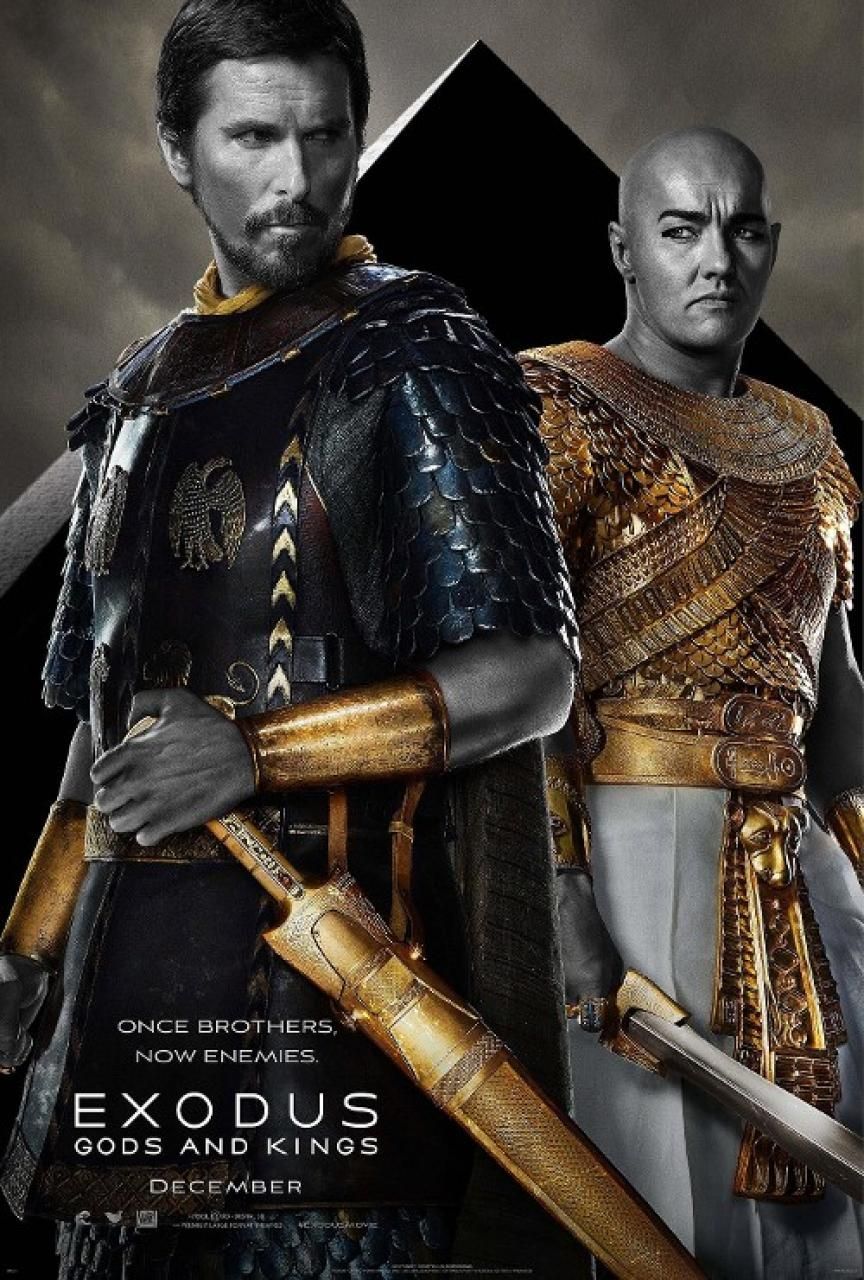
Exodus: Gods and Kings
After fighting side by side with his brother Ramses II, Moses is exiled when it is discovered he is Jewish and not Egyptian. While the powerful Ramses II runs Egypt as the new Pharaoh and deals with several deadly plagues, Moses receives a message from God asking him to free 600,000 Israelites. Exodus: Gods and Kings is directed by Ridley Scott and stars Christian Bale as Moses and Joel Edgerton as Ramses.
Exodus Gods and Kings review: 'A film that stirs and never settles'
Director: Ridley Scott; Screenwriter: Adam Cooper, Bill Collage, Jeffrey Caine, Steven Zallian; Starring: Christian Bale, Joel Edgerton, Aaron Paul, Sigourney Weaver, Ben Mendelsohn, Ben Kingsley; Running time: 150 mins; Certificate: 12A
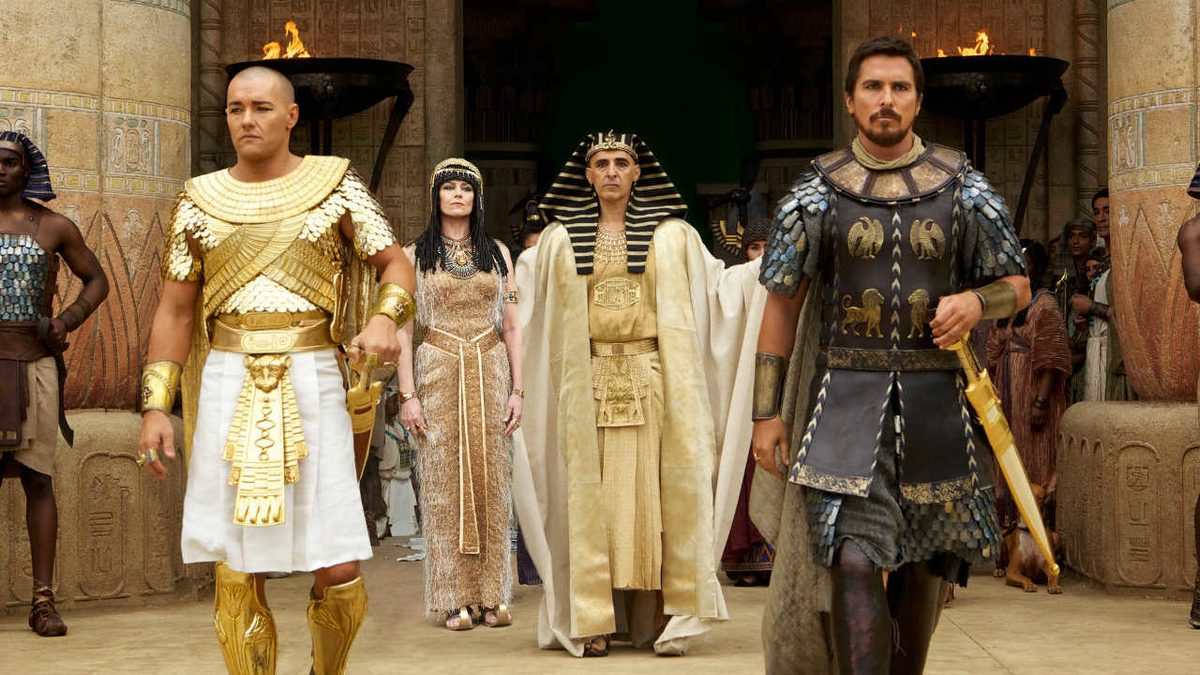
How do you tell a Bible story to an audience who don't go to church anymore? That's the almost insurmountable problem facing director Ridley Scott who, along with Christian Bale, endeavours to make Moses a credible prophet as opposed to the raving loon he'd be labelled as today. That said, in a world still being torn apart by religious conflict, the film does have a resonance beyond the grand visual sweep that Scott can always be relied upon to deliver.
Bale is a safe pair of hands, too, easily able to balance fiery obsession with cool focus, qualities that mark out a leader of men. But Moses is nagged by doubts, too – something that rarely bothered Charlton Heston on the march in the 1956 epic The Ten Commandments . Bypassing the basket in the reeds part, Scott cuts straight to the Pharaoh's palace in Ancient Egypt where Moses is all grown up and threatening to outshine the heir to the throne, Ramses (Joel Edgerton), unwitting of his Hebrew slave roots. All that sets Moses apart is his lack of faith in a higher power.
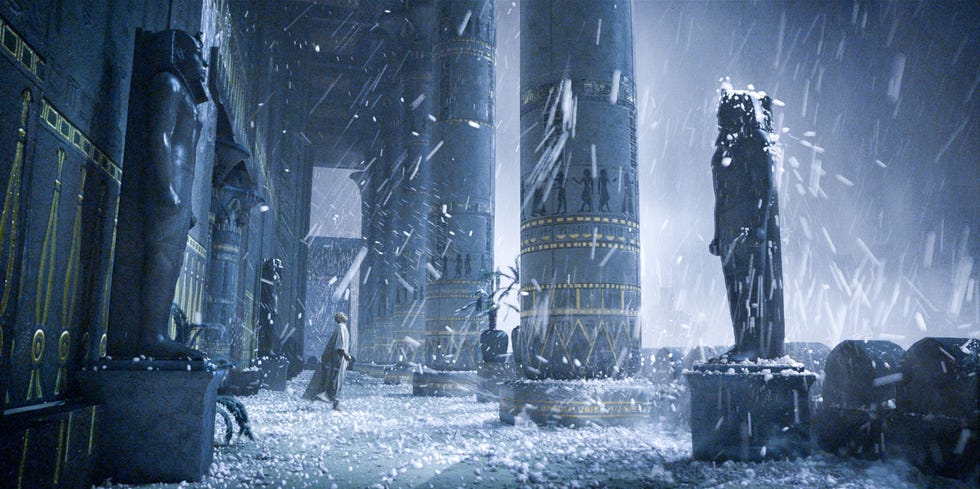
In terms of the psychology, it's the first part of the film that most intrigues, even more so when Moses confronts the reality that he is born of a tribe that he barely thinks of as people. Scott and his team of writers explore this sudden fissure which causes Moses to question his identity and Bale evokes the appropriate sense of isolation when he is sent into exile by Ramses. Years later, the sight of a burning bush on a sacred mount and the words of a small boy – ostensibly, God (Isaac Andrews) – may simply be his repressed guilt driving him mad. His wife (Maria Valverde) cites a head injury and curses him when he ups and leaves, back from whence he came.
In a world still being torn apart by religious conflict, the film does have a resonance beyond the grand visual sweep that Scott can always be relied upon to deliver.
As soon as Moses sees the light, God overrides the human drama. The precocious kid even tells Moses to sit back and "just watch" while Scott becomes His worldly instrument, bringing ten plagues to Egypt via CGI, culminating in the deadly Passover. Ramses squares up to Moses, who politely requests the release of the slaves backed by all this heavenly fury, but Edgerton is far too conscious of his stance. He even poses with a snake draped across his shoulders like a camp Bond villain, quashing any hope of resolving the conflicted feelings that saw him defy his mother (an underused Sigourney Weaver) when he chose to exile – and not kill – his "brother".
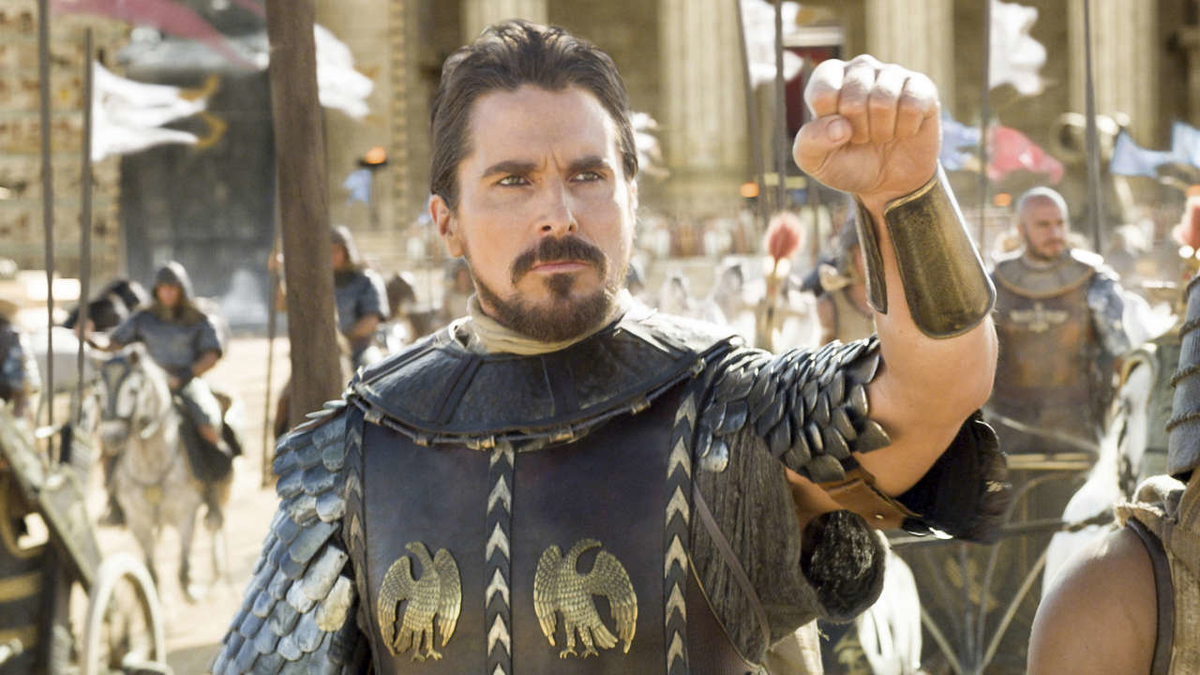
Moses becomes quieter as he gains confidence, yet he commands the screen better when his faith is tested. Inevitably, the parting of the Red Sea is an awesome spectacle, but it carries more emotional weight because Moses, when faced with having to cross it, isn't sure that he has led his people on the right path.
In the end, other questions are raised about the future of the Israelites that chime with the continuing conflict in the Middle-East - and that little boy seems less plausible, even slightly exasperating. The young actor playing Him is overburdened and so is Scott in trying to serve a modern audience, resulting in a film that stirs and never settles.

Apple iPhone SE (2022) review

Anna and the Apocalypse is must-see Christmas film
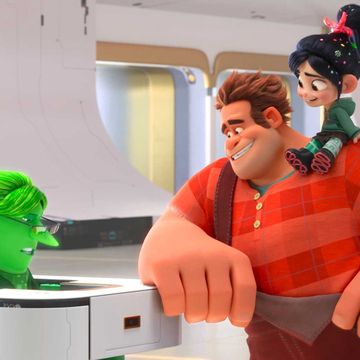
Wreck-It Ralph 2 review: Hilarious & heartwarming

Girl in the Spider's Web: Lisbeth's a superhero

Does Fantastic Beasts 2 recapture Potter magic?
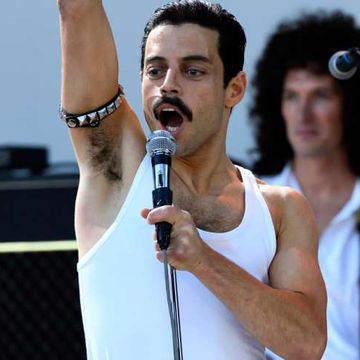
Bohemian Rhapsody review: Not (quite) a kind of magic
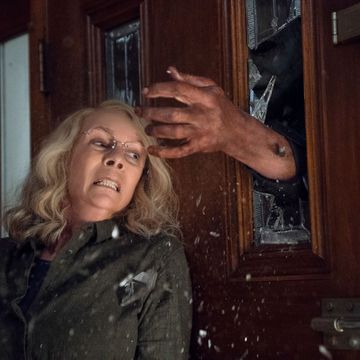
Does the new Halloween movie live up to the hype?
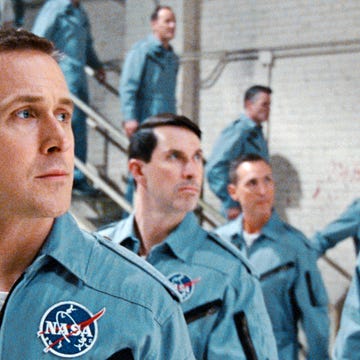
First Man review: Does Ryan Gosling achieve liftoff?
Bad Times At the El Royale: A messy but stylish noir

Life Is Strange 2 episode 1 review: Road trip
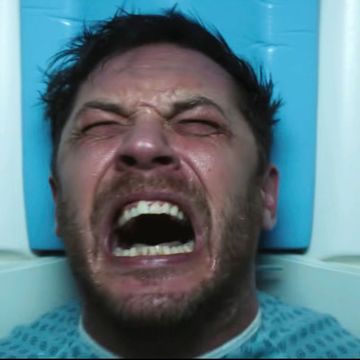
Venom review: Does Tom Hardy's superhero measure up?
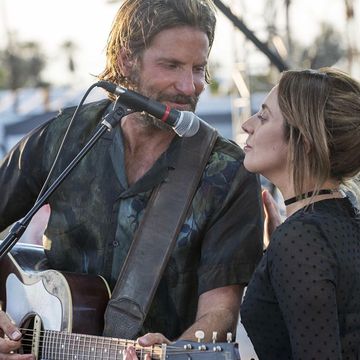
A Star is Born review: Does Lady Gaga's movie sparkle?
Exodus: Gods And Kings Review
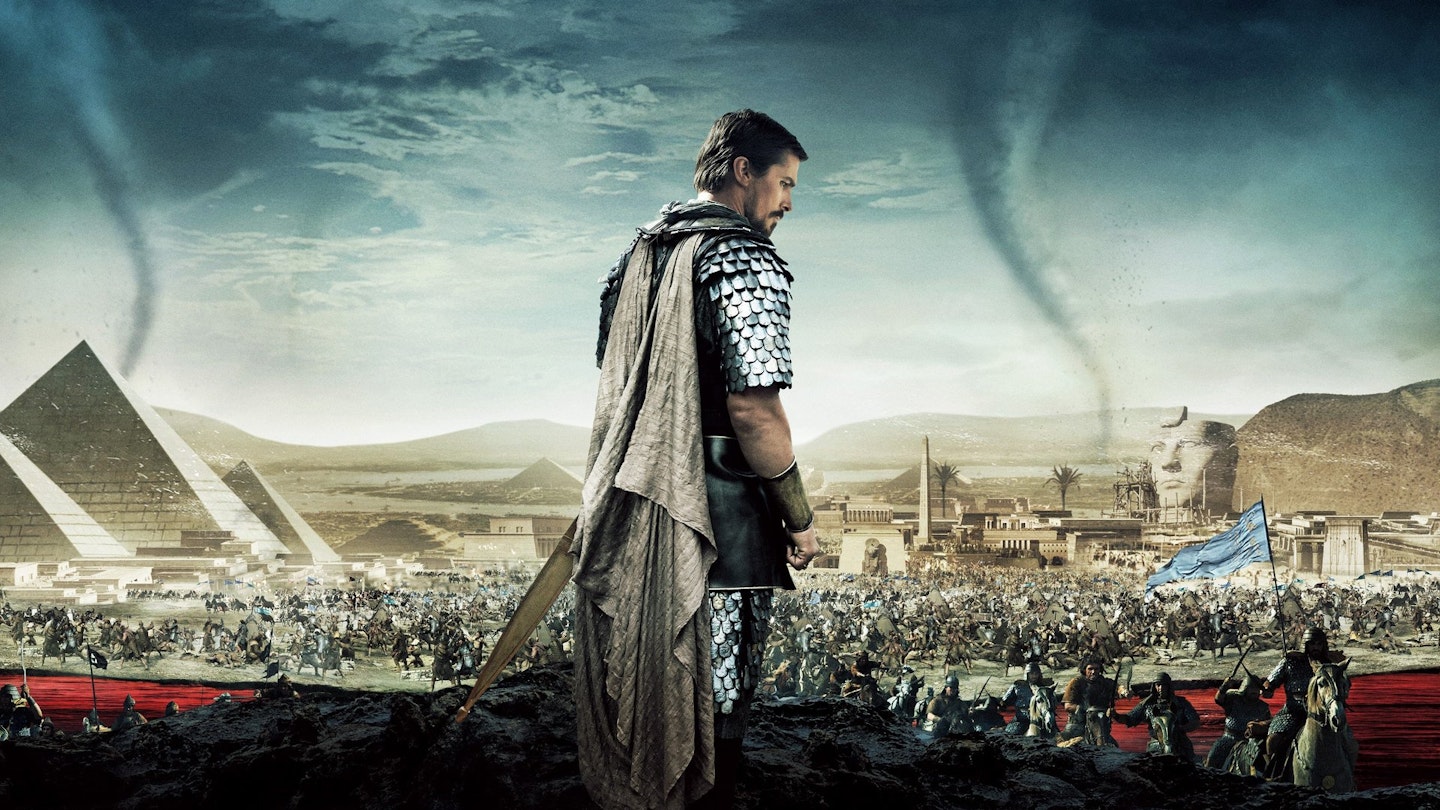
26 Dec 2014
150 minutes
Exodus: Gods And Kings
The Bible shows us God can talk through killing or through allowing his son to be killed. It’s the weird, confusing and sometimes wonderful contrast between the Old and New Testaments. The achievement of Ridley Scott’s take on the most famous story of exile, imprisonment and escape is not that it solves that apparent contradiction – that would be a miracle – but that it lives in it. This is a film that poses more questions than it answers. Where does faith become fanaticism? When does freedom fighting become terrorism? Why does God work through people, or people pretend to be Gods? All that, and shit gets blown up. Well, okay, not quite: people are devoured, sliced and starved in wide-screen spectacle. Oh and, yes – spoiler alert, if you didn’t pay attention in Sunday School – children are killed in their sleep.
Scott has DeMillions to mount the ten plagues and eclipses Cecil’s Ten Commandments with aplomb and invention. The script by Adam Cooper & Bill Collage, Jeffrey Caine and Steven Zaillian brightly attempts to rationalise the horrors that befall the Egyptian people, before leading us along with Moses to realise the answer may be in how God identifies himself: “I Am”.
If you ignore the scale, splendour and slaughter – for a moment – then the biblical pic this bears most comparison to is not those afternoon-long ’50s costume parties, but The Last Temptation Of Christ. Like Scorsese’s heartfelt, fascinating film – too readily dismissed by some Christians as heretical – Exodus: Gods And Kings has a lead who’s not sure if he’s the messiah or just a very naughty boy. Is he mad or bad or from God? Bale, here, is perfect casting, at war with himself as much as he is with Egypt. You feel that tension throughout his performance and throughout the film. It’s a Bible epic that isn’t sure that God exists, and isn’t sure he’s benevolent. But it is also a film that wants, in its heart, to believe.
Related Articles
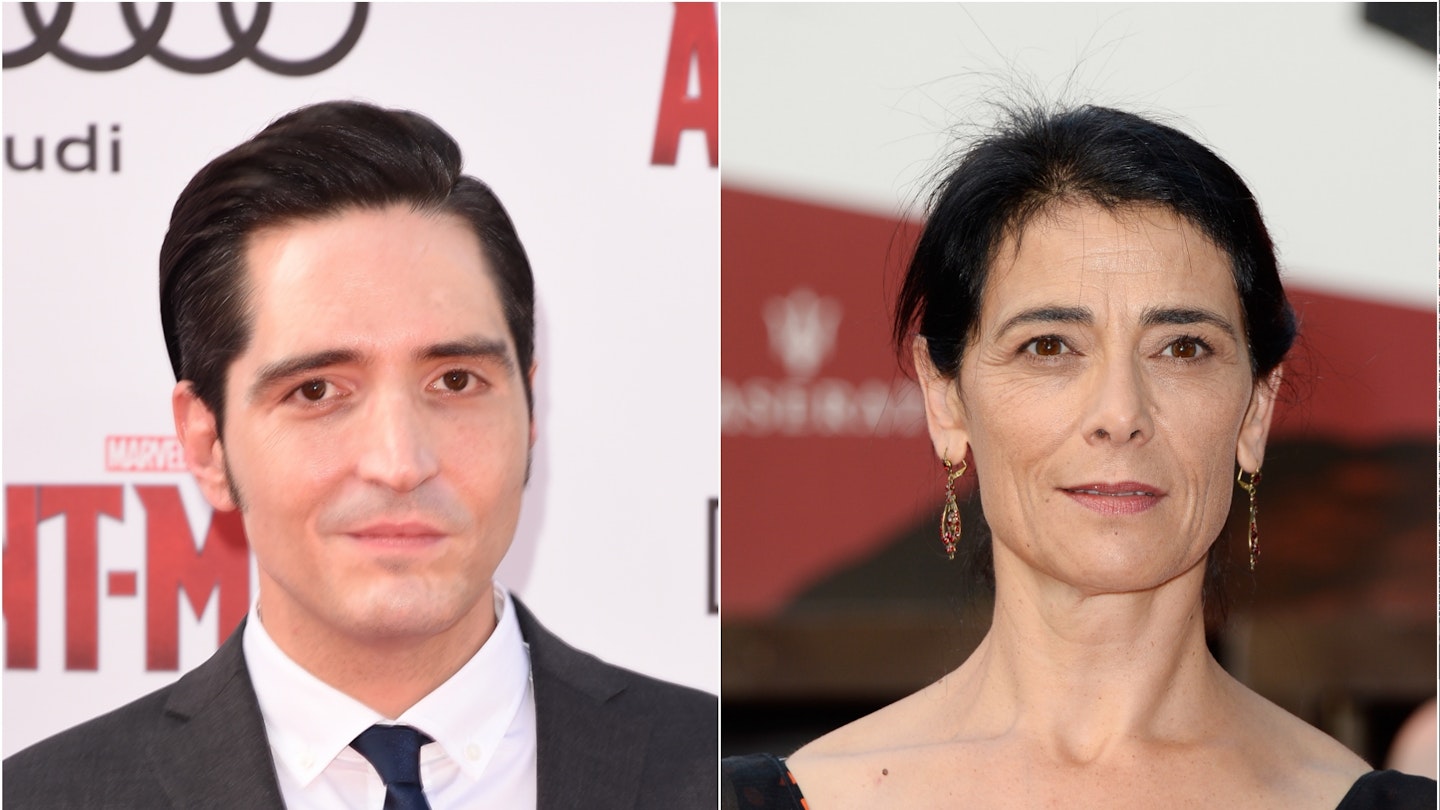
Movies | 13 07 2016

Movies | 15 12 2014
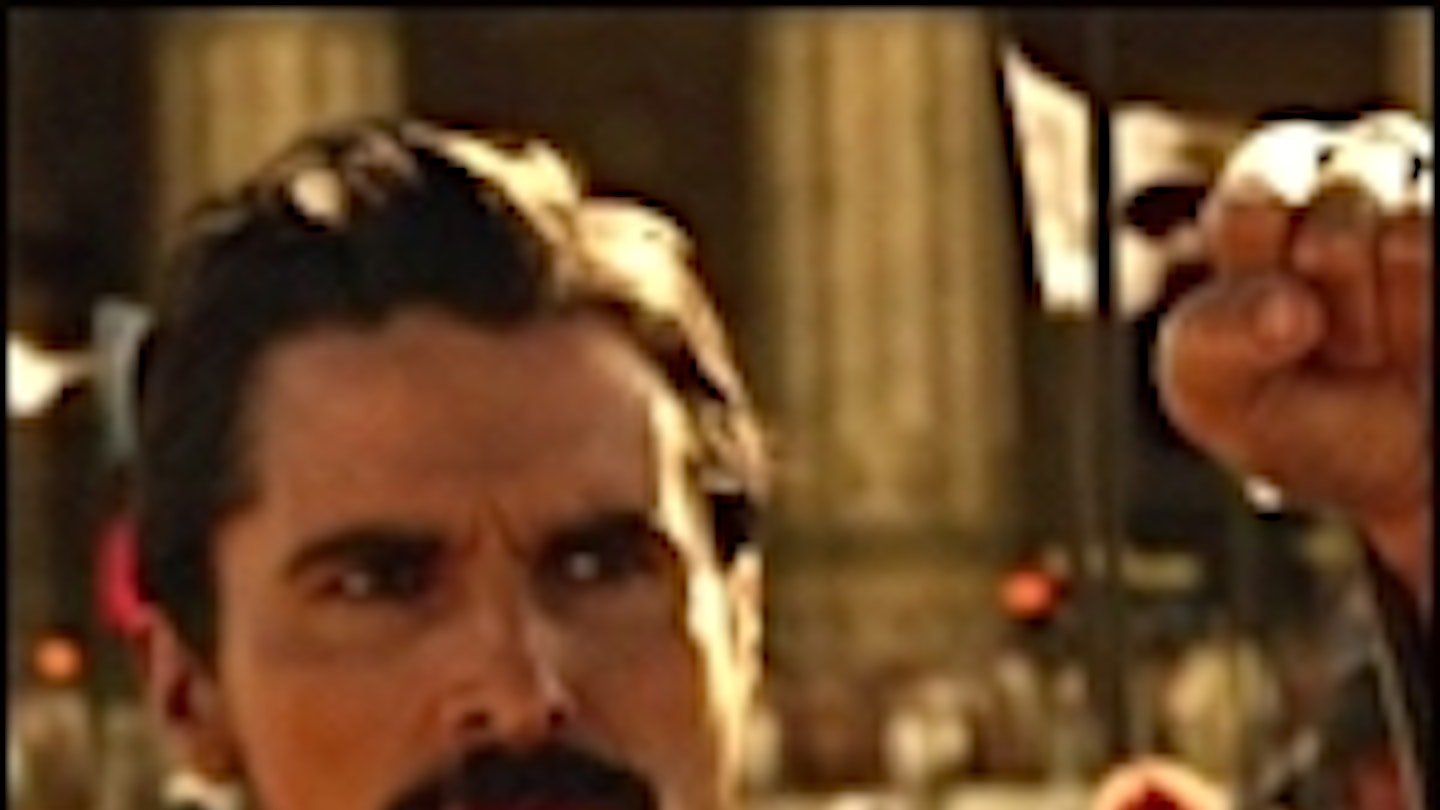
Movies | 10 11 2014
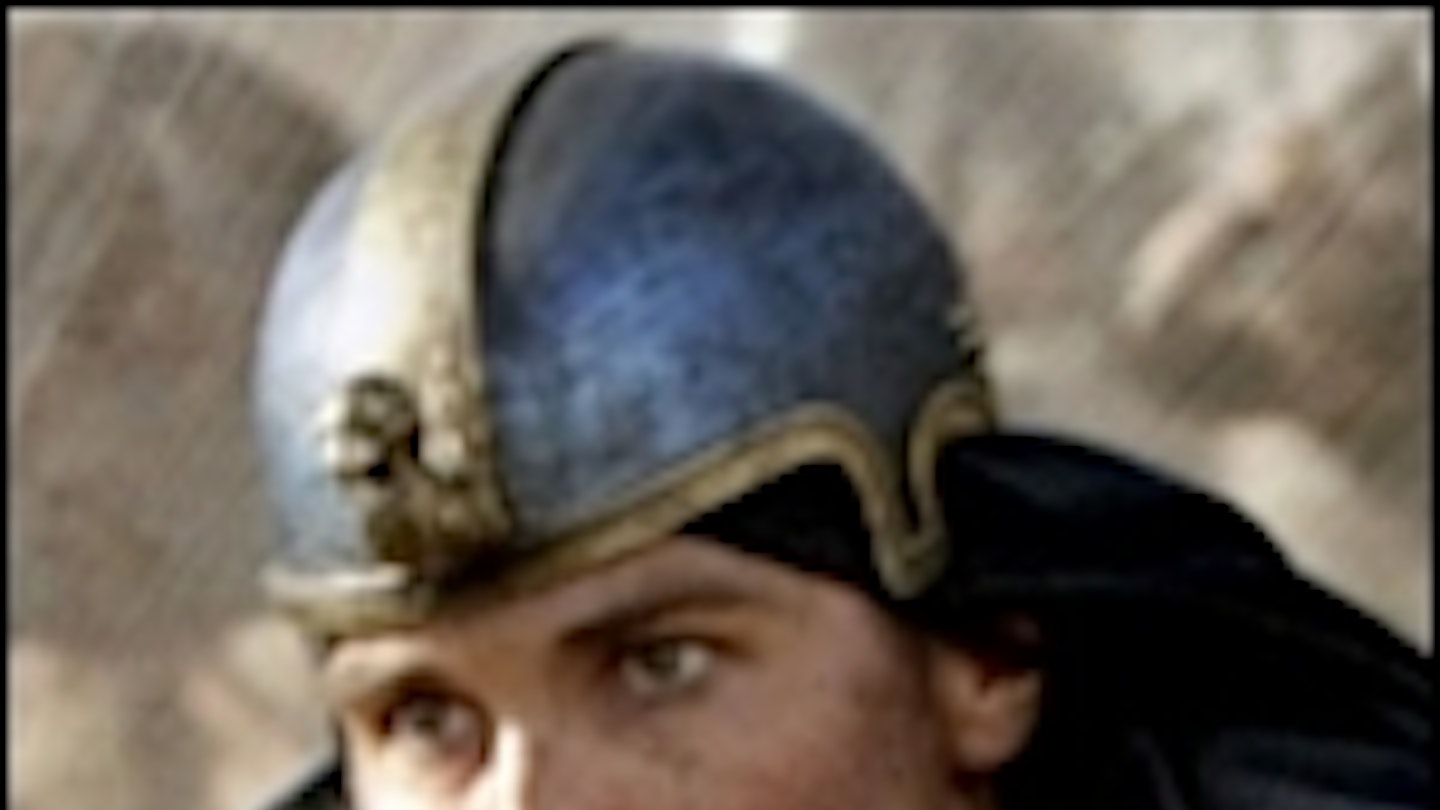
Movies | 27 10 2014

Movies | 01 10 2014

Movies | 28 08 2014

Movies | 26 08 2014

Movies | 09 07 2014
Internet Explorer is no longer supported. Try downloading another browser like Chrome or Firefox .
If you already have an account, Sign in.

- Answers in Genesis
- Movie Reviews
Movie Review of Exodus: Gods and Kings
Exodus: Gods and Kings , starring Christian Bale of Batman fame as Moses, opened in theaters this week. Obviously, the movie is based on the well-known biblical account of Moses’ role in the exodus of the Hebrew slaves from the clutches of the Egyptian pharaoh and his powerful army, as recorded in the book of Exodus. The history in this movie departs from the biblical account on a number of points.
Spoiler Alert: God Wins!
In order to explain where the history in the movie is flawed and how theological issues are dealt with and essential character development is accomplished in spite of these departures from the biblical facts, this review will contain even more spoilers. But that said, here goes . . . .
Chronological Discrepancies
Not surprisingly, the writers of the film chose a view of biblical chronology espoused by liberal scholars, those of the “Late Exodus” camp. The movie opens in 1300 BC with Moses still living in Pharaoh’s court, several decades before the Hebrews’ departure. An analysis of Scripture, correlating the known dates for secular events recorded therein with all the internal biblical data regarding the passage of time (the “begats” and so forth), supports an earlier date for the Exodus, a couple of centuries earlier, around 1445 to 1491 BC. 1
Who’s Who in Egypt

Here Christian Bale portrays Moses battling Egypt’s enemies, the Hittites.
Image provided by Twentieth Century Fox
Most important, from a historical point of view, is the fact that by placing the Exodus in the 13th century BC at the time of Ramses the Great, archaeological evidence in support of the biblical event is completely missing. However, as the upcoming documentary Patterns of Evidence— a well-done documentary to be released in January—demonstrates, analysis of the archaeological and textual evidence in support of the earlier date in the 15th century BC affirms the historicity of the biblical account.
So who was the pharaoh of the Exodus? The Bible never says, and the film sticks with the common—though, in the opinion of many, erroneous—view that it was Ramses the Great. (You can read more about the Pharaohs of the Oppression and Rameses the Great on this website and in Unwrapping the Pharaohs by David Down and John Ashton.) Suffice to say for the purposes of this review that the movie did a grand job of using Ramses the Great’s actual history as a backdrop for the story. Ramses the Great, as in the film, was a great builder of monuments. And his participation in the Battle of Kadesh, which was quite well executed in the film, sets up the strained sibling relationship between Ramses and his putative cousin Moses.
The Ramses the Great of history chronicled the Battle of Kadesh as a clear win for Egypt, and his tales of his own prowess in extricating himself from peril during the battle would lead one to believe he almost single-handedly defeated the Hittites, though a more realistic view of events would suggest he narrowly escaped personal disaster, much as the movie suggests.
This historic battle for control over one of the most fought-over pieces of real estate in the world—the Middle East—was actually not such a clear-cut victory for Egypt. In fact, the Hittites also counted it a win. This part of the movie therefore gave me, at least, a bit of a chuckle as the Egyptians decided how they wanted their “after-action report” to read. And if the biblical Moses had actually lived in the time of Ramses the Great, the real story might have come off just like it was depicted.
More Timing Troubles
Alas when we examine what the Bible tells us about Moses in the New Testament books of Acts and Hebrews alongside the facts in Exodus, we find some discrepancies with the movie’s account of how and when Moses learned of his true identity as a Hebrew, why he killed an Egyptian, and why he then fled Egypt. The Bible doesn’t share with us how Moses knew the Hebrews were “his brethren” but does tell us he killed an Egyptian to spare a Hebrew and then fled to the land of Midian when he learned the murder had been witnessed ( Exodus 2:11–15 ). Cecil B. DeMille, in his highly acclaimed movie about the Exodus, The Ten Commandments , took his share of liberties with the story too, though he did have his Moses killing an Egyptian to defend a Hebrew as in the Bible . Christian Bale’s assault was more a matter of self-defense, but in both movies Moses is sent packing after his arrest.
Superhero Strategy Founders
We learn much about Moses’ motivations, misunderstanding, meekness, and faith in the New Testament books of Acts and Hebrews. How did Stephen, whose monologue is recorded in Acts 7, and the New Testament writers know Moses’ motivation a millennium and a half after the fact? Well, God transcends time and knows all, so He could have inspired Stephen with accurate knowledge of what Moses had in mind when he lifted his hand to do something for his Hebrew brethren, why he left Egypt, and the nature of his faith. And we know God certainly inspired the writing of His Word ( 2 Timothy 3:16 ).
From the lips of Stephen before his martyrdom we hear that Moses early on fancied himself the superhero savior of his people:
Now when he was forty years old, it came into his heart to visit his brethren, the children of Israel. And seeing one of them suffer wrong, he defended and avenged him who was oppressed, and struck down the Egyptian. For he supposed that his brethren would have understood that God would deliver them by his hand, but they did not understand. And the next day he appeared to two of them as they were fighting, and tried to reconcile them, saying, “Men, you are brethren; why do you wrong one another?” But he who did his neighbor wrong pushed him away, saying, “Who made you a ruler and a judge over us? Do you want to kill me as you did the Egyptian yesterday?” Then, at this saying, Moses fled and became a dweller in the land of Midian, where he had two sons. ( Acts 7:23–29 )
An Odd Theophany
The movie erroneously had Moses’ sister Miriam rather than his mother help raise him ( Exodus 2:1–10 ), and, after his years in Midian (nine years in the film as opposed to 40 years described in Acts 7:30 ), it shorted Christian Bale a son. This was a convenient artistic convention, however, for he only had to interact with one, Gershom, who became a point for his confusion after God appeared to Moses in the form of a boy at the burning bush. Incidentally, such an Old Testament bodily manifestation of God is commonly called a theophany . Though the Old Testament confirms that God interacted with Moses in a unique, face-to-face way ( Exodus 33:11 ) somewhat reflected in the friendship the movie eventually develops between Christian Bale and the boy portraying God , nothing in the Exodus account describes the manifestation of God to Moses as boy-like.
I was initially taken aback by this choice of portrayal for our Lord. Indeed, the emotions exhibited by this character at times seem more petulant than God-like if only because they come from the mouth of a child. However, on further reflection I realized that Cecil B. DeMille’s voice actor speaking for our Lord from the burning bush always sounded rather bored and sleepy to me, somewhat reminiscent of the voice of the Face of Boe in Doctor Who . Frankly, anytime we try to portray our glorious God in the sights and sounds of art we inevitably take liberties and come up lacking, for only in the person of Jesus Christ can we ever really see His face, His grace, and His glory. So I think I at least can forgive the convention, though I’m sure it will bother some.
Much more bothersome than the sort of character cast as God’s messenger or bodily manifestation was the lack of any hint of holiness in this God’s character. 2 The holiness of God is distinctly missing from the encounter at the burning bush onward. The real Moses saw no bodily manifestation of God here and later only had a limited glimpse of God’s glory ( Exodus 33:15–23 ). The real Moses was commanded by God ’s voice to remove his shoes because he stood on holy ground in God ’s presence. Our Movie Moses, by contrast, was nearly submerged in mud with a broken leg after a rockslide when he met the boy “ God .” In this and later conversations with Movie Moses, the God -character demands no respect or reverence, inspires no awe or fear, and often seems flippant and rude. This greatly diminishes the character of the God revealed to us in the Bible and presents a “ god ” that is too much like us, a “ god ” created in the image of man.
Motivating Moses
Moving on to the faith that motivated the biblical Moses, the writer of Hebrews sheds much light on his life:
By faith Moses, when he was born, was hidden three months by his parents, because they saw he was a beautiful child; and they were not afraid of the king's command. By faith Moses, when he became of age, refused to be called the son of Pharaoh's daughter, choosing rather to suffer affliction with the people of God than to enjoy the passing pleasures of sin , esteeming the reproach of Christ greater riches than the treasures in Egypt; for he looked to the reward. By faith he forsook Egypt, not fearing the wrath of the king; for he endured as seeing Him who is invisible. By faith he kept the Passover and the sprinkling of blood, lest he who destroyed the firstborn should touch them. By faith they passed through the Red Sea as by dry land, whereas the Egyptians, attempting to do so, were drowned. ( Hebrews 11:23–29 )
Thus while the Bible lets us know that Moses developed his superhero complex before he ever left Egypt, the movie has Christian Bale opt for the I-will-become-Batman approach to the abolition of slavery upon his return to Egypt, under the impression that—as the God -character had told him—he needed to be a general. We get the idea, ultimately, that the God -character let Moses think he was called to be a general for a time so that he could learn being a general wouldn’t be enough.
Neither Terrorist Nor Freedom Fighter Can Do What God Can Do
The Moses who initially sets out in the movie to free the Hebrews takes the approach modern terrorists—or freedom fighters, depending on your perspective—often take. Movie Moses trains a band of guerrillas and begins wreaking havoc on the populace so they will force the pharaoh to let the people go. Of course the pharaohs of Egypt fancied themselves to be gods, so such an approach was doomed to failure and sure to incite only vicious retribution. The proud would-be superhero Moses of the film—like the real Moses described in Acts 7:25 —had to learn that it would require God ’s power, not human power, to free the people.
From the Bible, we learn that the Passover of Hebrew firstborn whose doorposts were covered by the blood of sacrificial lambs is another instance in which God showed His power to save when man cannot. When Ramses, holding his dead child, challenges Moses about how he could worship a killer of children, Moses does not bother to point out that the pharaohs themselves had killed a great many children but rather cuts to the vital point that no Hebrew children had died. Indeed, because of man’s sin every one of us awaits death from the moment we are born, and only God’s grace through Jesus Christ can make a difference in what happens after that ( Hebrews 9:27 ).
The Passover
The Passover ( Exodus 11–12 ) is depicted in the movie, at least the part with the blood, but sadly not explained nor followed according to the biblical prescription. The movie does not correctly portray how the blood was to be applied with hyssop ( Exodus 12:22 ), for instance. Neither is there mention of how the lambs were to be roasted and eaten in preparation for the Hebrews’ imminent departure. Further, the Moses character announces the covering of the blood with an I-hope-it-works attitude rather than a sure promise of God 's protection. The Moses of the Bible was a man of confident faith; the Movie Moses had only a wish and a prayer.
The people could not save themselves any more than Moses could save them. Only God ultimately could save them from the death of the firstborn and free them from the deadly bondage in which they lived.
This important message—the fact that only God can save—has been memorialized in the ritual of Passover among Jews to this day but is only fulfilled in Jesus Christ. We cannot save ourselves from the guilt and eternal damnation we deserve for our sins, but grace for salvation is freely available to us through the shed blood of Jesus Christ, for the Bible says “ Christ, our Passover, was sacrificed for us ” ( 1 Corinthians 5:7 ).
Not By Might Nor By Power
Moses—the Christian Bale version, that is—had to learn the lesson alluded to in Zechariah 4:6 ’s words to Zerubabbel centuries later: “ ‘Not by might nor by power, but by My Spirit,’ says the Lord of hosts. ” First he found that what neither intimidation of his erstwhile-adopted brother Ramses nor terrorist attacks could accomplish, God could pull off with a series of terrible plagues. Our Movie Moses did not head off to Egypt armed with a staff and a dose of holy humility as the Bible ’s Moses but made a point of leaving his shepherd’s staff behind in Midian and bringing along his sword. While this did not really happen, the point works visually in the movie as we see Moses initially depending on his own might to free the people and gradually learn he must depend on God . Of course, without the staff, the historical duel of miracles between Egypt’s magicians and Moses (and Aaron) never made it into the movie. Ramses did know that the plagues were from a supernatural source even without any explanations from Moses, another missing part of the story. Most of the miracles were unfortunately depicted as natural in origin but supernatural in timing and scope. However, the skepticism on Ramses’ face as his court priests offered all the usual naturalistic explanations for the plagues that we commonly hear from liberal theologians today spoke volumes. He wasn’t buying the naturalistic explanations, but he nevertheless—as the Bible describes—hardened his heart against the God with whom he was engaged in battle.
Red Sea Parting
How an artist or theologian handles the parting of the Red Sea is a litmus test for just how literally they take the history in the Bible. Those who take God at His word typically acknowledge that the events transpired as described in Exodus 13–14 . In order that the Egyptians (Exodus 14:4) and the Hebrews ( Exodus 14:13 ) would know that God is truly God, God parted the Red Sea with a strong wind that blew all night and dried the sea bottom such that the people walked through on dry land ( Exodus 14:21–22 ).
Liberal theologians and others who doubt God’s Word typically propose the Israelites escaped by fording a shallow ankle-deep area, leading inevitably to the query from Bible-believers about how Egypt’s army drowned in six inches of water. While this movie did not exactly give the Israelites dry ground for the entire trek, no one seemed to be sinking in the mud. Moreover, the Movie Moses originally planned to take them across just such a shallow area he had previously scoped out. When the situation required a change of plans, our Movie Moses once again discovered that he was powerless to save the people and had to call on God, for he indeed was trapped with 400,000 people between the sea and a deadly army. (The number mentioned in the movie was much lower than the population described in the Bible; Numbers 2:32 mentions over 600,000 people in the Israelite army a year after leaving Egypt, not to mention their families) As Movie Moses flings his sword into the sea in a scene Arthurian fans will savor, he sheds the last vestiges of his dependence on himself and finally exhibits the humble faith in God that would allow the Bible to refer to Moses as “ very humble, more than all men who were on the face of the earth ” ( Numbers 12:3 ).
The movie’s Egyptian chariots had a bit of cinematic assistance from the terrain to achieve removal of their wheels ( Exodus 14:25 ) and to fling a substantial portion of the horses and riders to their deaths. Nevertheless, the walls of the Red Sea did close over the pursuing army of death in biblical fashion such that “ the Lord overthrew the Egyptians in the midst of the sea ” ( Exodus 14:27 ).
Tablets of Stone
Ever hesitant to give God too much credit for providing and preserving His own words, while the golden calf debacle brews below in the camp, we see the God -character directing Movie Moses in a Mount Sinai cave to chisel the Ten Commandments on tablets of stone. The dialogue does point out that the Law comes from God , not man. Scripture is clear, however, that God Himself not only inspired (2 Timothy 3:16) the Ten Commandments but actually wrote them on both sets of tablets—the first set that He presented to Moses on the mountain (Exodus 24:12, 32:16) and the second set that Moses cut out (Exodus 34:1) after he broke the first ones upon seeing the golden calf being worshipped in the camp (Exodus 32:8, 19).
The scene does make the point that God ’s written Word is the foundation on which we base our faith, not the vicissitudes of fallible human leaders. The God -character in the movie tells Moses that the written word—the Law—would endure and guide the people in his (Moses’) stead. Thus, whether the writers of the movie intended to or not, they have here declared the importance of standing on the authority of God ’s written Word, the Bible . The fact that we can trust the Bible from the very first verse is indeed the message of this ministry, as we recall the importance Jesus Christ placed on all the words God recorded through Moses:
Do not think that I shall accuse you to the Father; there is one who accuses you—Moses, in whom you trust. For if you believed Moses, you would believe Me; for he wrote about Me. But if you do not believe his writings, how will you believe My words? ( John 5:45–47 )
For More Information
- Did Moses Write Genesis?
- Moses: Talking with God, or on Hallucinogens?
- Doesn’t Egyptian Chronology Prove That the Bible Is Unreliable?
- Ridley Me This —a personal reflection on the movie by Answers in Genesis co-founder Mark Looy
You May Also Like
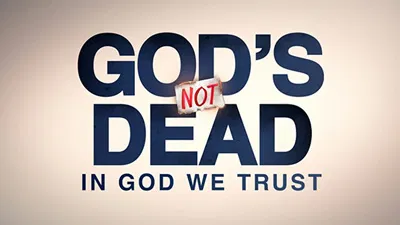
There is excellent biblical support for an Exodus date of 1445 to 1491 BC. Read more in “ Doesn’t Egyptian Chronology Prove That the Bible Is Unreliable? ” and in Unwrapping the Pharaohs .
The film also adopts the commonly accepted view that the Hebrews were enslaved in Egypt for 400 years, based on one understanding of Genesis 15:13. However, other conservative Bible scholars believe that the text indicates that Abraham’s Hebrew descendants were persecuted in various ways over the course of four centuries but were actually only in Egypt for 215 years and were enslaved for only part of that time. (You can read more about that in “ How Long Were the Israelites in Egypt? ” and in Floyd Nolen Jones’s book Chronology of the Old Testament. )
- He was referred to as God’s messenger once. Messenger or manifestation, such a character should still display attributes of God’s true character, even in a movie.
Recommended Resources

- Creation Vacations
- Curricula Resources
- Online Courses
- Church Curriculum
- Public School
- Spurgeon Sermons
- Study Guides
- Vacation Bible School
- Train Up a Child
Get the latest answers emailed to you.
This site is protected by reCAPTCHA, and the Google Privacy Policy and Terms of Service apply.
Thank you for signing up to receive email newsletters from Answers in Genesis.
You can also sign up for our free print newsletter (US only).
Finish your subscription
You're almost done! Please follow the instructions we emailed you in order to finish subscribing.
Your newsletter signup did not work out. Please refresh the page and try again.
Answers in Genesis is an apologetics ministry , dedicated to helping Christians defend their faith and proclaim the good news of Jesus Christ .
- Customer Service 800.778.3390
- © 2024 Answers in Genesis
Exodus: Gods and Kings Review
Secret identity.

Director Ridley Scott gets lost in the desert at times in Exodus: Gods and Kings, his epic, but not entirely effective take on the story of Moses' journey from Prince of Egypt to Hebrew leader.
In This Article

Where to Watch
More Reviews by Jim Vejvoda
Ign recommends.

PS5's 30th Anniversary Range Is Why We Should Always Question Nostalgia

The 10 Best Drama Movies About Christianity, Ranked

Your changes have been saved
Email is sent
Email has already been sent
Please verify your email address.
You’ve reached your account maximum for followed topics.
Faith can be a very difficult subject to discuss on screen , so it’s not all that unusual that the number of truly great faith-based films are few and far between. Some audiences may simply not be interested in seeing a film that does not conform to their inherent beliefs about God and the afterlife; others may not see the value in watching something that confirms what they already believe to be true.
While it's a subject that may inherently engender controversy, some truly great films have been able to discuss Christianity in a compelling way. There is certainly room for more comedic interpretation of what faith can be, like The Life of Brian or Dogma , but more dramatic films have the potential to truly connect with their audiences on an emotional level. Here are ten ten best drama movies about Christianity, ranked.
‘Mass’ (2021)
Directed by fran kranz.
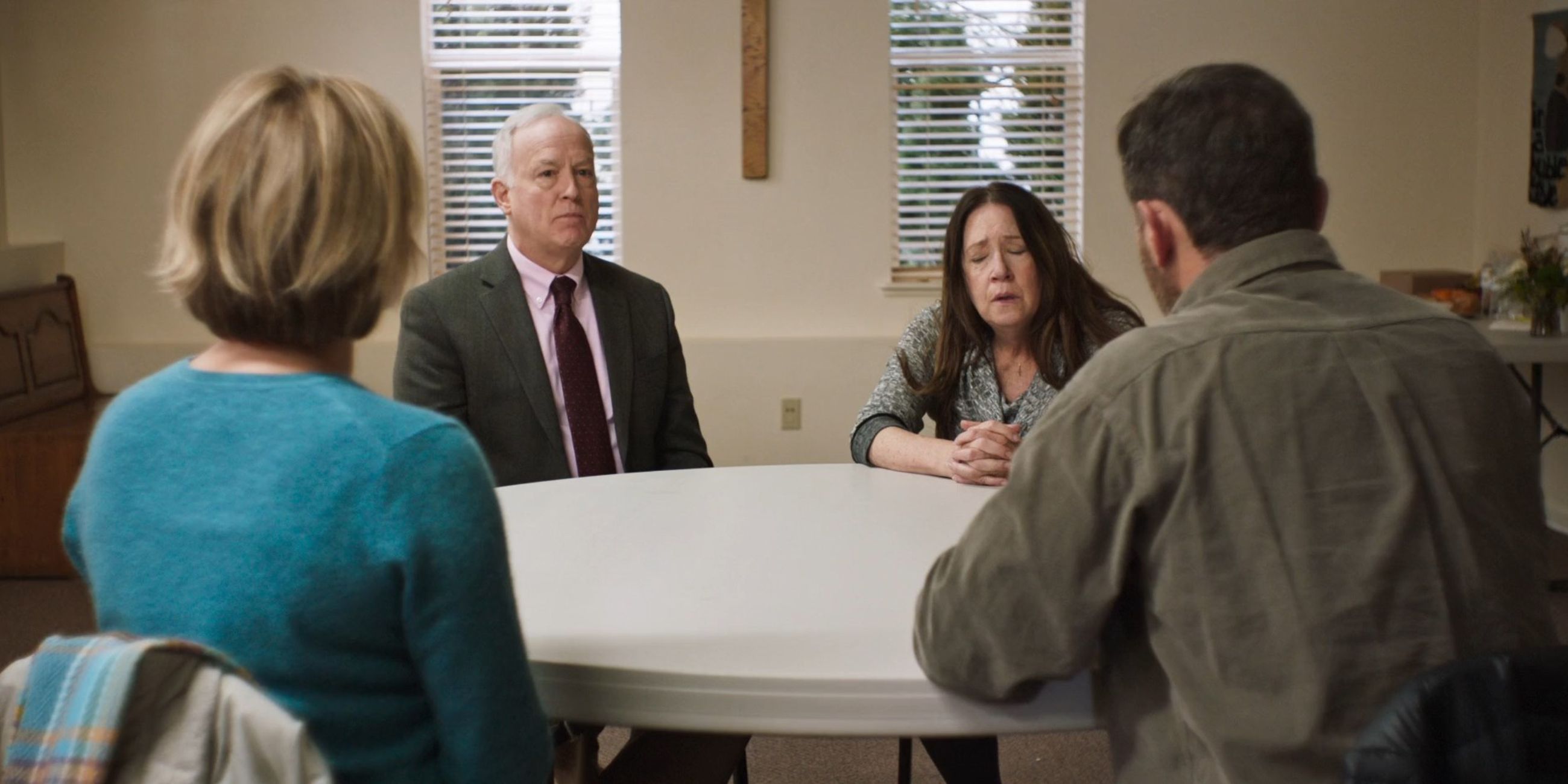
Mass is a riveting examination of an all-too real crisis in America today that examines the role that Christianity can play in helping communities heal from trauma. The extraordinary directorial debut from Fran Kranz centers on two sets of parents who meet in the aftermath of a school shooting that left several high school aged teenagers dead; one of the couples lost their son in the massacre, and the other raised the child who would eventually become the school shooter.
Mass asks uncomfortable questions about the role that faith has to police and respond to outbursts of violence , and features riveting performances from an all-star cast, including Jason Isaacs, Martha Plimpton, and Ann Dowd . While it may provoke discussions that are exclusively centered on Christianity, the themes of non-violence and the spread of mental health resources in Mass are universal.
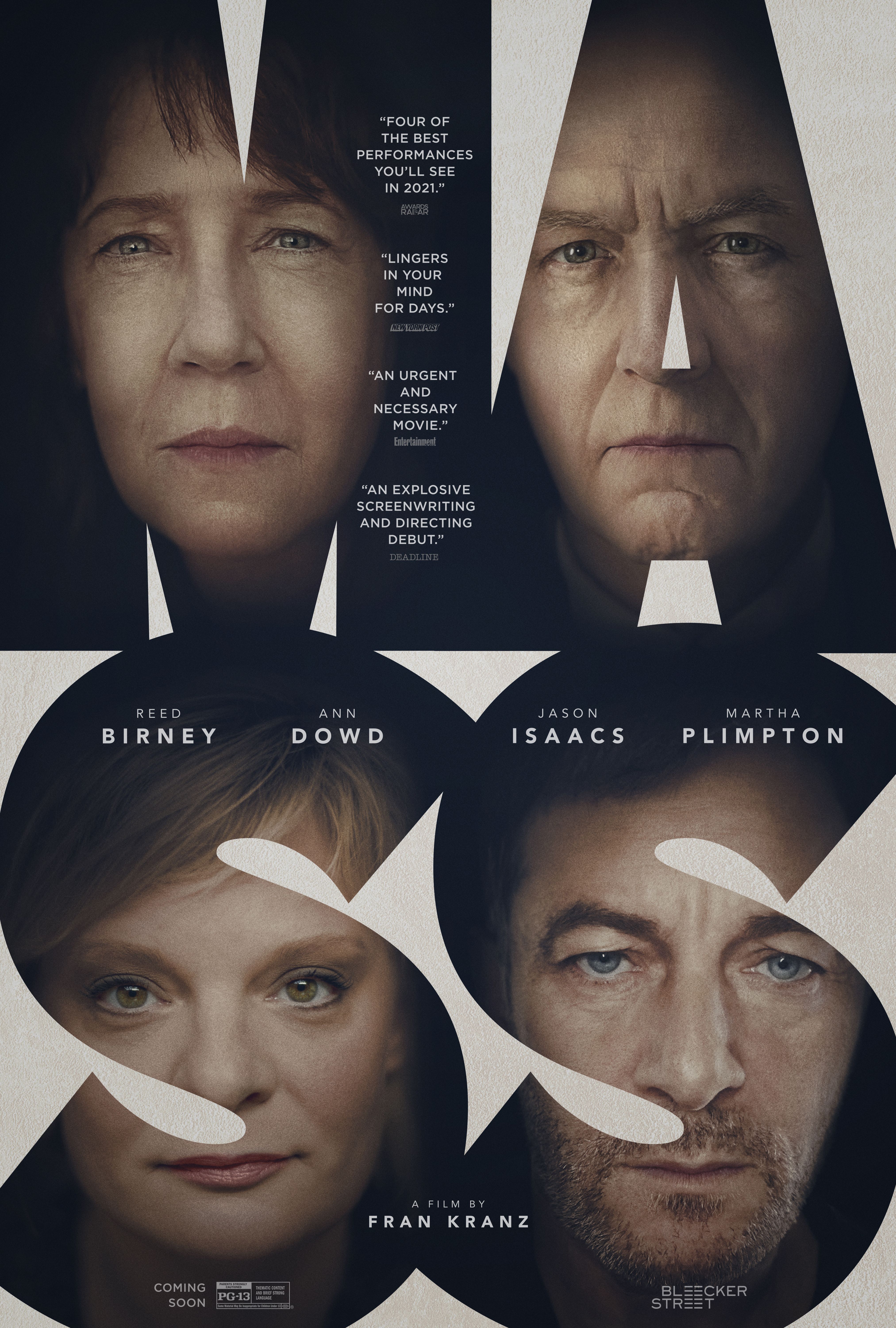
Years after a tragic incident that changed their lives, two sets of parents agree to meet in a small church basement to discuss the unimaginable pain caused by their sons. Through their conversation, they confront their deepest grief and seek a path toward understanding and reconciliation.
Watch on Hulu
‘First Reformed’ (2018)
Directed by paul schrader.
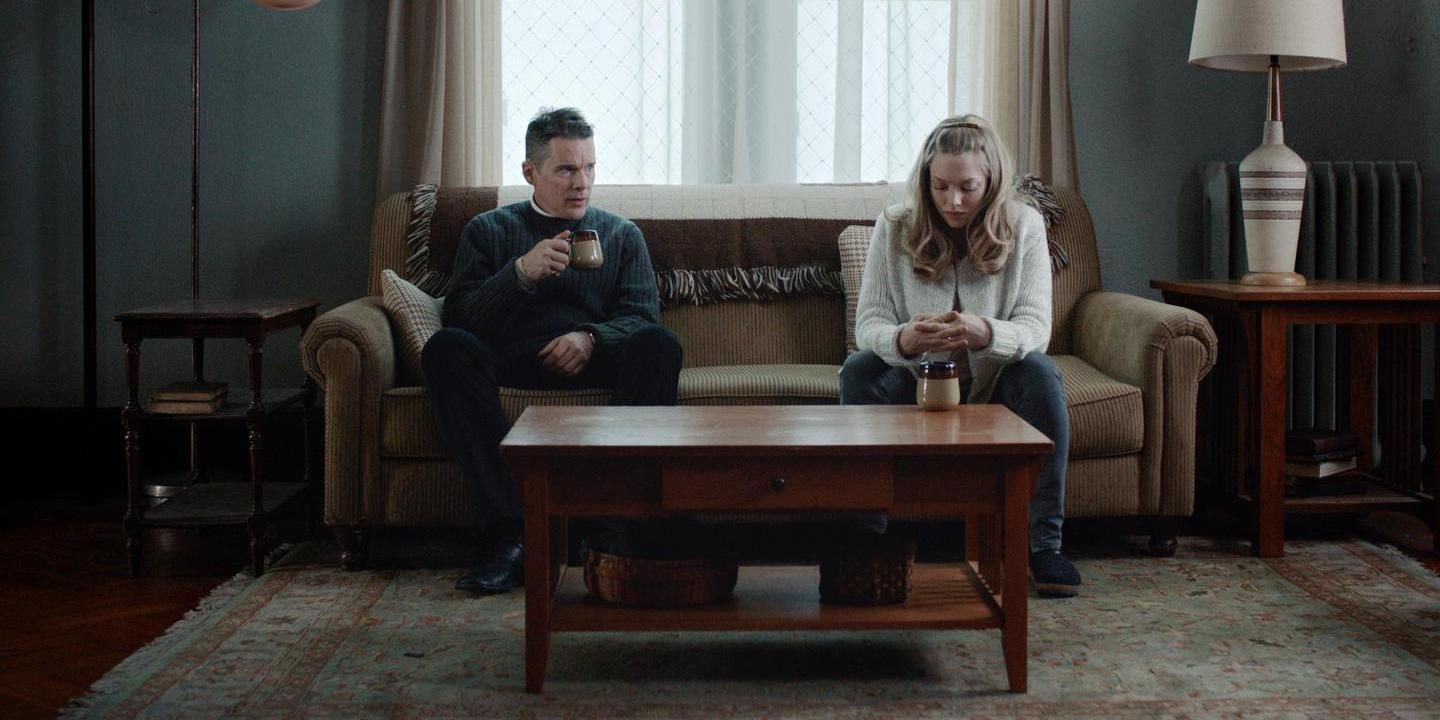
First Reformed is another powerful examination of faith from the brilliant screenwriter Paul Schrader , who touched on themes of redemption and resurrection in such classics as Hardcore, Light Sleeper, and Auto Focus . First Reformed peers into the mind of a lonely priest (played in a career best performance by Ethan Hawke ), who begins to wonder if he should take more extreme actions on climate change after the widow ( Amanda Seyfried ) of an environmental terrorist asks him for support.
First Reformed does a great job at contextualizing faith in a modern context , and showing how current events may affect the beliefs that many have taken for granted. As with many of Schrader’s films, First Reformed begins as a straightforward drama, but eventually draws on more existentialist themes and pivots into being a hard genre movie by the time that it wraps up.
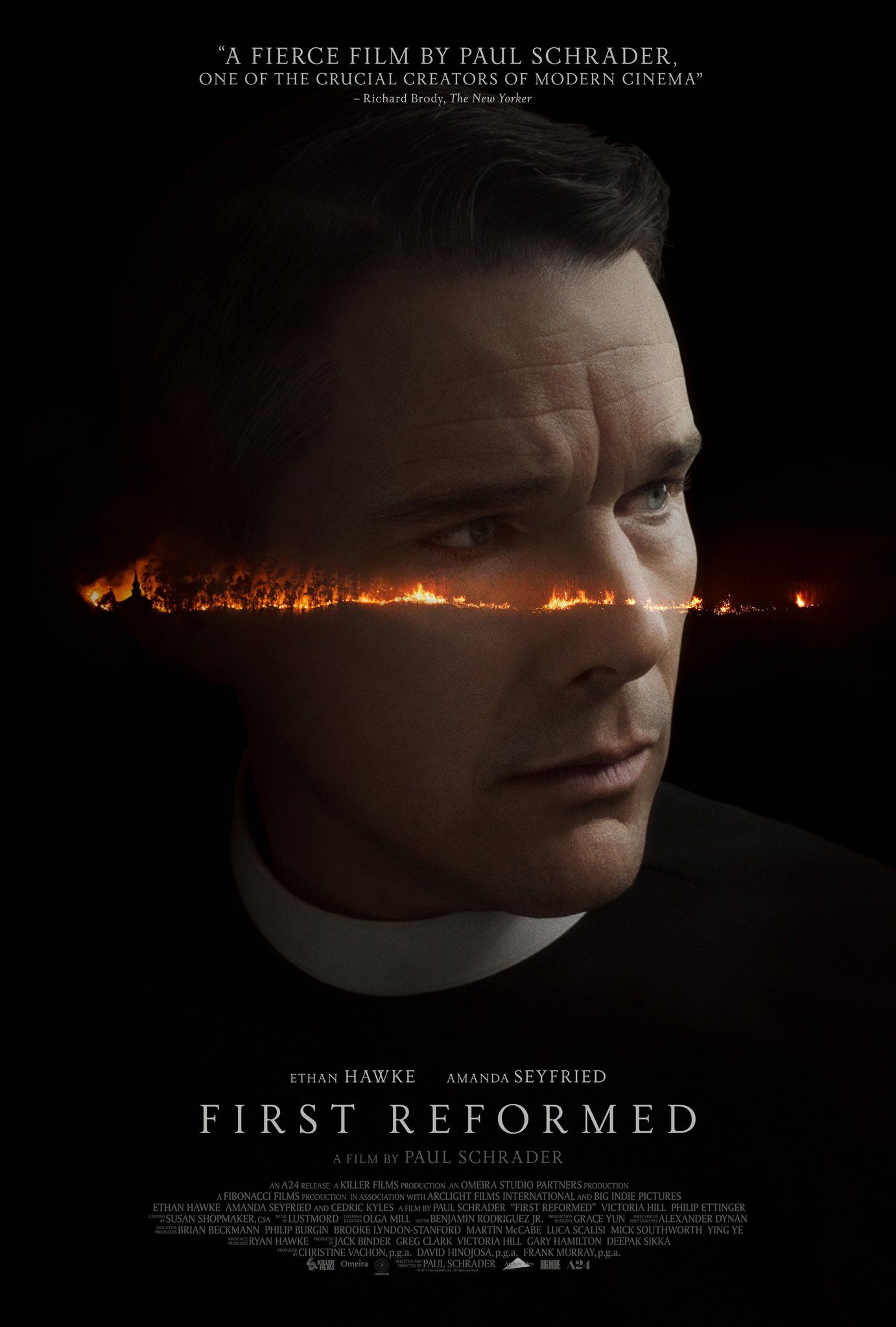
First Reformed
In a narrative that combines spirituality with environmental and personal crises, a pastor faces a profound moral and existential dilemma after meeting an eco-activist couple. As he delves deeper into the environmental cause, his growing radicalization confronts him with troubling questions about his capacity for violence and his commitment to his faith.
Rent on Amazon
‘Black Narcissus’ (1947)
Directed by emeric pressburger and michael powell.
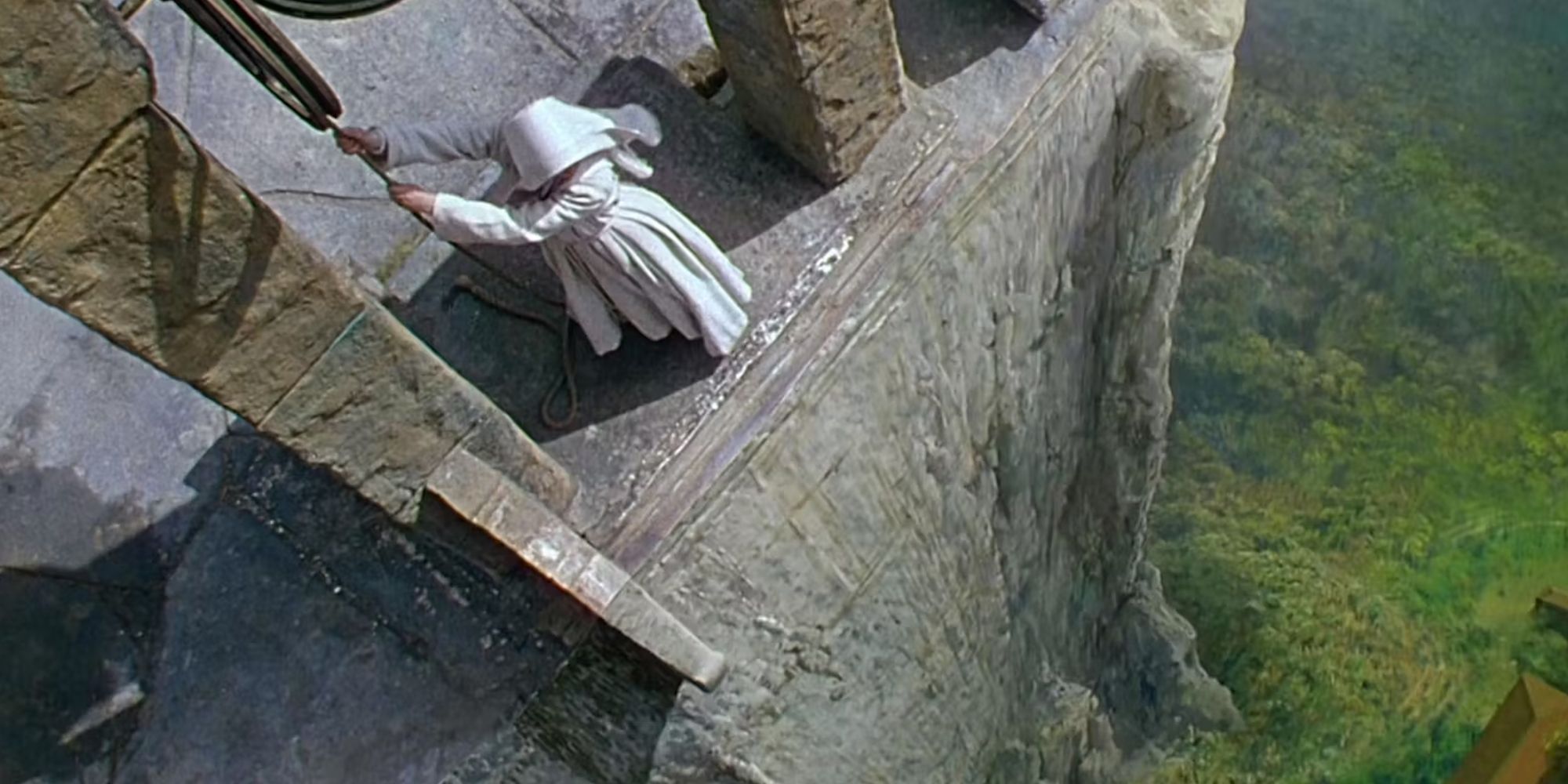
Black Narcissus is a classic film from the Golden Age of Hollywood that examined the plight of a group of Christian nuns as they attempt to establish a place of worship in a particularly dangerous area in the Himalayas. While Emeric Pressburger and Michael Powell have directed some of the greatest psychological thrillers ever made, Black Narcissus adds an undercurrent of eroticism that makes its debate about the merits of having faith in difficult times far more interesting than it would have been otherwise.
Black Narcissus is such a visually arresting work of art that it is worth appreciating on a purely aesthetic level , as the cinematography is some of the best in cinematic history. That being said, it is equally as engaging on a thematic and emotional level, particularly with its strong feminist slant on the traditional Christian doctrine.
Black Narcissus
Watch on Prime Video
‘Women Talking’ (2022)
Directed by sarah polley.
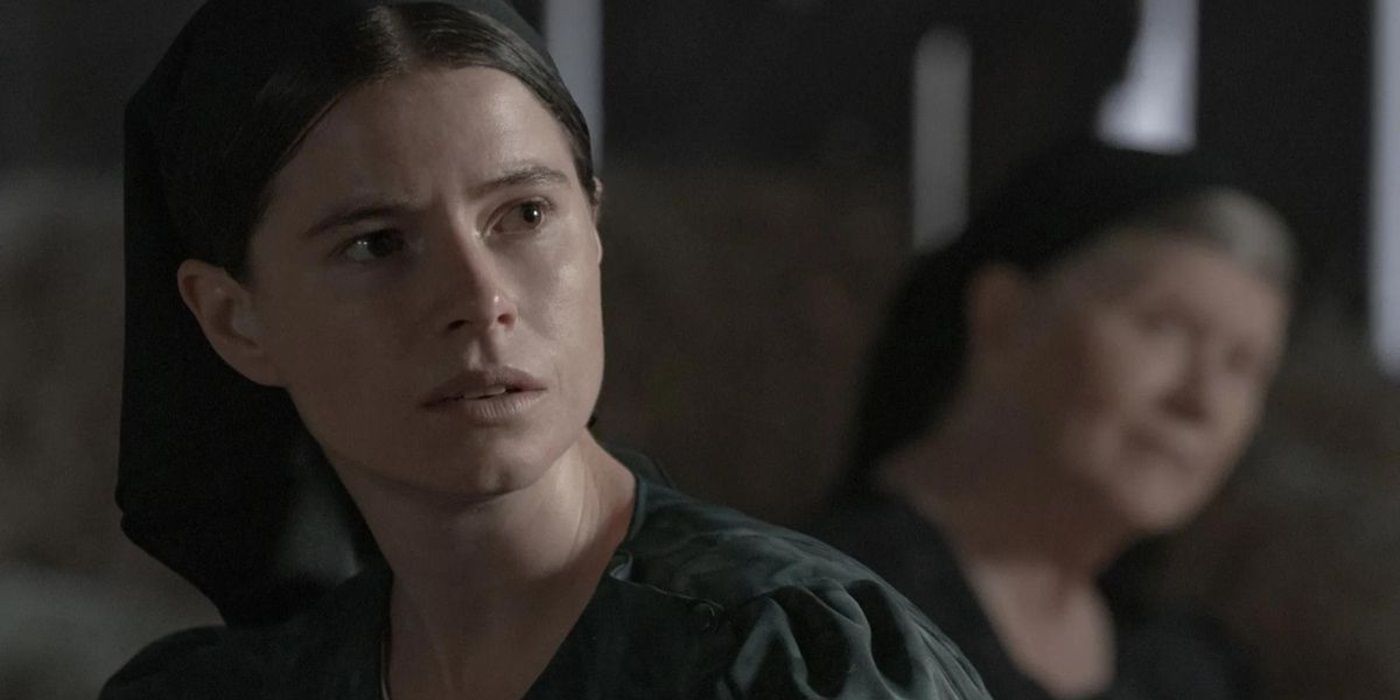
Women Talking is an unusual masterpiece from Sarah Polley , as the film is constructed in a way that makes it not feel grounded to any specific point in history. Based on the acclaimed novel of the same name, Women Talking centers on a group of women in a highly religious community who band together to hold community discussions after they all discover that they’ve been assaulted by the same group of men.
Women Talking gets into important religious themes about faith, redemption, healing, and the necessity for civil action, and even ends with an Exodus journey that mirrors that of the Bible. While the dialogue-centric narrative structure may cause a barrier for those expecting something more traditionally based on plot developments, Women Talking does feature some truly extraordinary performances from Rooney Mara, Claire Foy, Jessie Buckley, and Ben Whishaw among others.
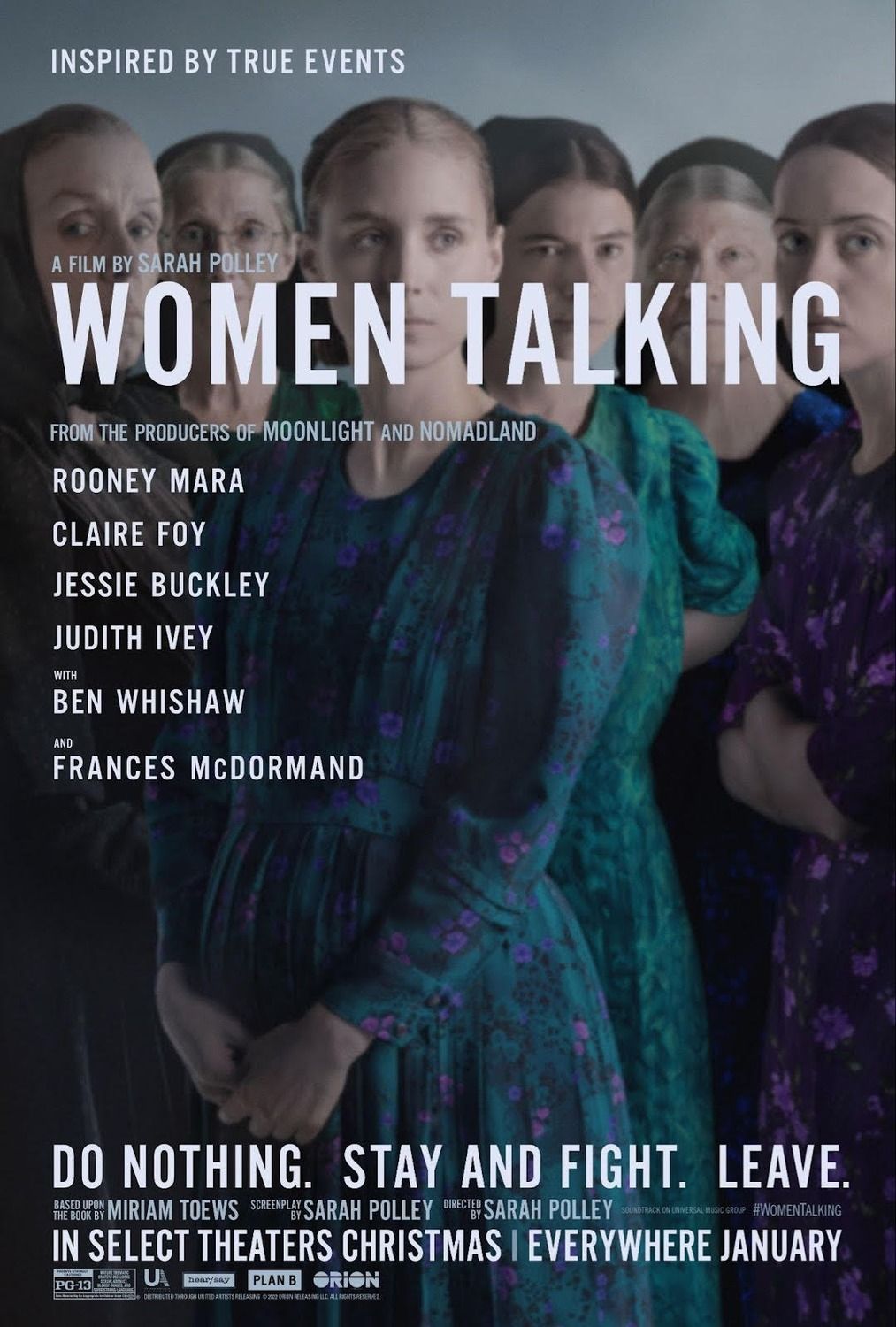
Women Talking
‘doubt’ (2008), directed by john patrick shanley.
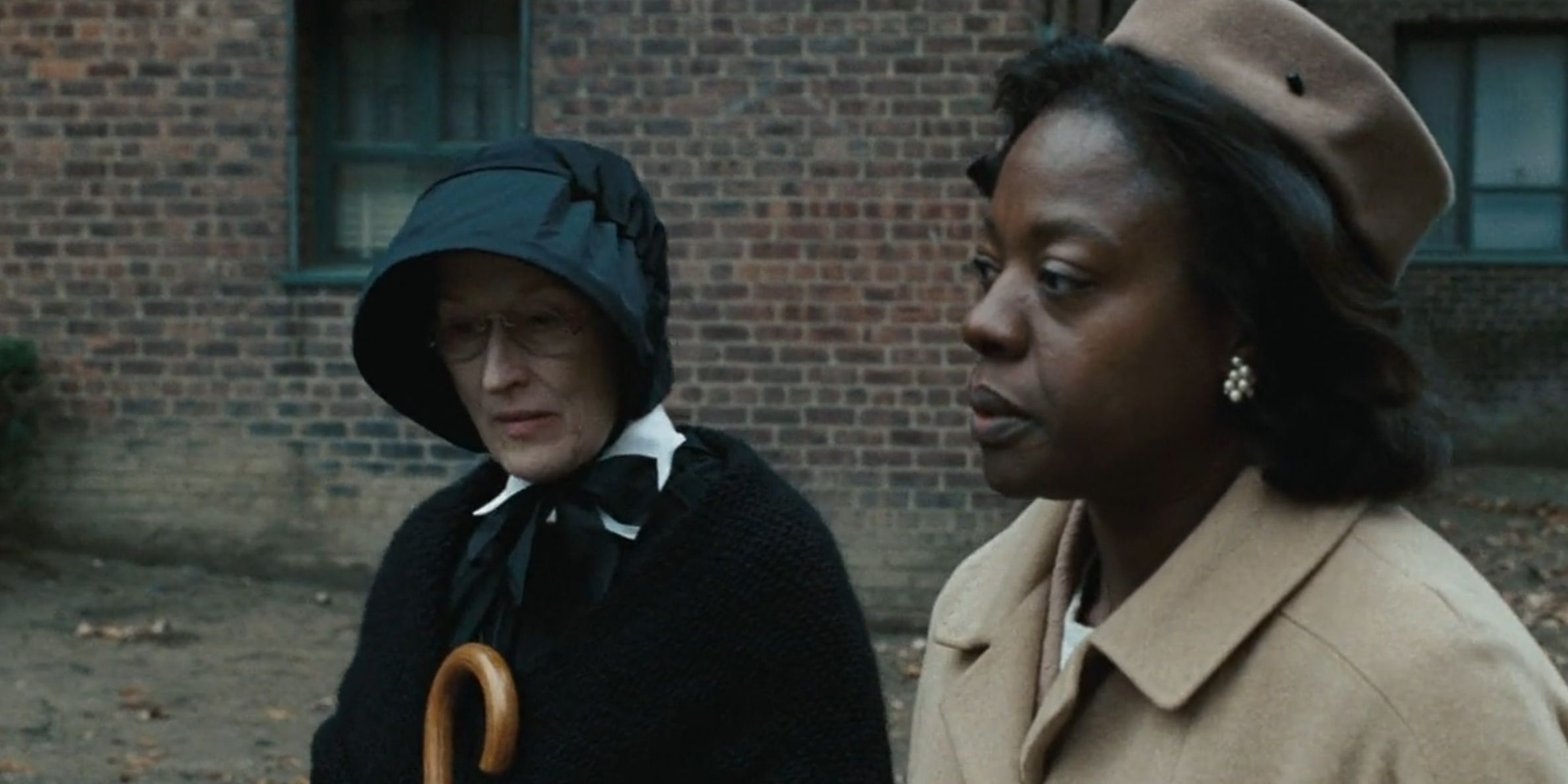
Doubt is proof that a great play can also be a great movie , as writer/director John Patrick Shanley did an amazing job bringing the acclaimed theatrical production to the big screen. Doubt centers on an older Christian nun ( Meryl Streep ), who confers with a younger sister ( Amy Adams ) when the head priest ( Philip Seymour Hoffman ) as their Christian school begins to show signs that he may have been sexually abusing a young boy.
Doubt examines the systematic issue of abuse within the Christian church , and forces the viewer to address the importance of both faith and doubt when it comes to determining the innocence of someone in a situation that they do not entirely understand. A brilliant 10-minute performance by Viola Davis as the presumed victim’s mother makes the film even more powerful as an exploration of the effects of religion on race.
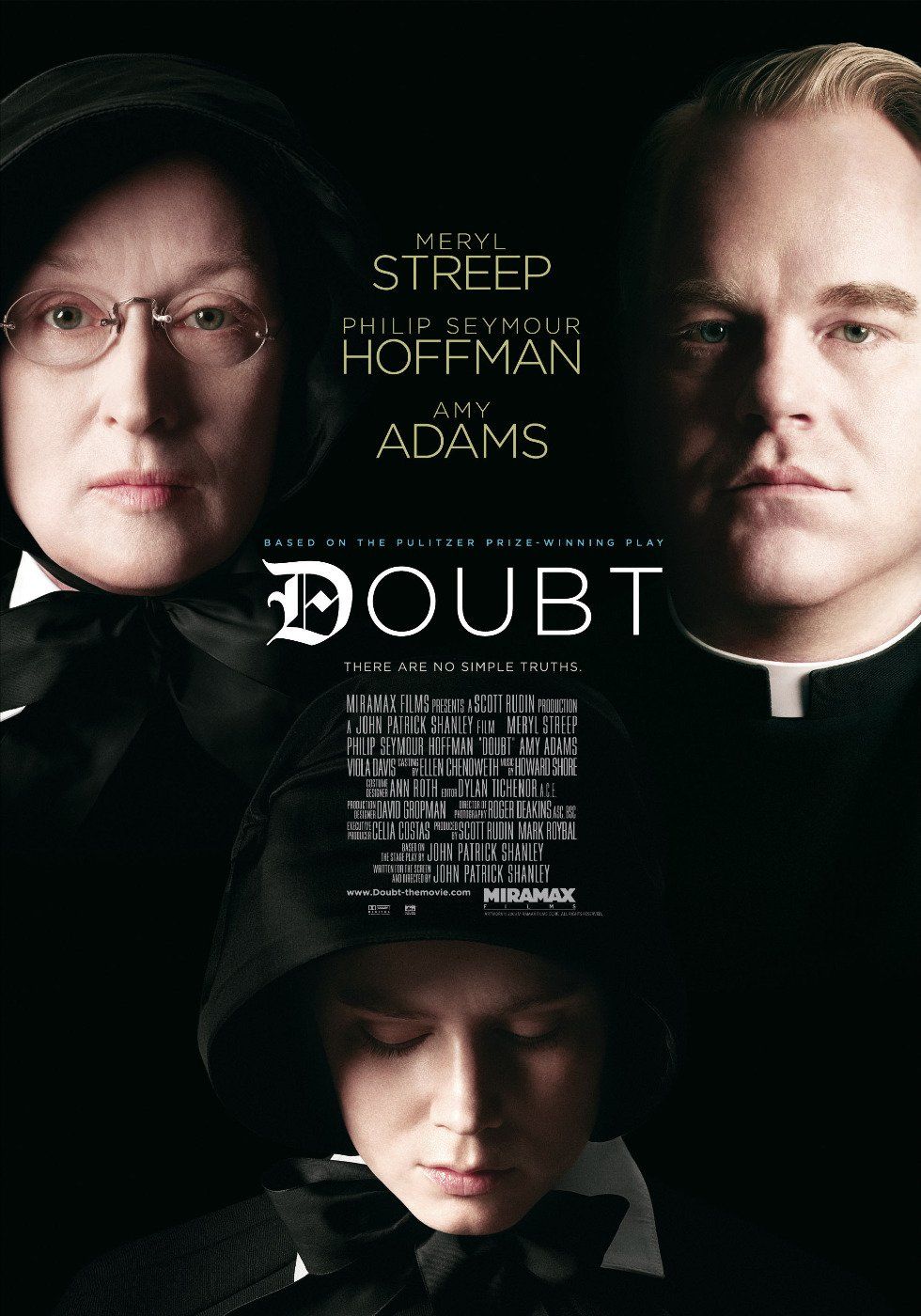
A Catholic school principal questions a priest's ambiguous relationship with a troubled young student.
Watch on Paramount Plus
‘Spotlight’ (2015)
Directed by thomas mccarthy.
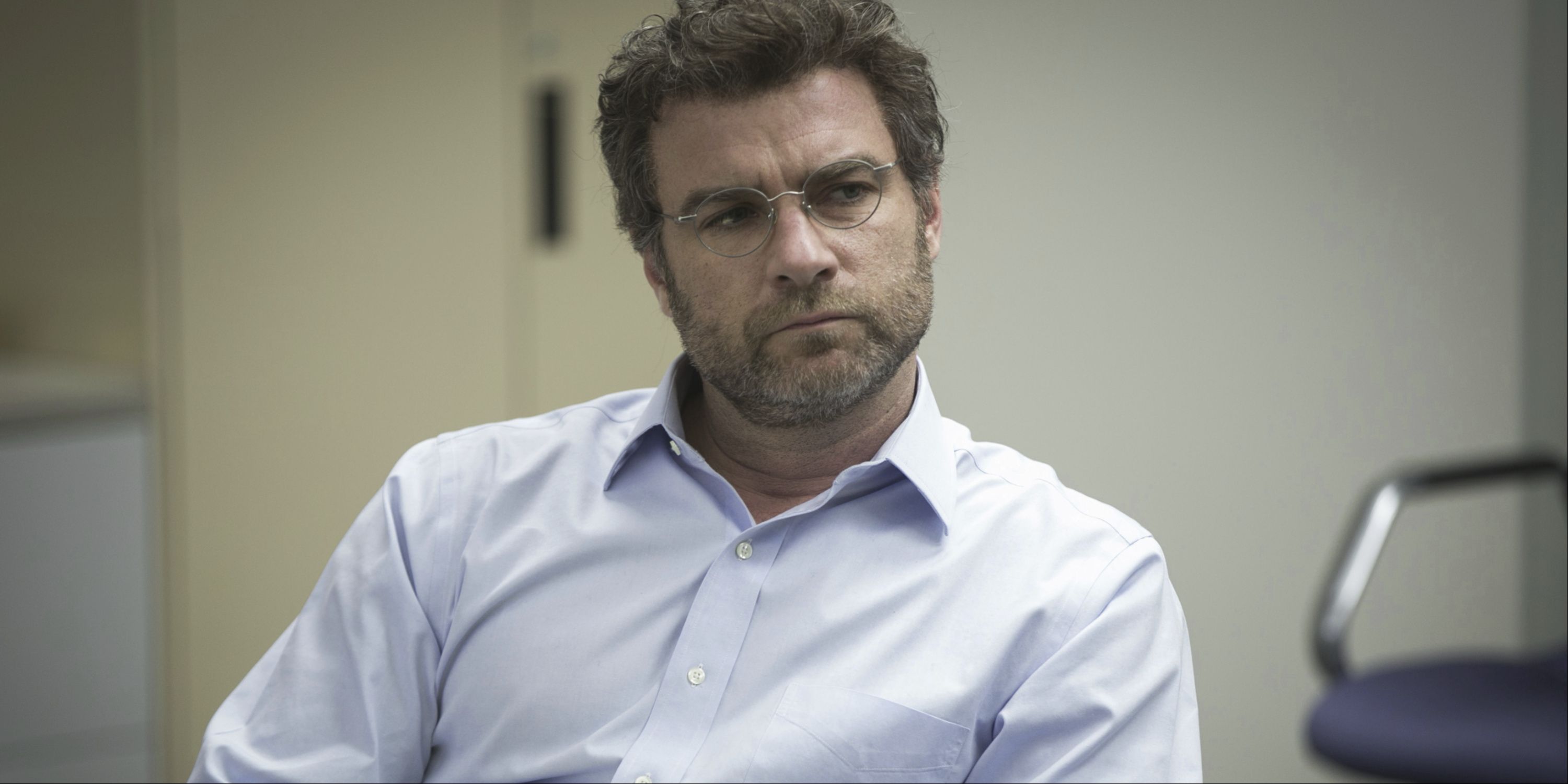
Spotlight is one of the great journalism thrillers of all-time , and unsurprisingly won the Academy Award for Best Picture because of what a strong work of activism it was. Spotlight centers on the reporters of the Boston Globe newspaper who discovered that the systematic abuse of young boys by Catholic priests had been covered up by higher-ranking members of the church; while initially it appears to be an isolated incident exclusive to the Boston area, the team eventually discovers that it might be a crisis with international implications.
Spotlight does a great job at giving the victims of abuse a voice , and examining how the Christian doctrine has been subverted by those that seek to take advantage of their positions of authority. While the intense discussion of such traumatic material do not make it an easy watch, Spotlight is necessary viewing for those interested in what the Catholic Church is dealing with today.
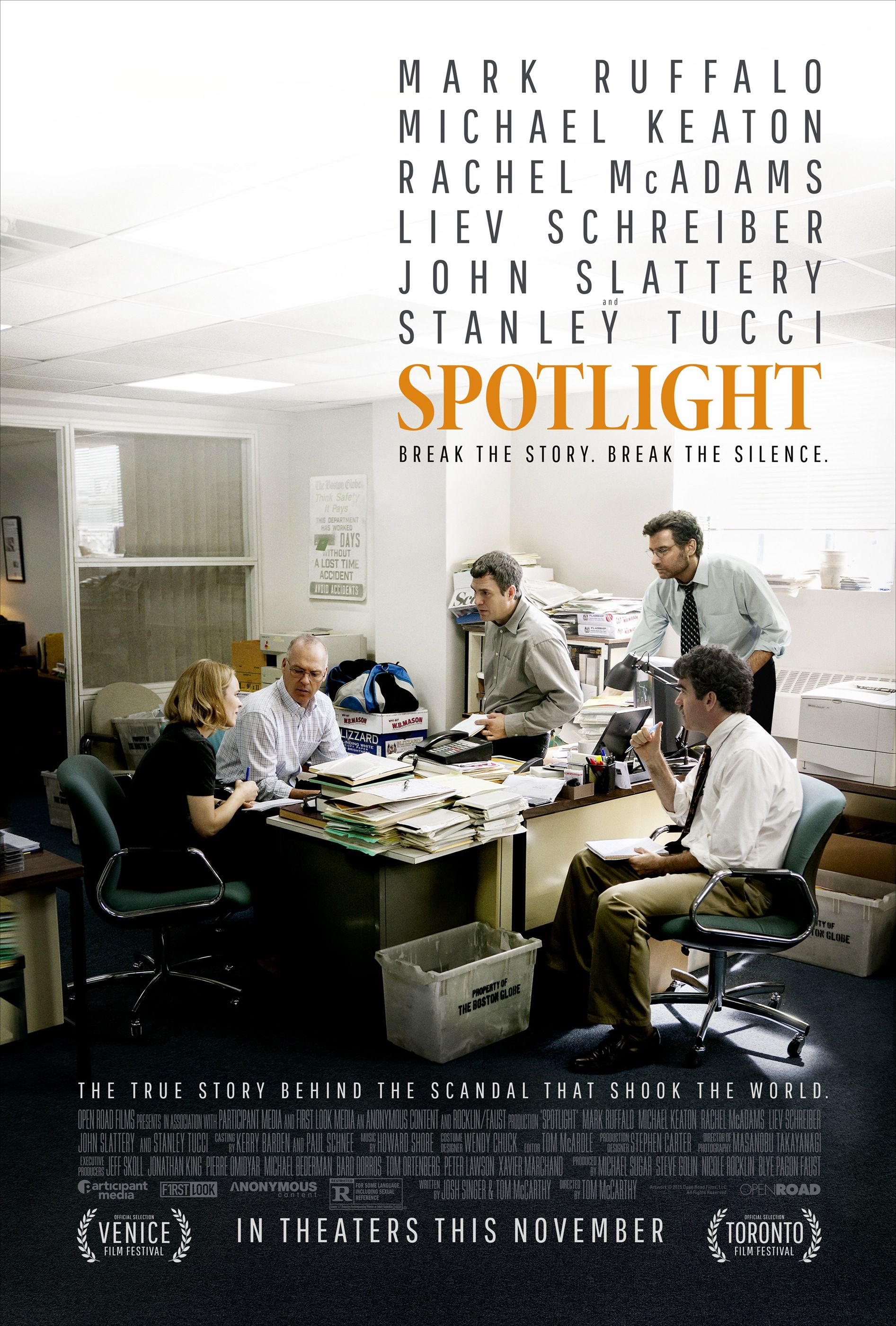
The true story of how the Boston Globe uncovered the massive scandal of child molestation and cover-up within the local Catholic Archdiocese, shaking the entire Catholic Church to its core.
‘Hacksaw Ridge’ (2015)
Directed by mel gibson.

Hacksaw Ridge is one of the best war films of the 2010s , but it's also a powerful examination of those who hold on to their faith in the midst of a challenging conflict that threatens to destabilize the world. Based on an incredible true story, Hacksaw Ridge stars Andrew Garfield as a World War II recruit who refused to carry a gun out of religious beliefs; in lieu of combat, he became a medic and saved thousands of lives during the most ruthless campaign of the war.
Hacksaw Ridge features some of the most extraordinary sequences of prolonged combat in recent memory , as Mel Gibson is very well accomplished as an action filmmaker. While Gibson’s name remains a controversial one, he certainly addressed strong Christian themes in the epic films he directed, like Passion of the Christ, Apocalypto, and Braveheart.
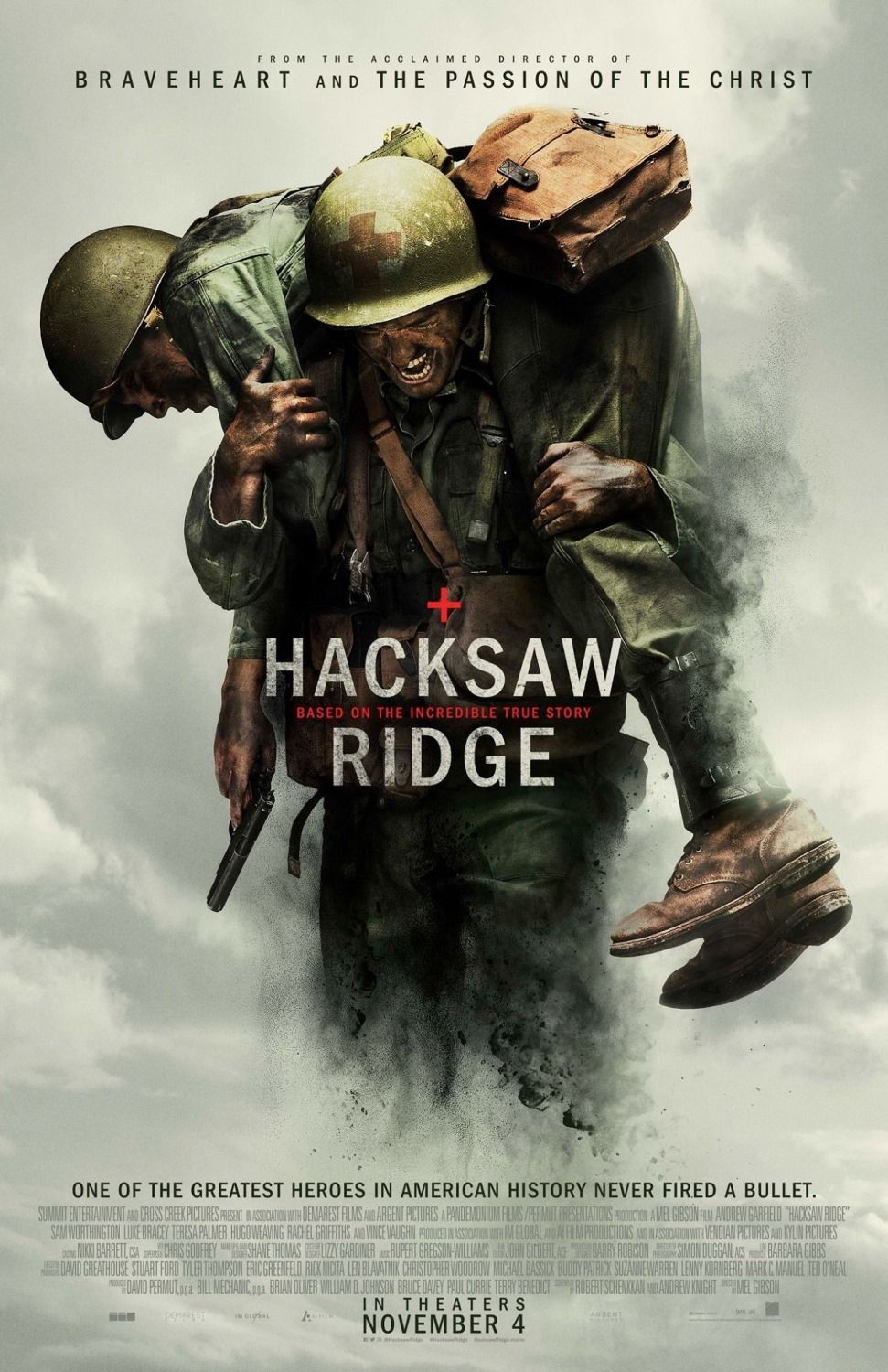
Hacksaw Ridge
Watch on Netflix
‘The Last Temptation of Christ’ (1988)
Directed by martin scorsese.
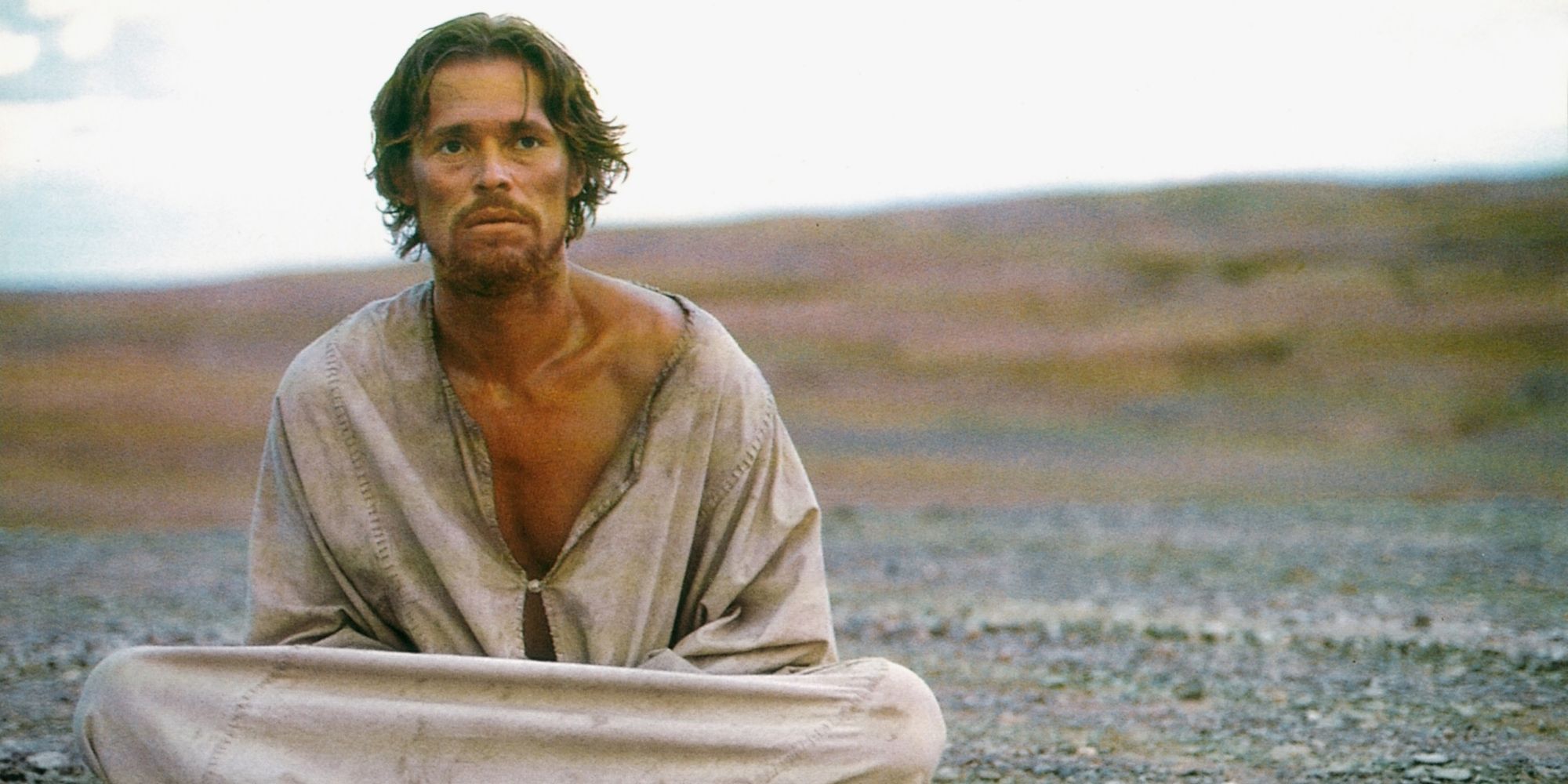
The Last Temptation of Christ is perhaps the most controversial film of Martin Scorsese’s entire career , which is no small statement considering the backlash he received for films like Taxi Driver, Raging Bull, Goodfellas, and The Wolf of Wall Street. The film examines the last days in the life of Jesus of Nazareth ( Willem Dafoe ) as he walks through the desert and is tempted by evil to forget his obligations to God and truly become human.
The notion that Jesus would ever consider abandoning his duty to live a human life was quite divisive among Christian audiences , as some asserted that Scorsese’s revisions to the traditional Biblical narrative were a work of blasphemy. However, Scorsese’s ability to show the resilience of Jesus during this harrowing period proved how strong his personal faith actually was, resulting in a more complex film.
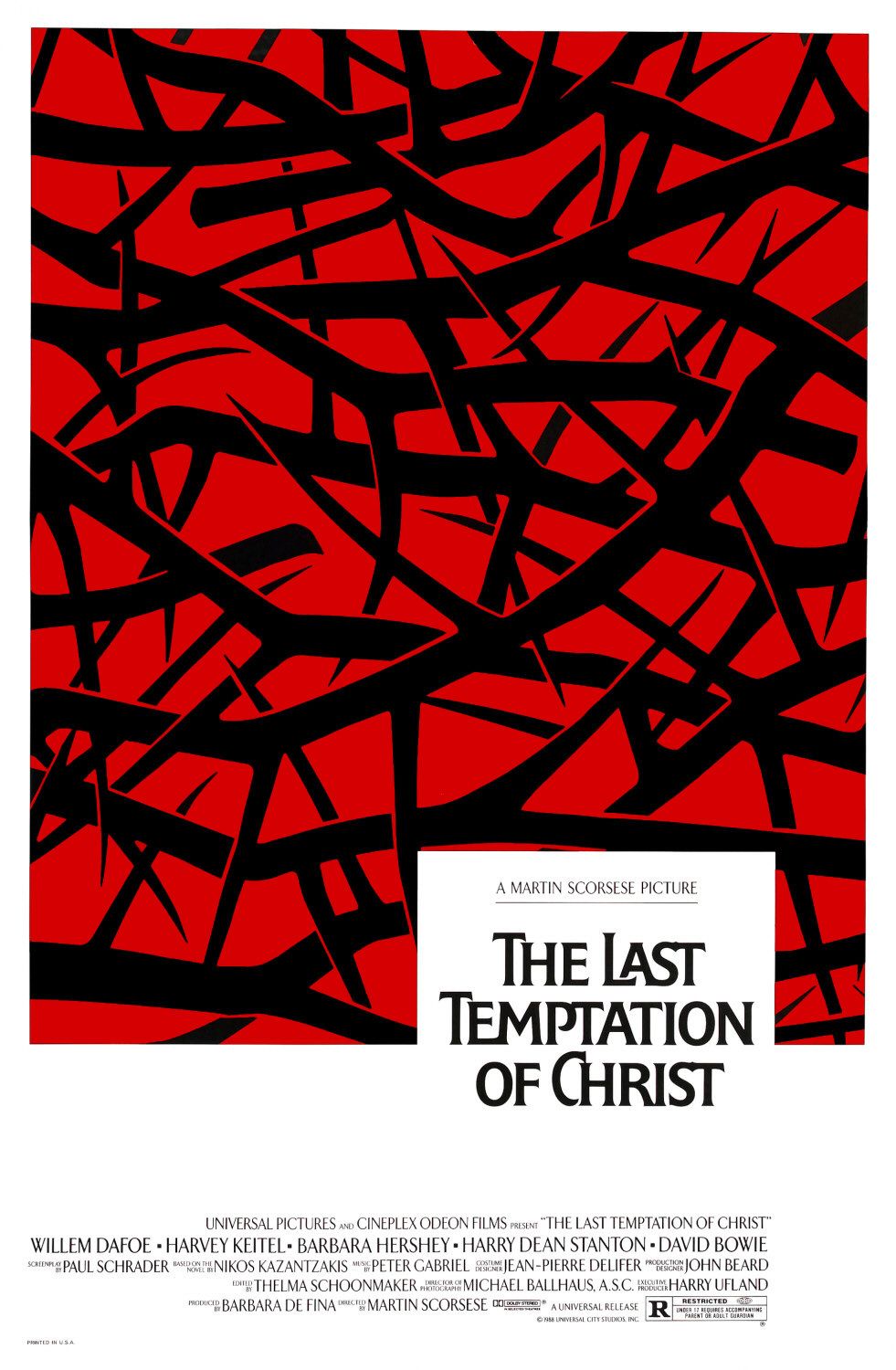
The Last Temptation of Christ
The life of Jesus Christ, his journey through life as he faces the struggles all humans do, and his final temptation on the cross.
‘Silence’ (2016)
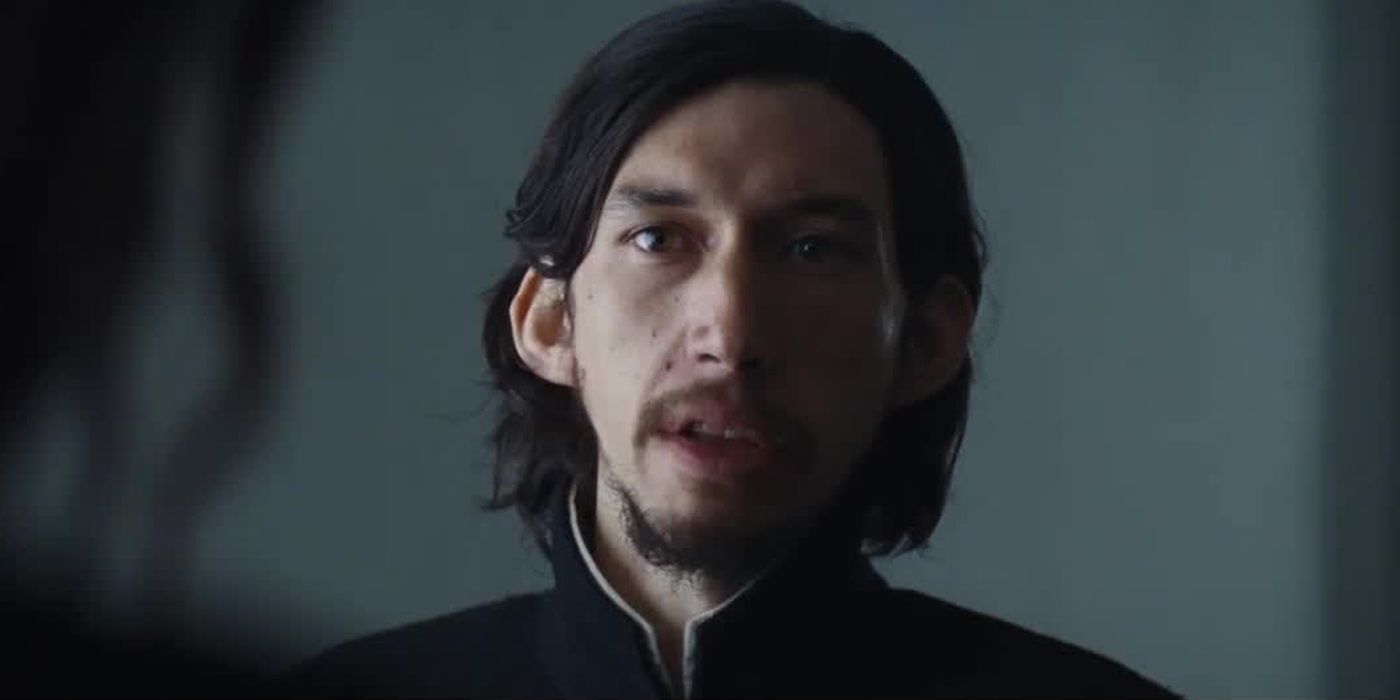
Silence is another masterpiece discussing religion from Scorsese , but is instead based on a harrowing period in history in which Christians were persecuted by ruthless overlords in feudal Japan. Andrew Garfield and Adam Driver star as Jesuit priests who travel to Japan in search of their mentor ( Liam Neeson ), who is rumored to have given up his faith entirely.
Silence examines the challenges that the faithful have as they attempt to justify their beliefs in the wake of tangible, real world violence that shakes their understanding of religion to its core. Scorsese makes some bold decisions in the manner he depicts the will of god, and certainly allows Garfield to give one of the most defining performances of his highly acclaimed career. It’s almost completely unlike anything that Scorsese has ever done before, but that is of itself not necessarily a bad thing.

In the 17th century, two Portuguese Jesuit priests travel to Japan in an attempt to locate their mentor, who is rumored to have committed apostasy, and to propagate Catholicism.
‘The Tree of Life’ (2011)
Directed by terrence malick.
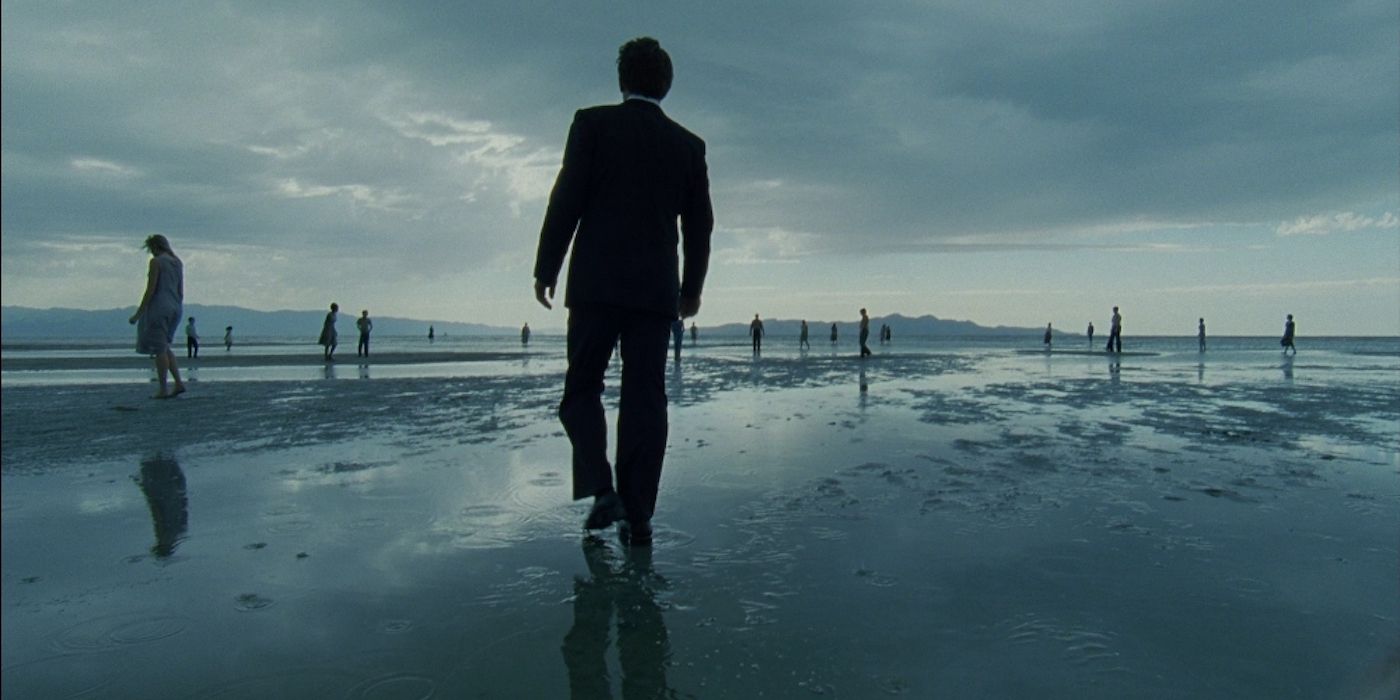
The Tree of Life is an experimental masterpiece from Terrence Malick , a filmmaker who has often pushed the boundaries of surrealism and authenticity to make dreamlike films that require multiple viewing to truly understand. Describing the plot of The Tree of Life is an inherent challenge; while there is a segment of the film that shows a young boy ( Tye Sheridan ) coming of age alongside his kind-hearted mother ( Jessica Chastain ) and brutish father ( Brad Pitt ), there is also an extended examination of the origin of life on Earth.
The more spiritual elements of The Tree of Life are beautifully intertwined with the personal , leading to a very emotional ending that examines the way that life on Earth has evolved (and will continue to grow) over the course of several lifetimes. It’s the boldest film of Malick’s career thus far, and also might be his best.
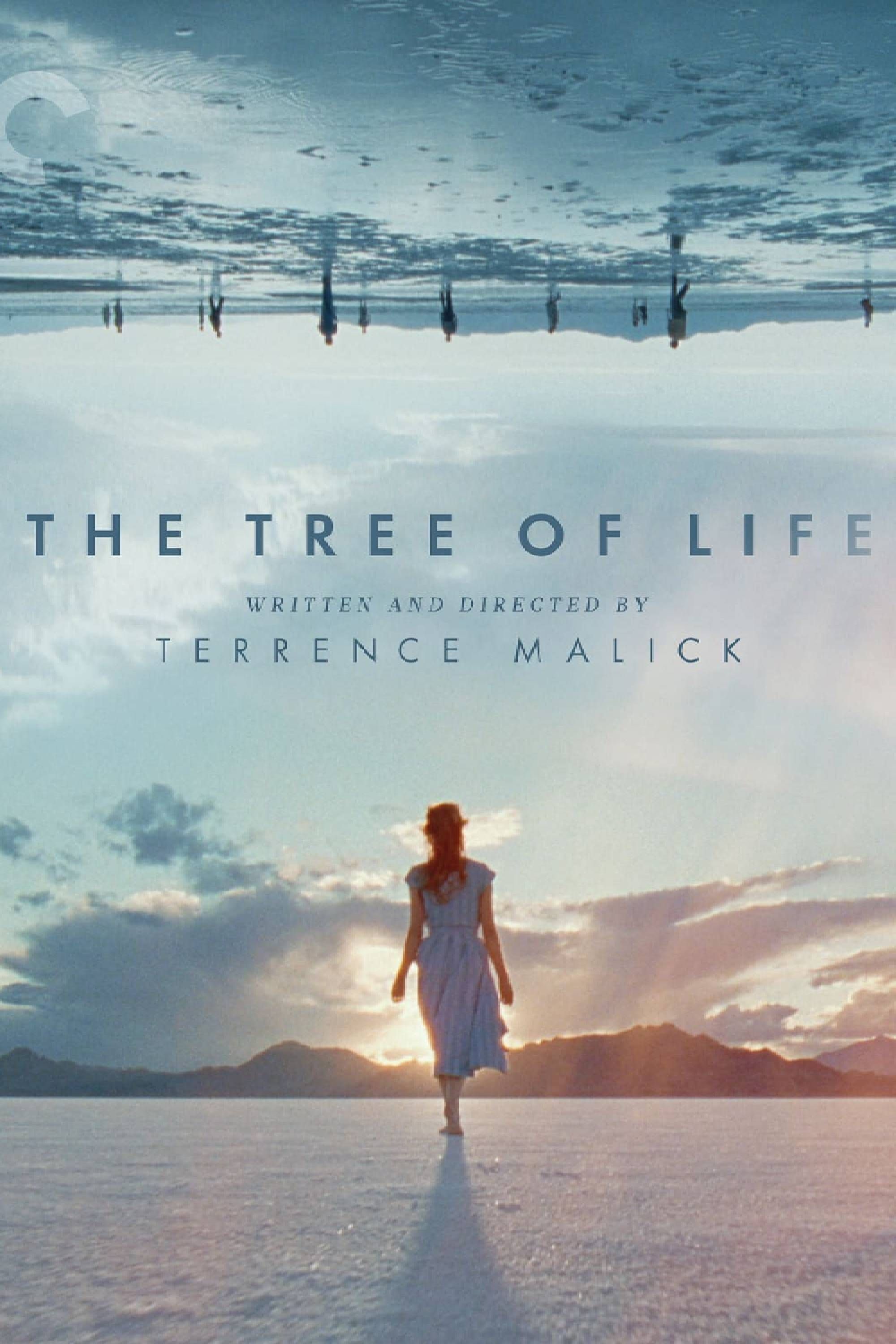
The Tree of Life
KEEP READING: The 10 Best Pierce Brosnan Movies, Ranked

COMMENTS
The book of Exodus is part of the five-part origin narrative, not just of the Jewish nation, but of humanity itself, and these stories will not go away despite secularist cynicism and mockery. Indeed, Scott's movie comes hot on the heels of Darren Aronofsky's 'Noah', and rumours are circulating about Scott planning a biopic of King David.
"The Ten Commandments" movie of 1956 at 3 hours and 40 minutes, with No CGI, and No battle scenes is easily 10 times more enjoyable than "Exodus: Gods and Kings." Every moment of The Ten Commandments is so captivating with top quality story, scripts, acting, directing, sets, costumes, visual effects, and music that time really flies by ...
Our review: Parents say (14 ): Kids say (25 ): EXODUS: GODS AND KINGS has a somber, dreary quality, punctuated by a thrumming, droning music score. Director Ridley Scott has made some great films, but he seems drawn to huge battle epics, like Kingdom of Heaven and Robin Hood, which he doesn't seem particularly suited to.
Movie Review: 'Exodus: Gods and Kings' ... Christian Bale, left, as Moses and Ben Kingsley as a spiritual leader of the slaves in the film, an adaptation of the Bible story.
Exodus: Gods and Kings, out Friday, stars Christian Bale as Moses in the Biblical epic, opposite Joel Edgerton as his brother and ruler. Also starring John Turturro, Ben Mendolsohn, Ben Kingsley ...
Exodus: Gods and Kings. Egyptian Princes Moses (Christian Bale) and Ramses (Joel Edgerton) are raised together as brothers. When Ramses becomes pharaoh, Moses is his most-trusted adviser. However ...
Exodus: Gods and Kings: Directed by Ridley Scott. With Christian Bale, Joel Edgerton, John Turturro, Aaron Paul. The defiant leader Moses rises up against Egyptian Pharaoh Ramses II, setting six hundred thousand slaves on a monumental journey of escape from Egypt and its terrifying cycle of deadly plagues.
Exodus: Gods and Kings is this century's answer to Cecil B. DeMille 's The Ten Commandments, but it already looks to be more controversial than that pious 1956 opus. Spectacularly filmed and ...
Full Review | Original Score: C | Aug 10, 2021. Richard Crouse Richard Crouse. Scott's film eschews all the Hollywood glam of DeMille's biblical epic. It's humanistic and so gritty you'll feel ...
Read Matt's Exodus: Gods and Kings review; Ridley Scott's film stars Christian Bale, Joel Edgerton, Aaron Paul, Ben Kingsley, and Sigourney Weaver.
4 min read. Exodus. A numbing and soulless spectacle of 3-D, computer-generated imagery run amok, Ridley Scott 's "Exodus: Gods and Kings" presents an enduring tale by pummeling us over the head with it. The story of Moses rising up against the Pharaoh Ramses and leading hundreds of thousands of Hebrew slaves out of Egypt to freedom is ...
Movie Review: "Exodus: Gods and Kings". This has been quite a year for God at the movies. There were several smash hits Christians embraced in the spring, such as "God's Not Dead" (cost $2 ...
Exodus: Gods and Kings works best when it's about Christian Bale's unique Moses and his desire to discipline God. Ridley Scott is deliberately walking over holy ground with Exodus: Gods and Kings ...
If "Exodus" is, at its core, very much the story of two brothers, then so is the life of Ridley Scott. Around the time of "Boy and Bicycle," he recalls, Tony, an avid mountain climber ...
Summary. Ridley Scott's film Exodus: Gods and Kings made significant changes to the biblical story, leading to criticism from Christian groups. The film was criticized for its inaccurately whitewashed cast, with mainly white actors playing characters in Ancient Egypt. Moses was portrayed as a more active freedom fighter in the film, deviating ...
Exodus Gods and Kings review: 'A film that stirs and never settles' Christian Bale stands tall as Moses in Ridley Scott's sweeping biblical epic. By Stella Papamichael Published: 23 December 2014
You feel that tension throughout his performance and throughout the film. It's a Bible epic that isn't sure that God exists, and isn't sure he's benevolent. But it is also a film that ...
Exodus: Gods and Kings is a 2014 biblical epic film directed and produced by Ridley Scott, and written by Adam Cooper, Bill Collage, Jeffrey Caine, and Steven Zaillian.The film stars Christian Bale, Joel Edgerton, John Turturro, Aaron Paul, Ben Mendelsohn, Sigourney Weaver, and Ben Kingsley.It is inspired by the biblical episode of the Exodus of the Hebrews from Egypt led by Moses and related ...
2014. PG-13. Twentieth Century Fox Film Corporation. 2 h 30 m. Summary Moses (Christian Bale) rises up against the Egyptian Pharaoh Ramses (Joel Edgerton), setting 400,000 slaves on a monumental journey of escape from Egypt and its terrifying cycle of deadly plagues. [20th Century Fox] Action. Adventure.
Exodus: Gods and Kings. by Dr. Elizabeth Mitchell. Exodus: Gods and Kings, starring Christian Bale of Batman fame as Moses, opened in theaters this week. Obviously, the movie is based on the well-known biblical account of Moses' role in the exodus of the Hebrew slaves from the clutches of the Egyptian pharaoh and his powerful army, as ...
Exodus: Gods and Kings Review. Director Ridley Scott's Exodus: Gods and Kings forgoes the usual "baby in a basket" start to Moses' (Christian Bale) story, beginning instead with him as a ...
Uh oh, another Hollywood botch job. In Exodus, Gods and Kings, the anglo actors playing Egyptians, the African slaves, Pharaoh's lackey with a Scottish accent, God as a 10-year old boy who learns, Moses arguing with God and writing the Ten Commandments, and other unfortunate, unbiblical befuddlements relegate this film into the ever-growing Hollywood-screwed-up-again crap-pile of cinematic ...
Exodus: Gods and Kings starring Christian Bale, Ben Kingsley, and Joel Edgerton is reviewed by Ben Mankiewicz (host of Turner Classic Movies), Matt Atchity (...
Women Talking gets into important religious themes about faith, redemption, healing, and the necessity for civil action, and even ends with an Exodus journey that mirrors that of the Bible.
『エクソダス:神と王』(エクソダスかみとおう、Exodus: Gods and Kings)は、2014年のアメリカ合衆国の叙事詩的映画。監督はリドリー・スコット、脚色はスティーヴン・ザイリアンが担当し、クリスチャン・ベールが主役を務める。